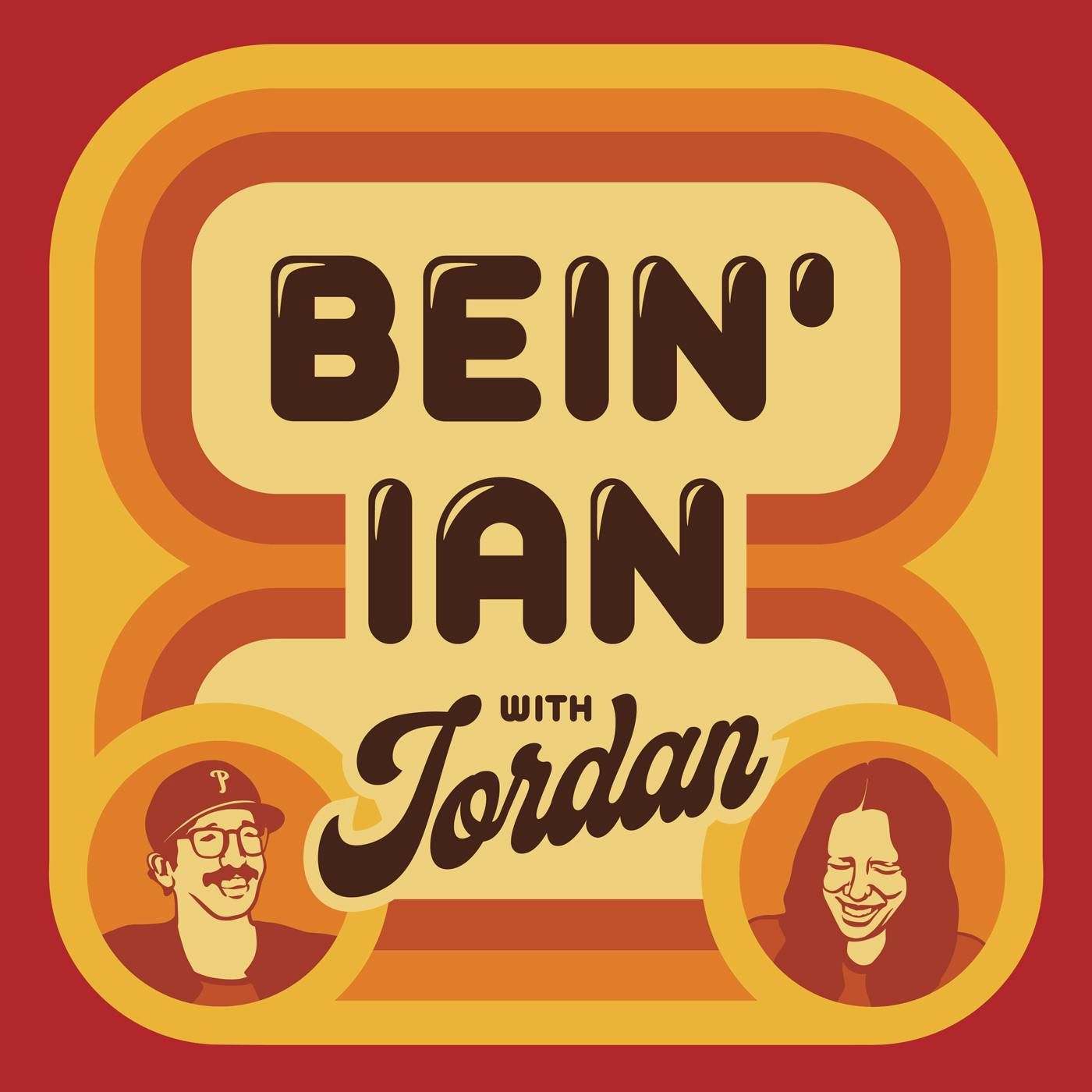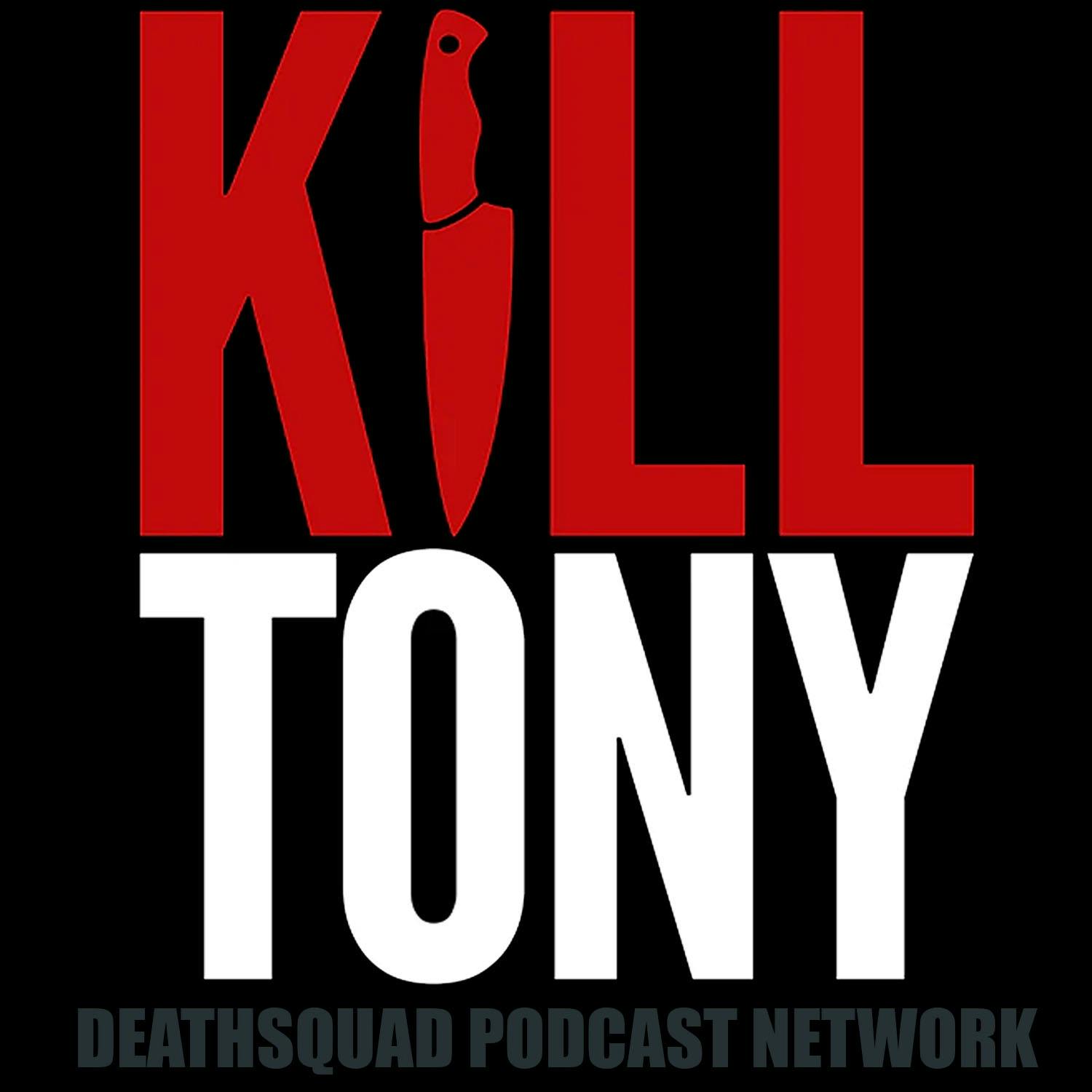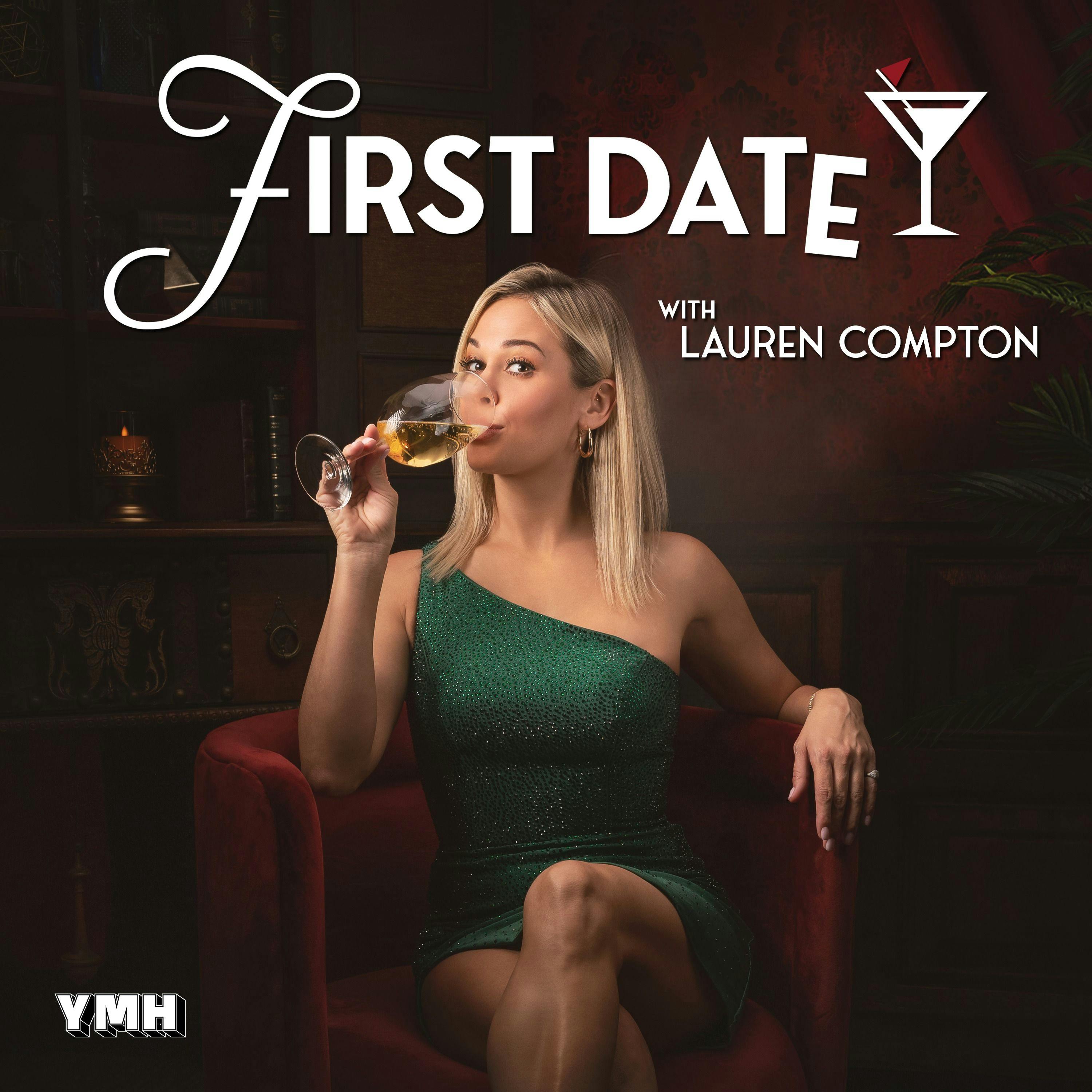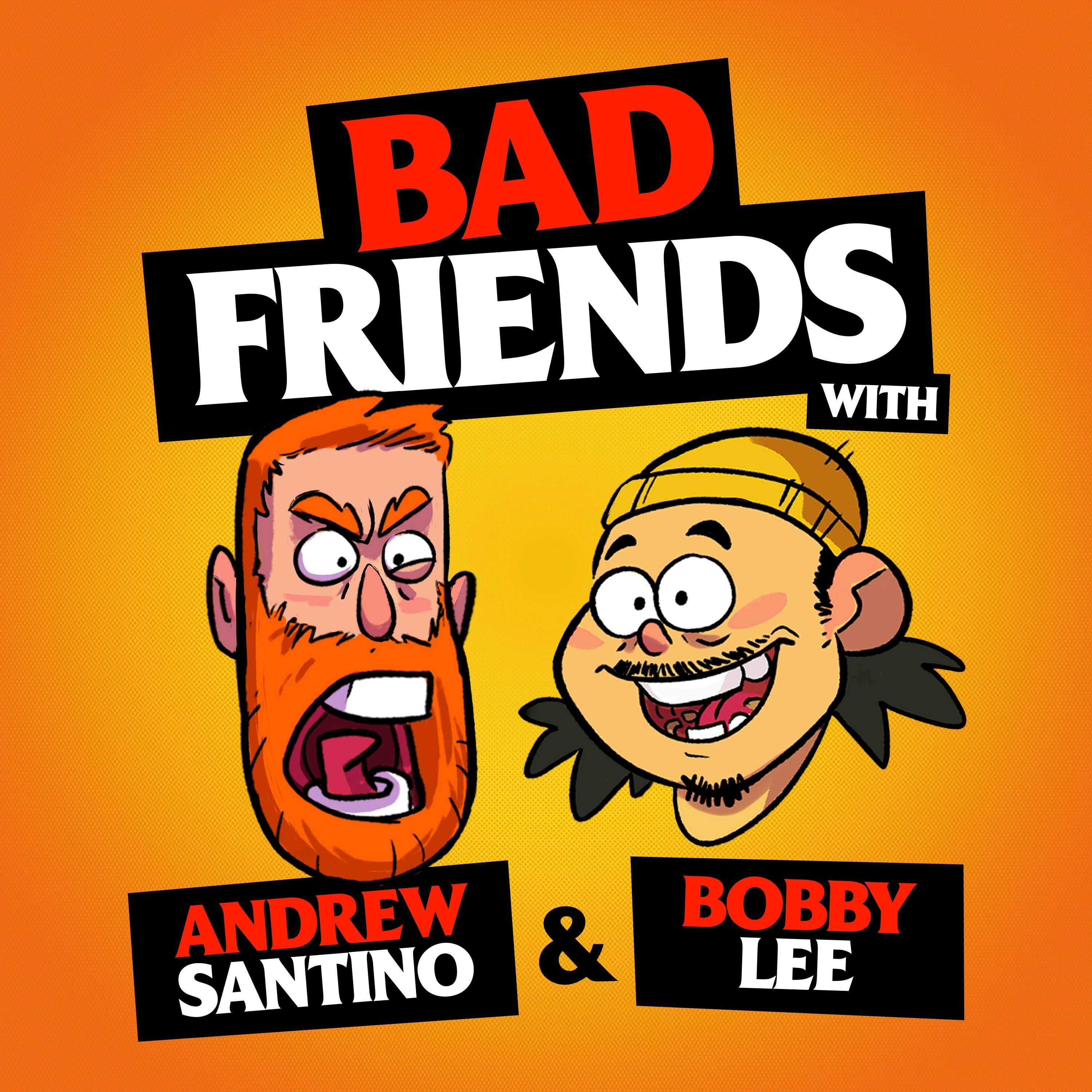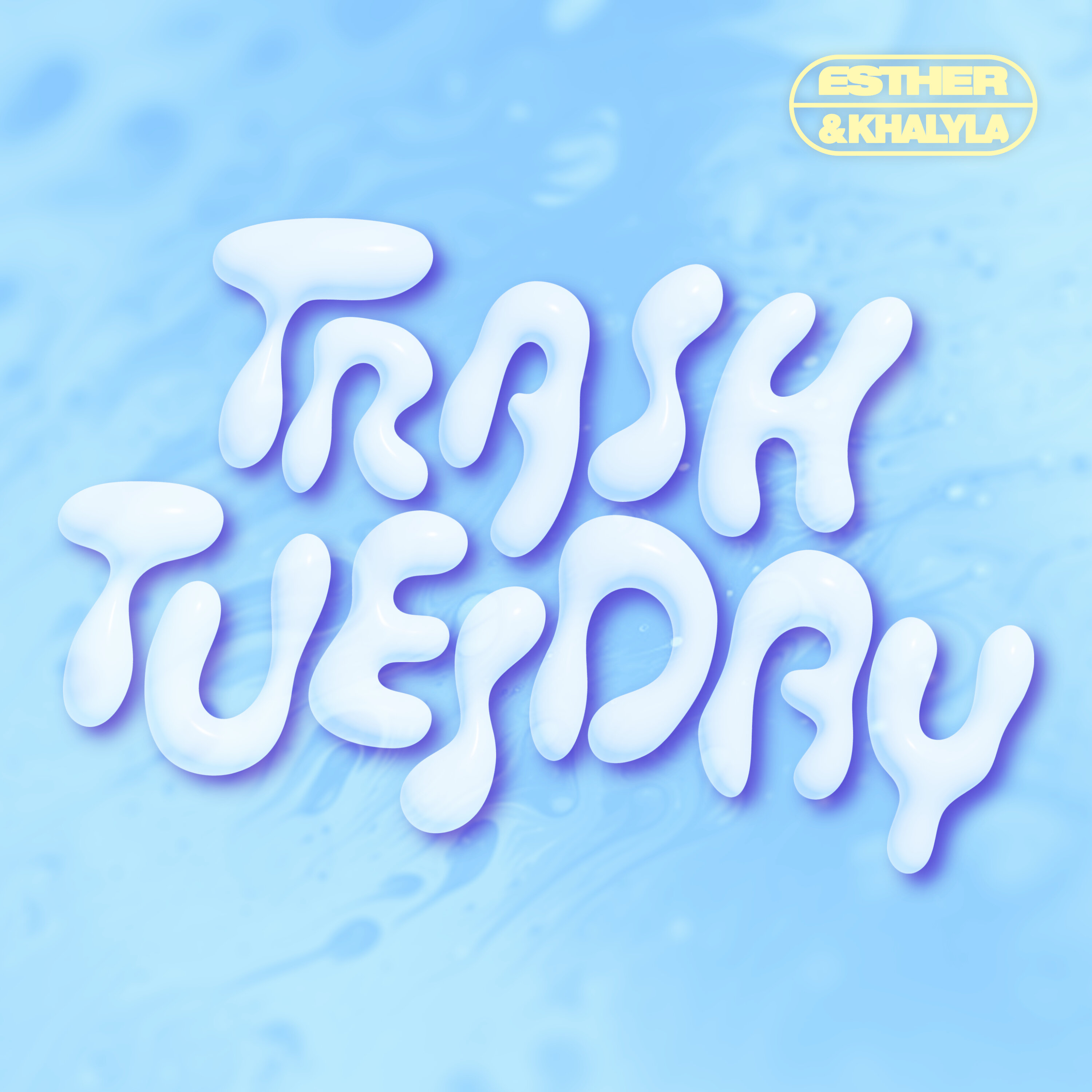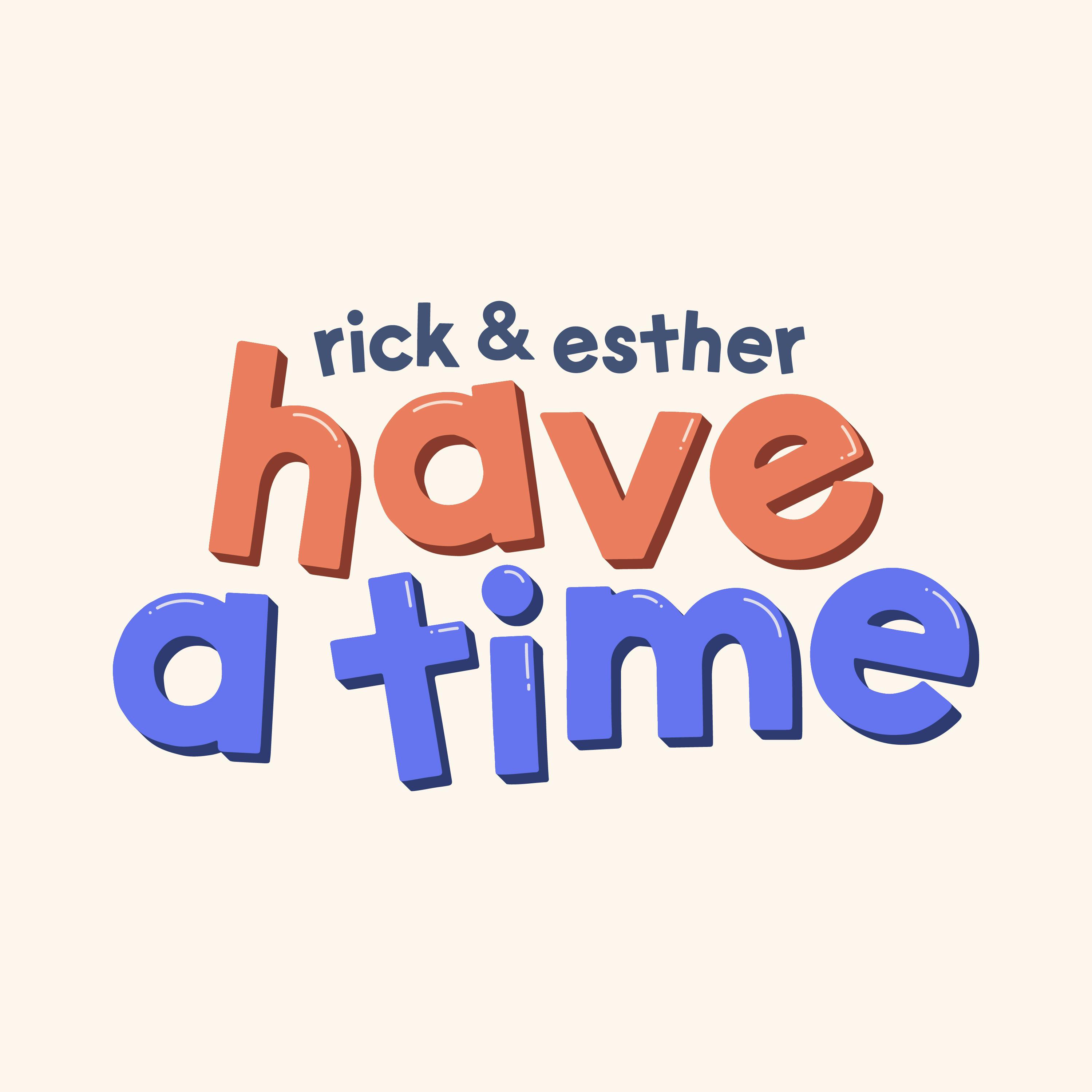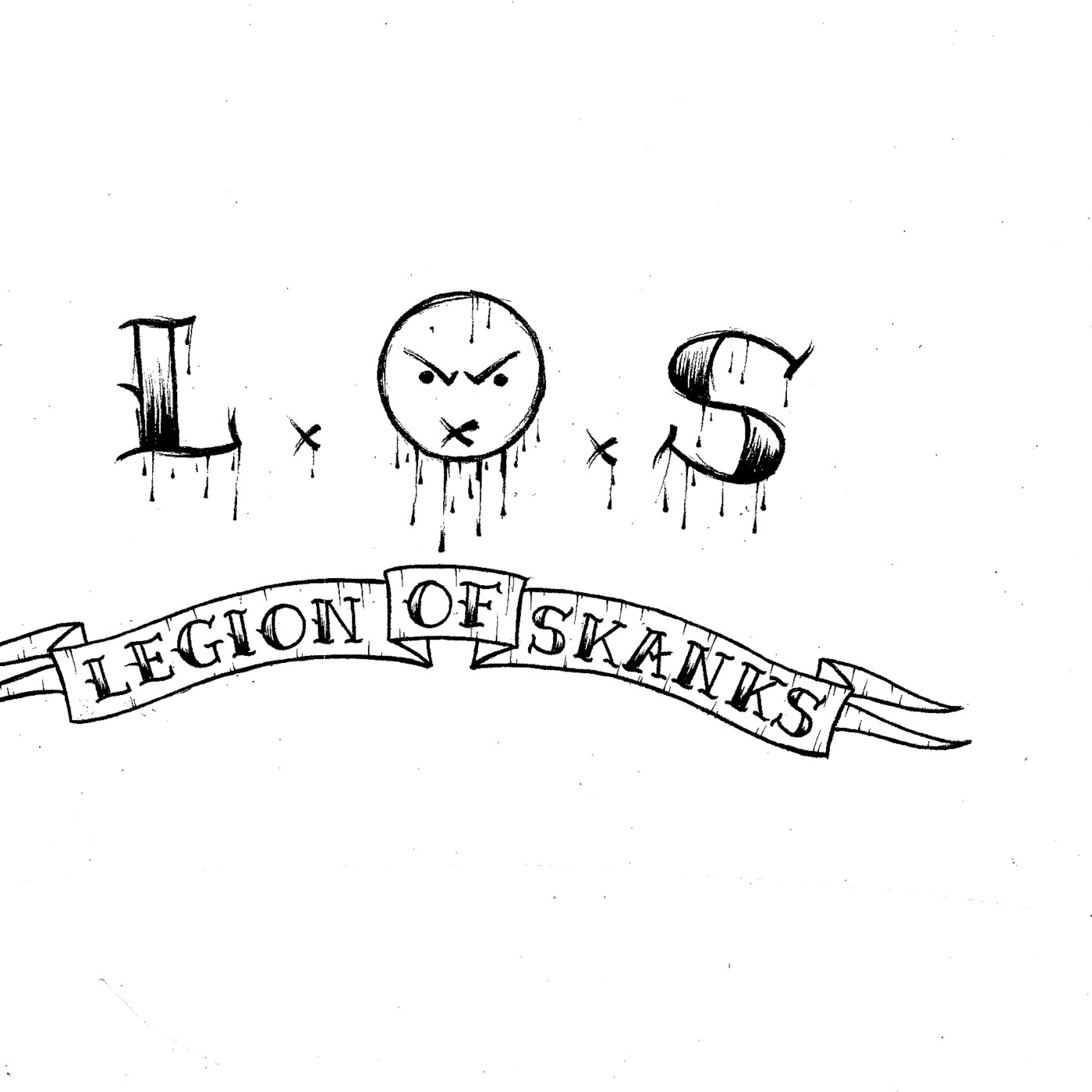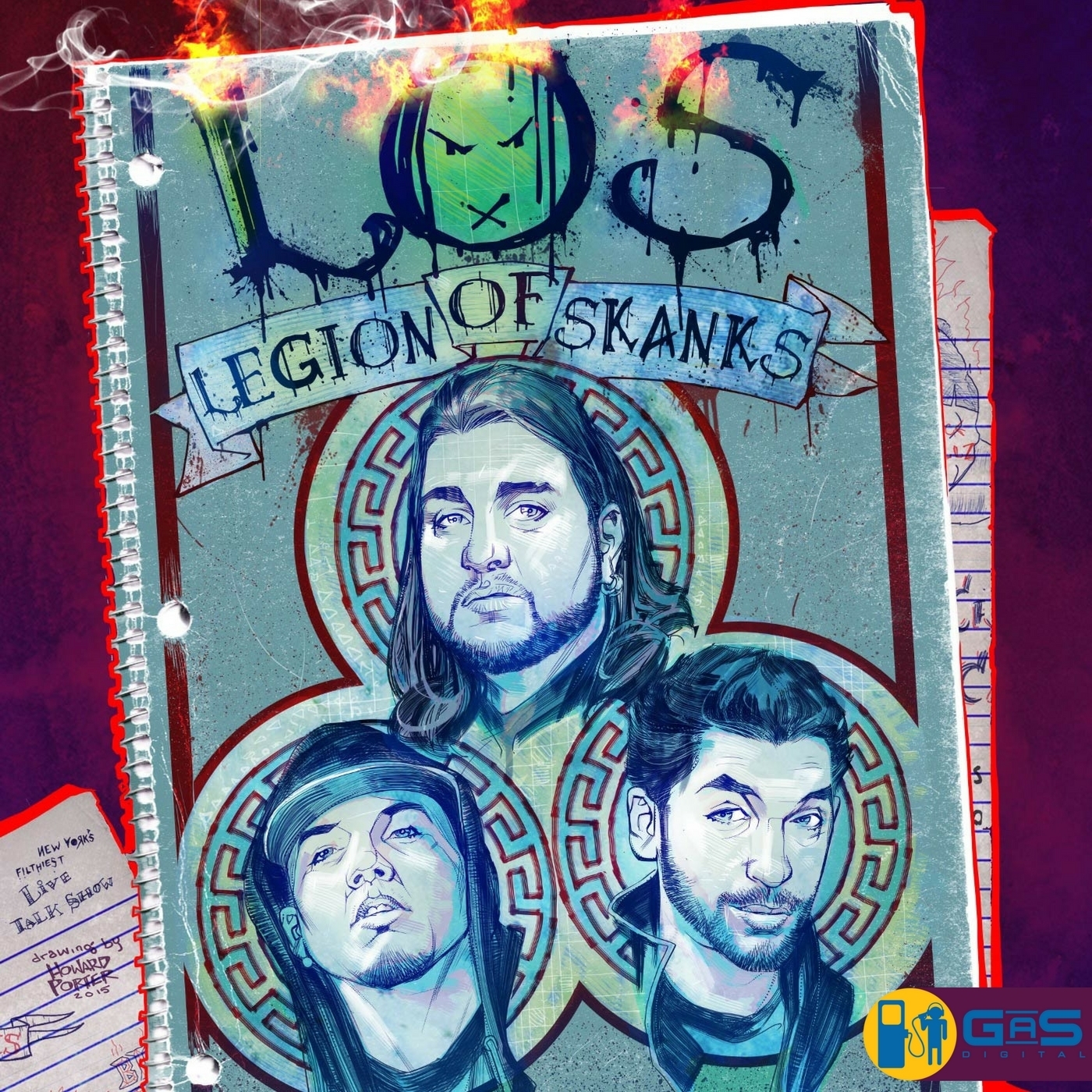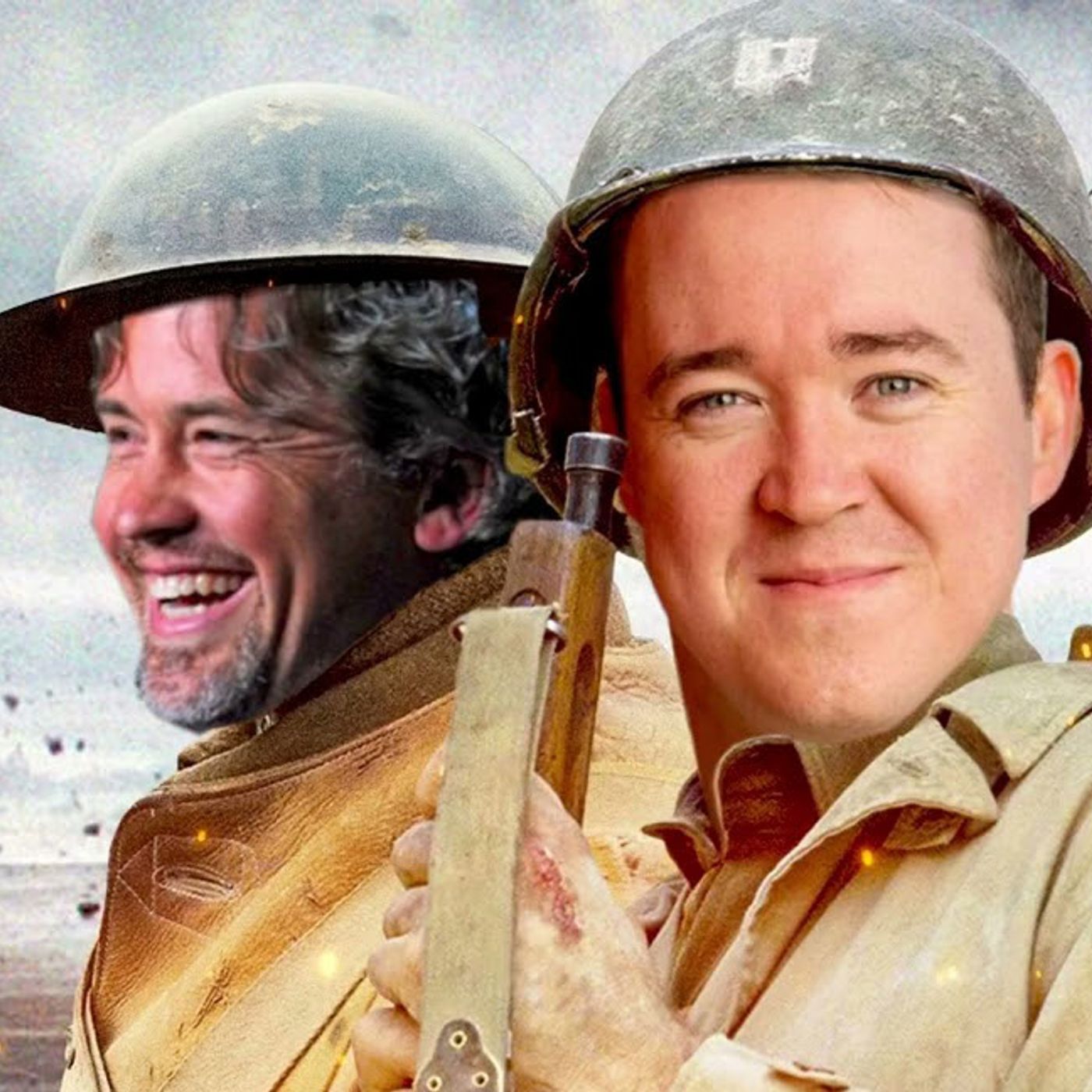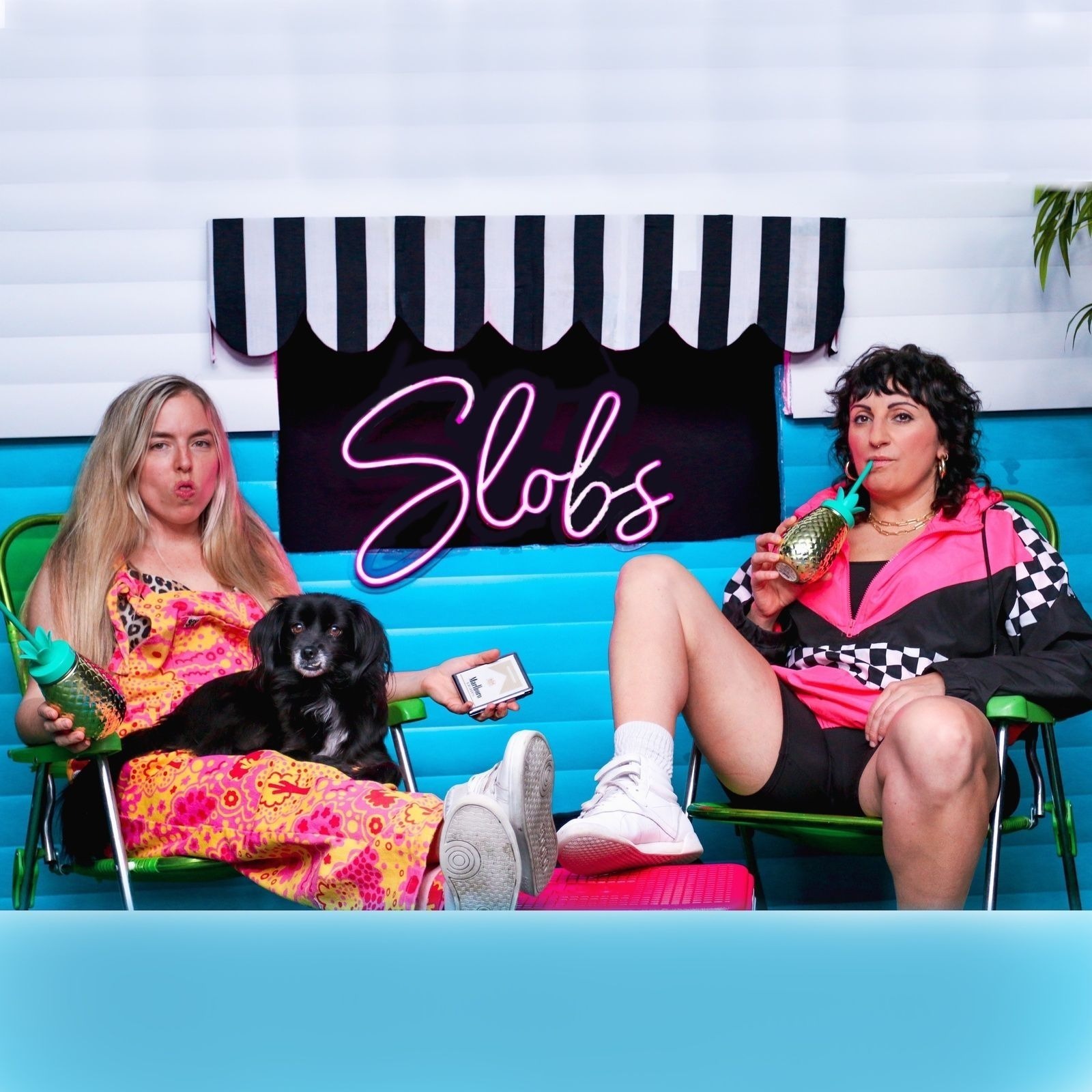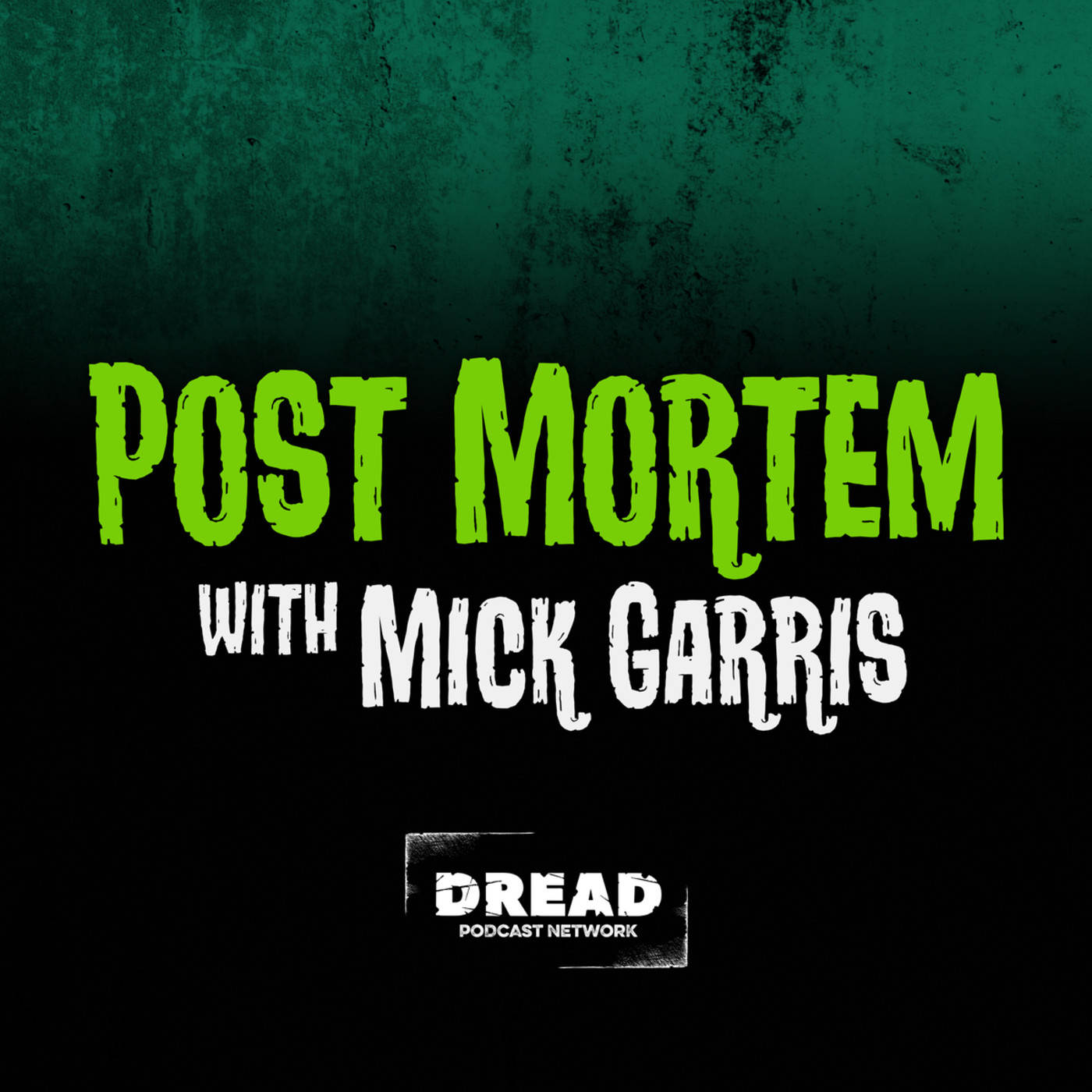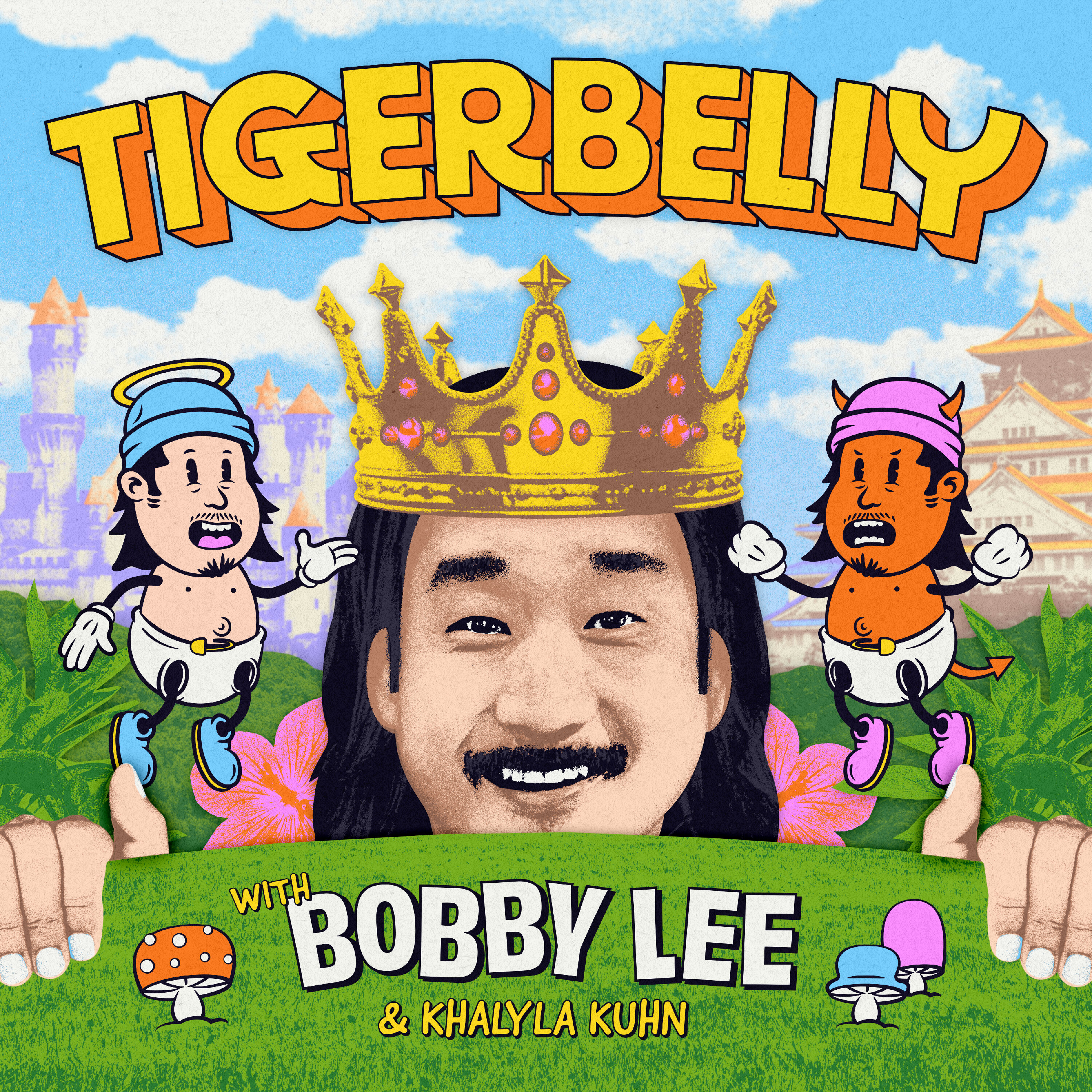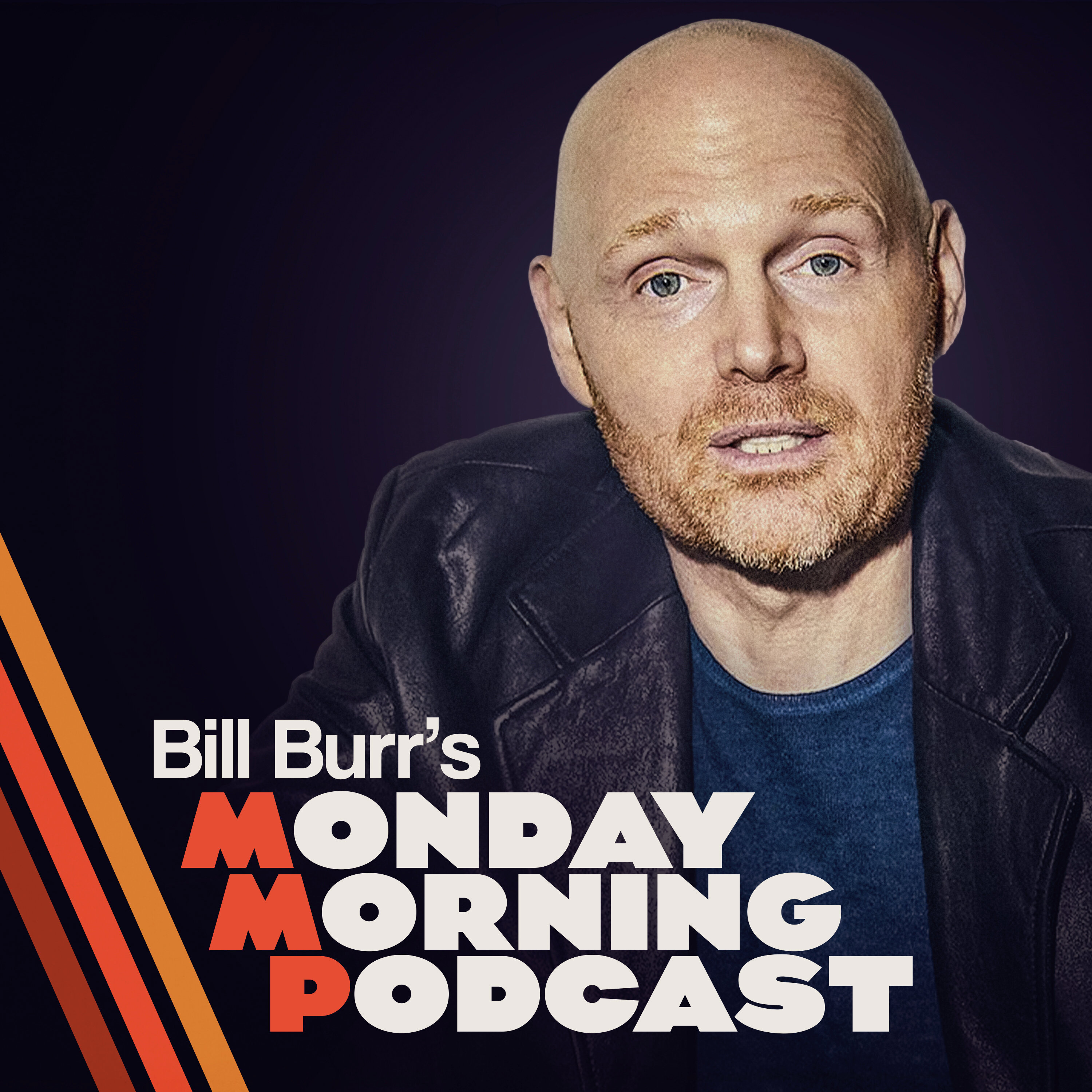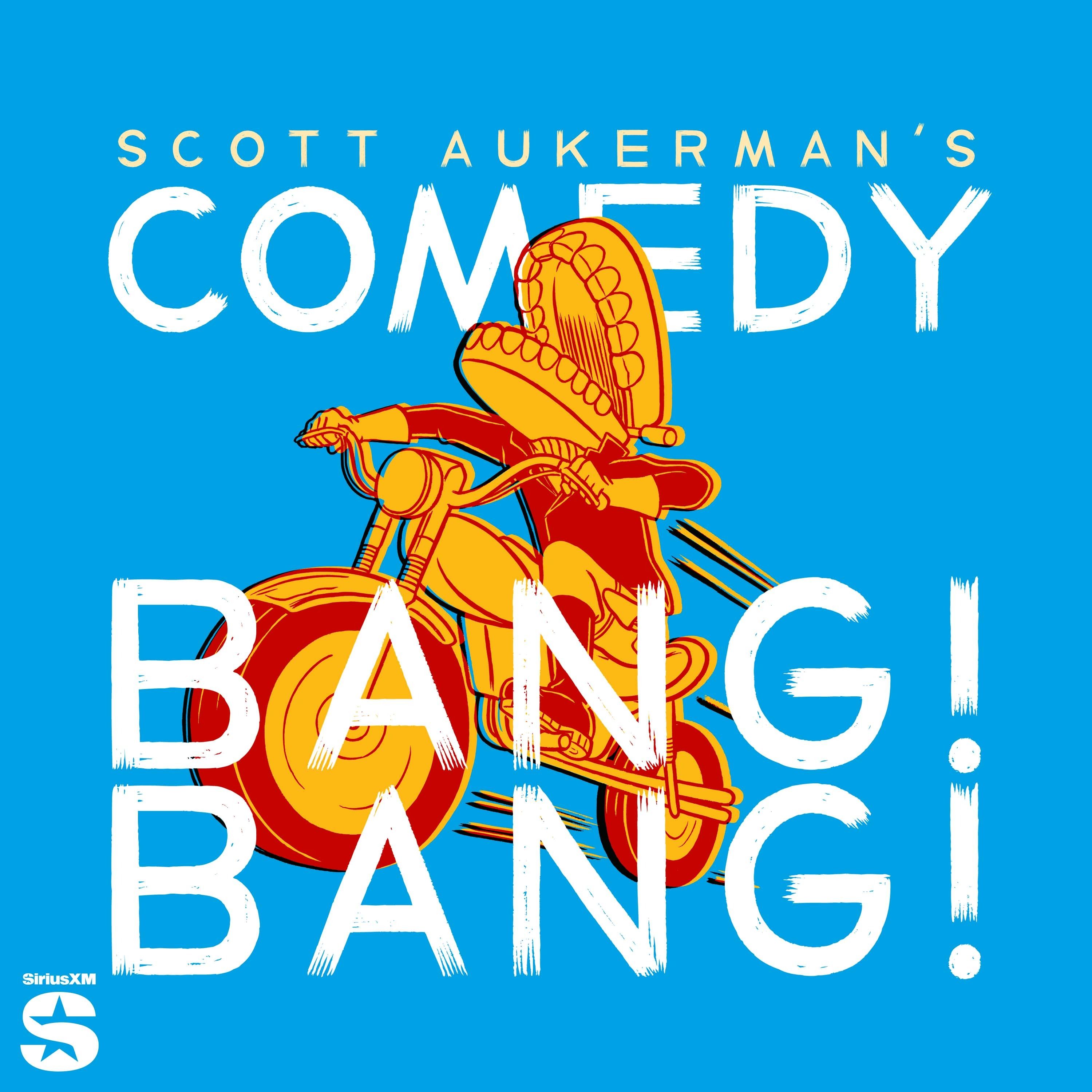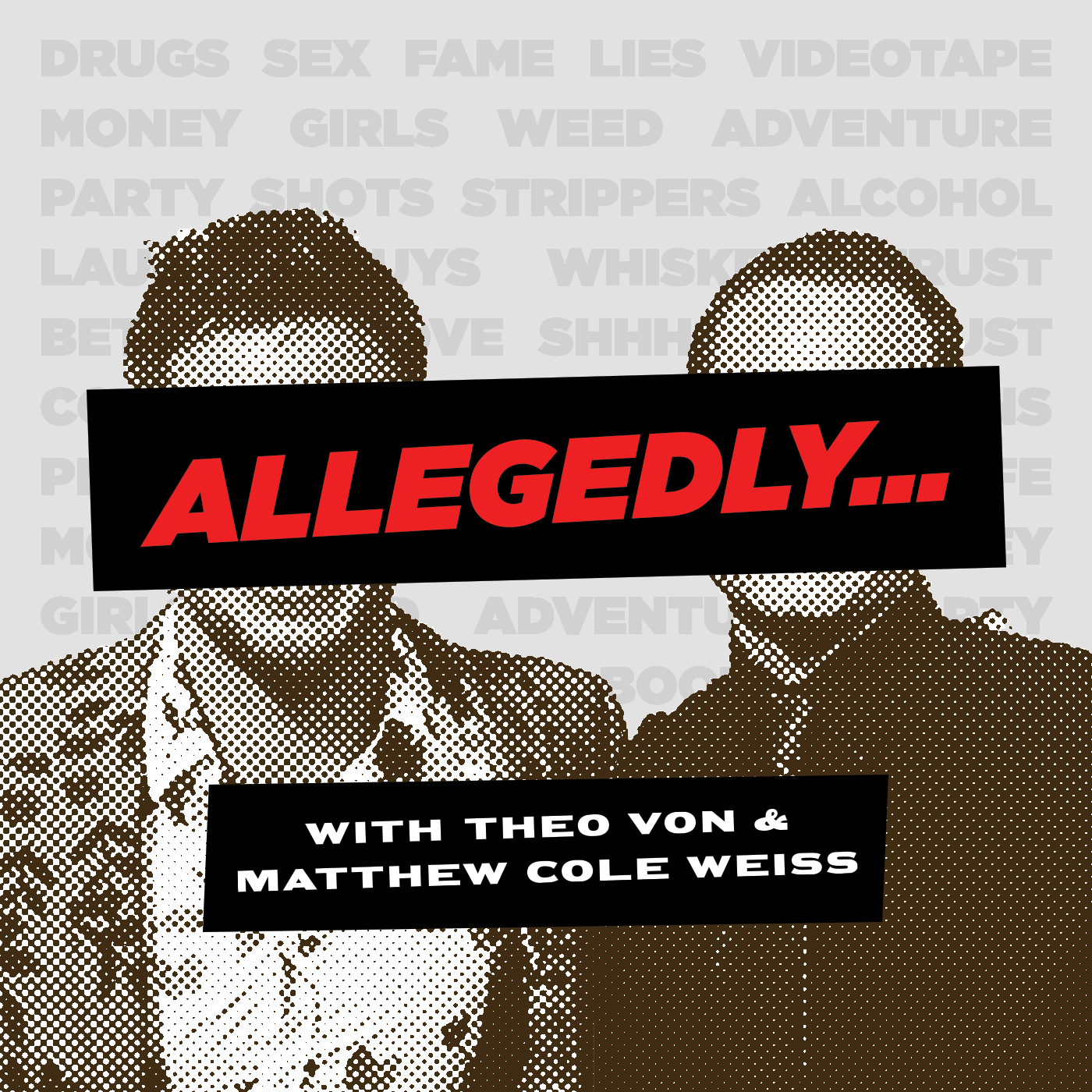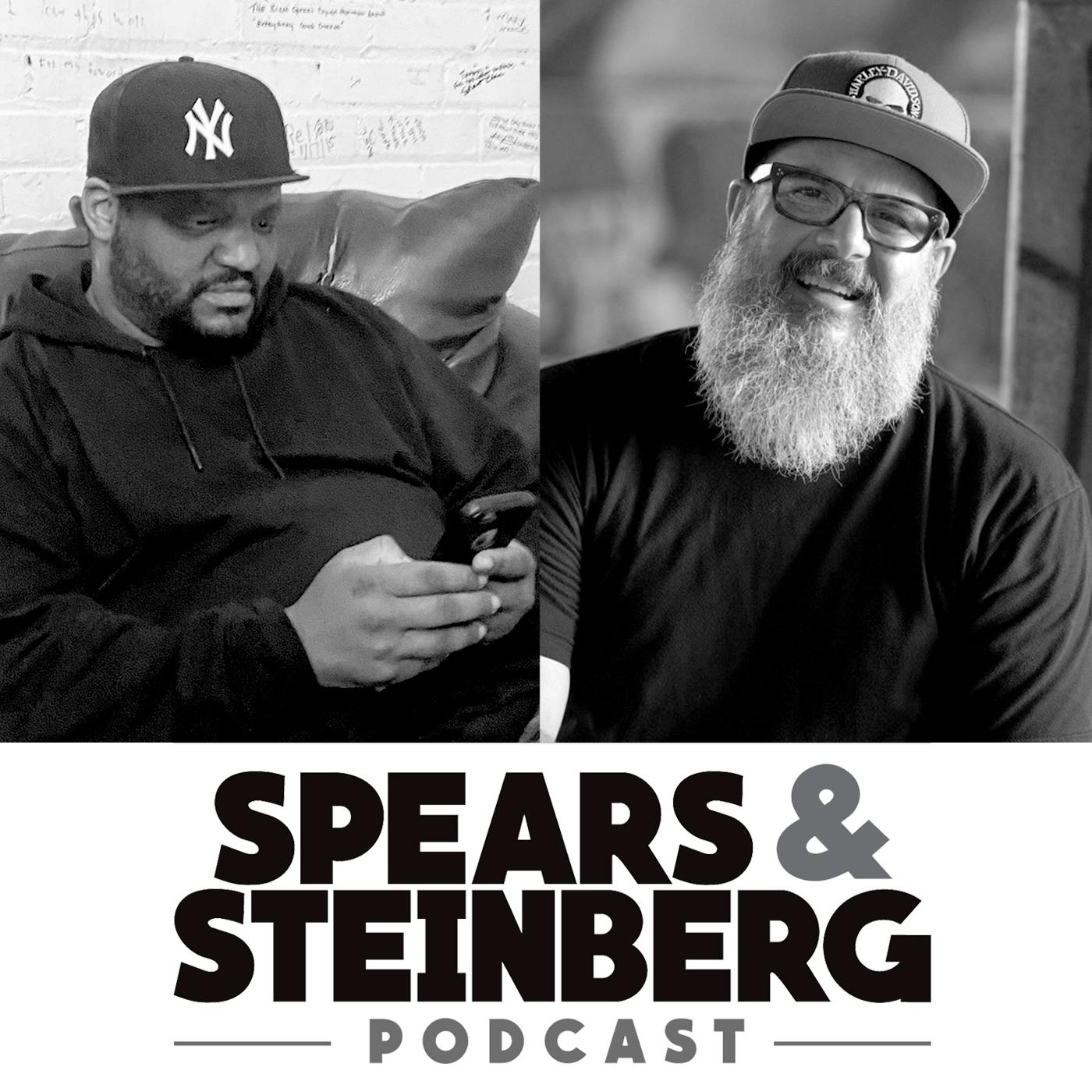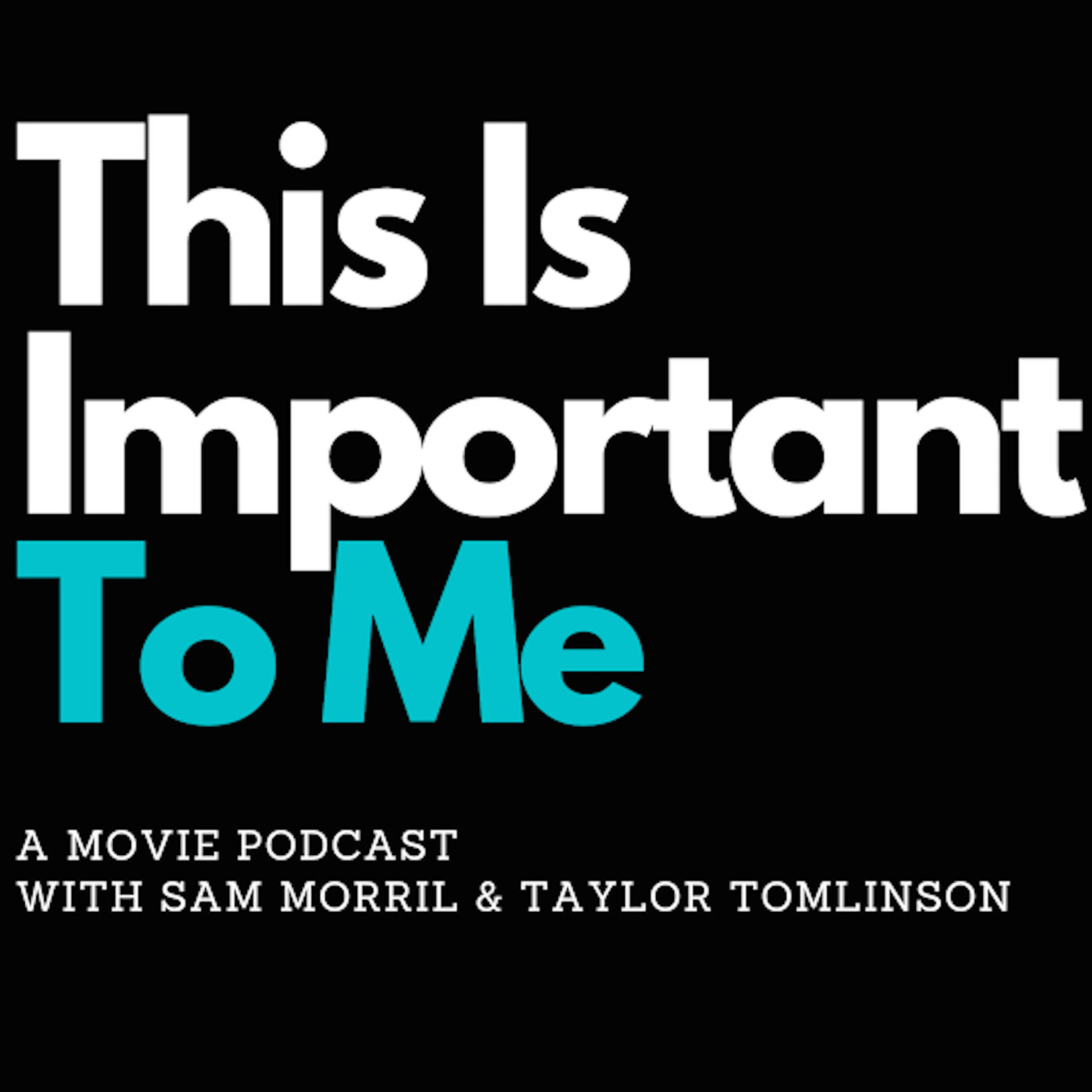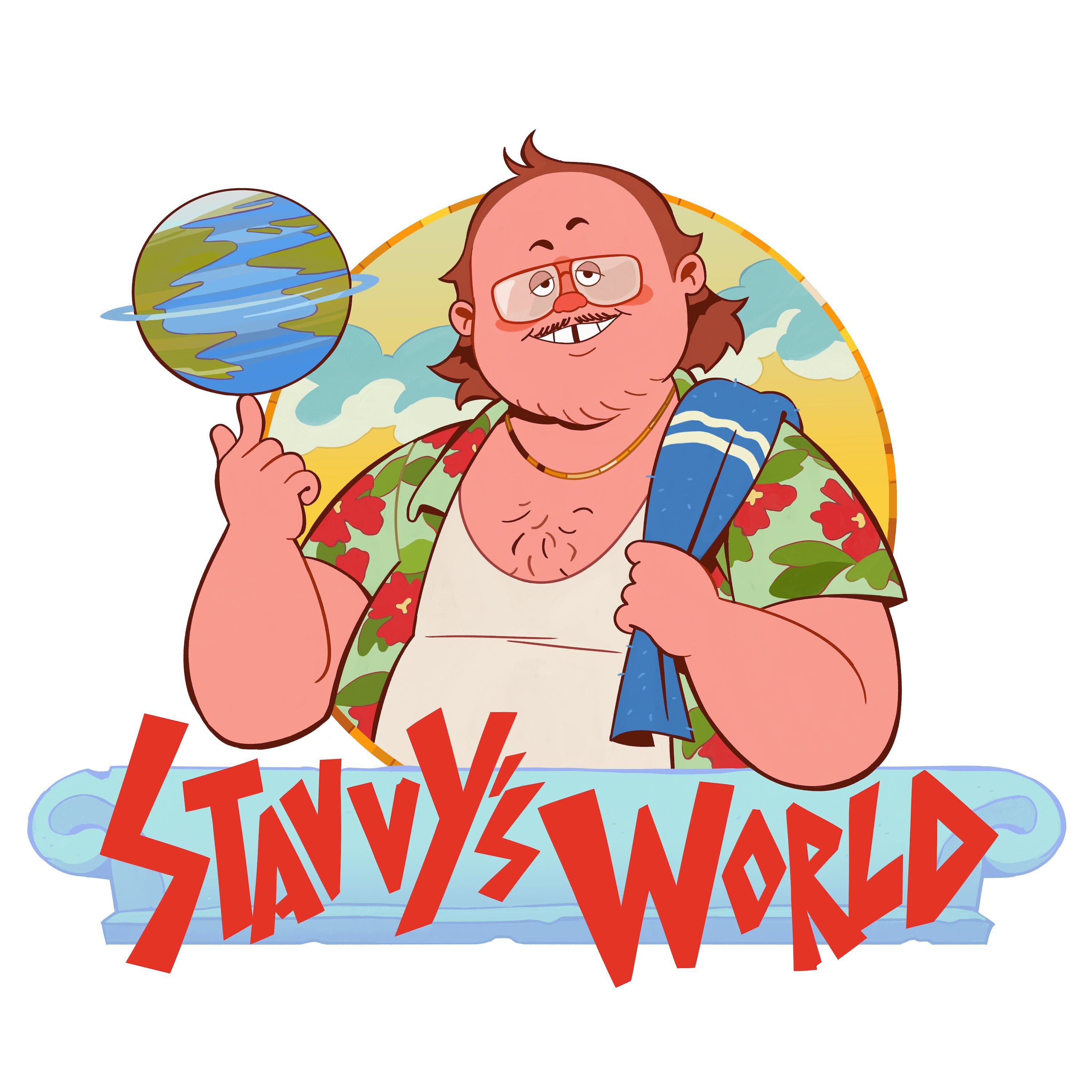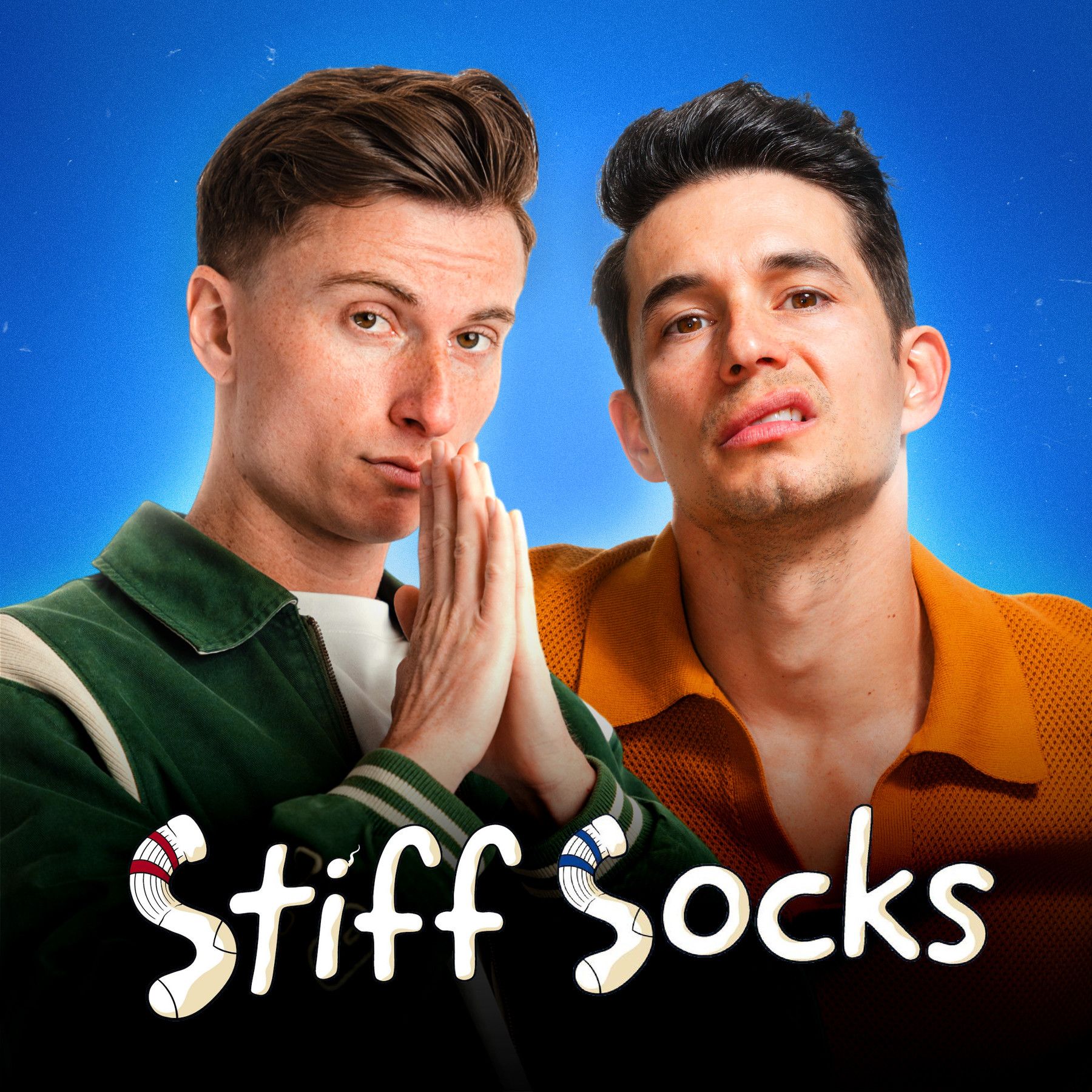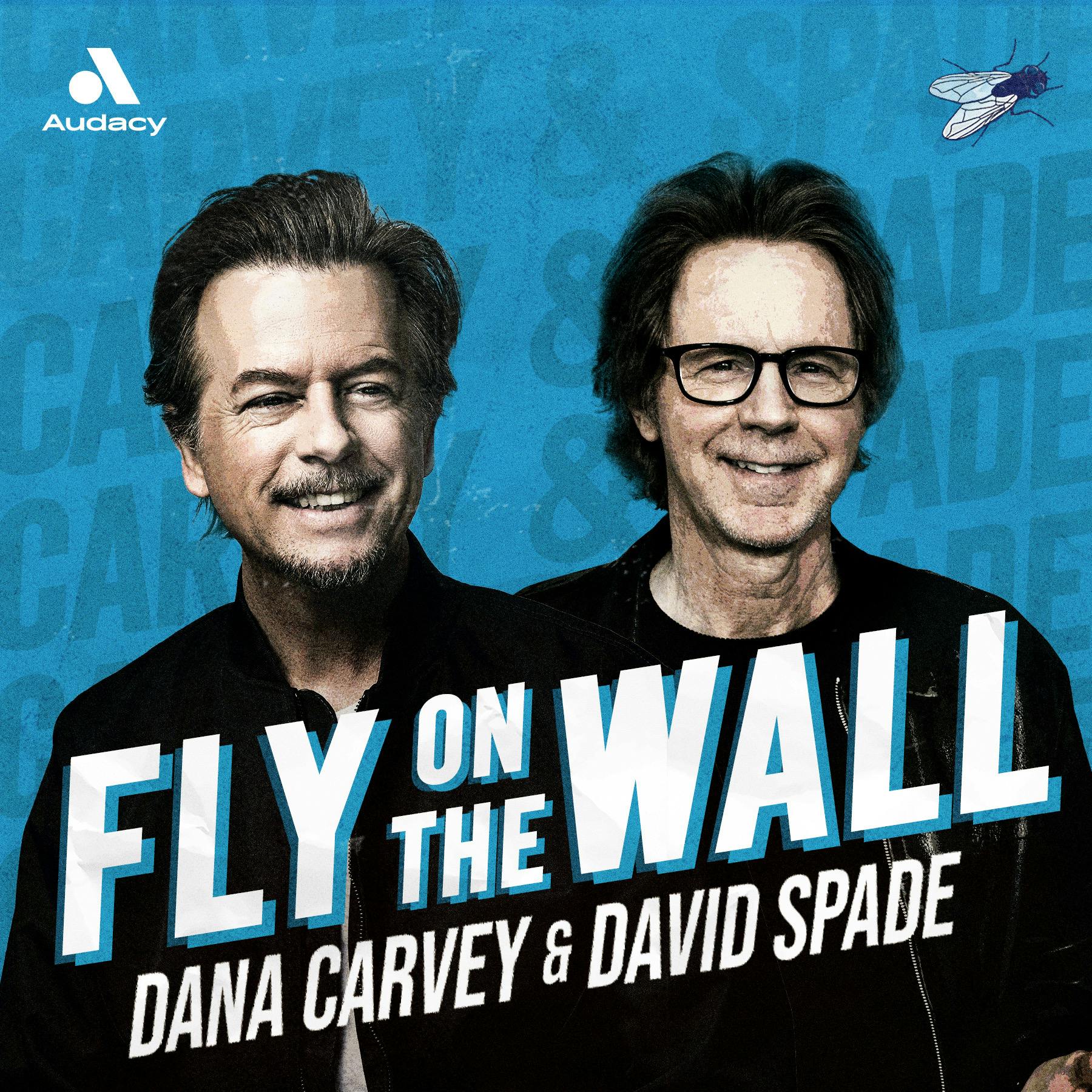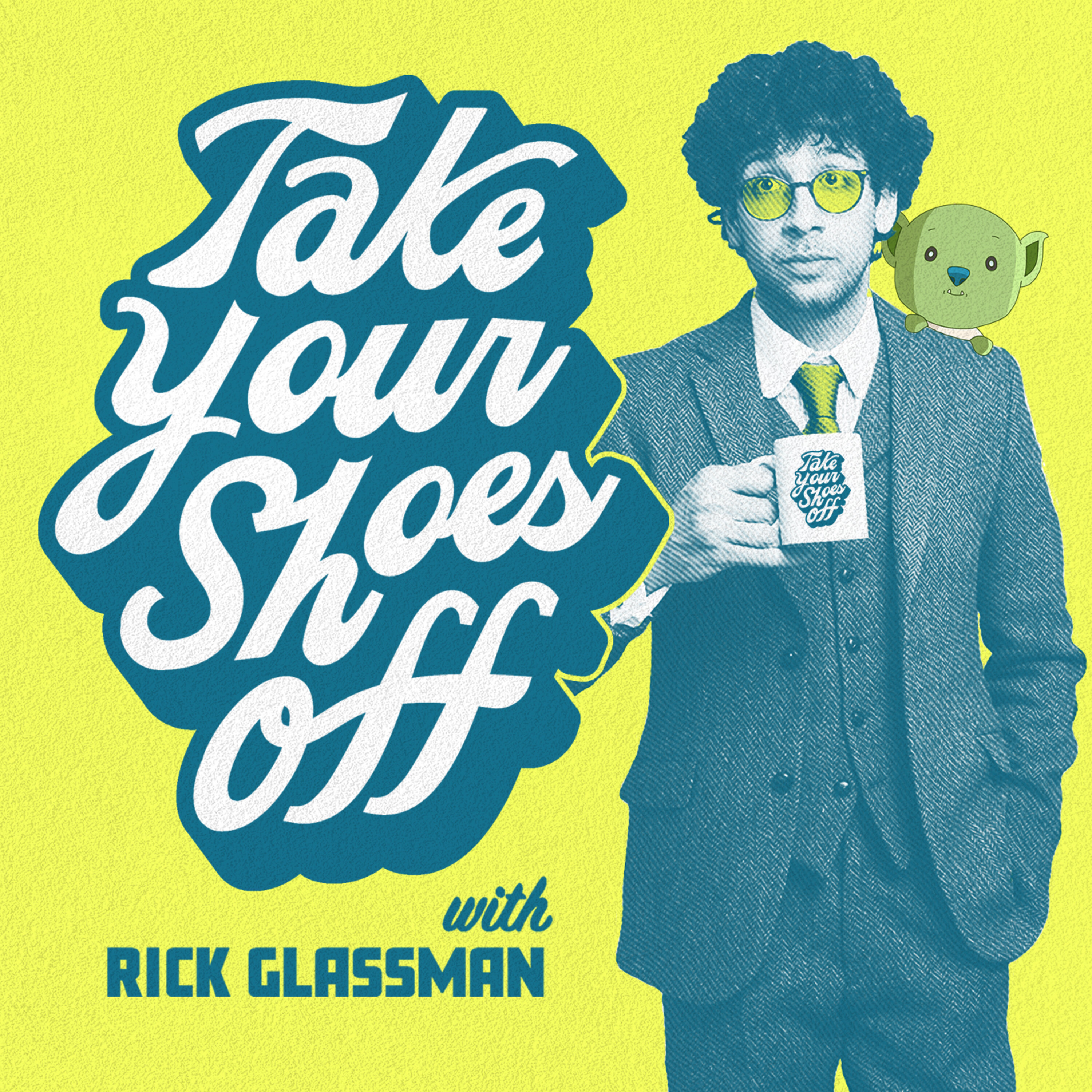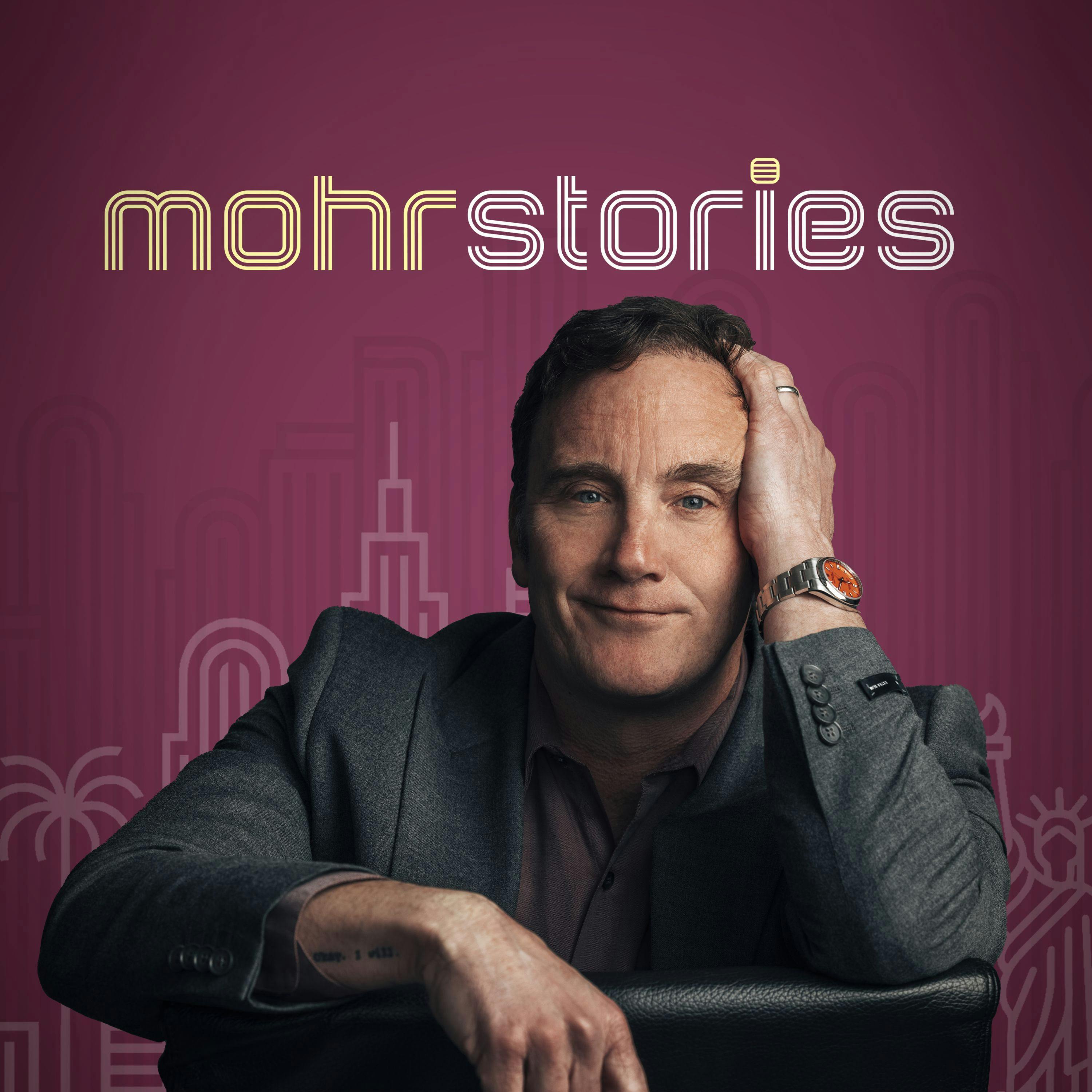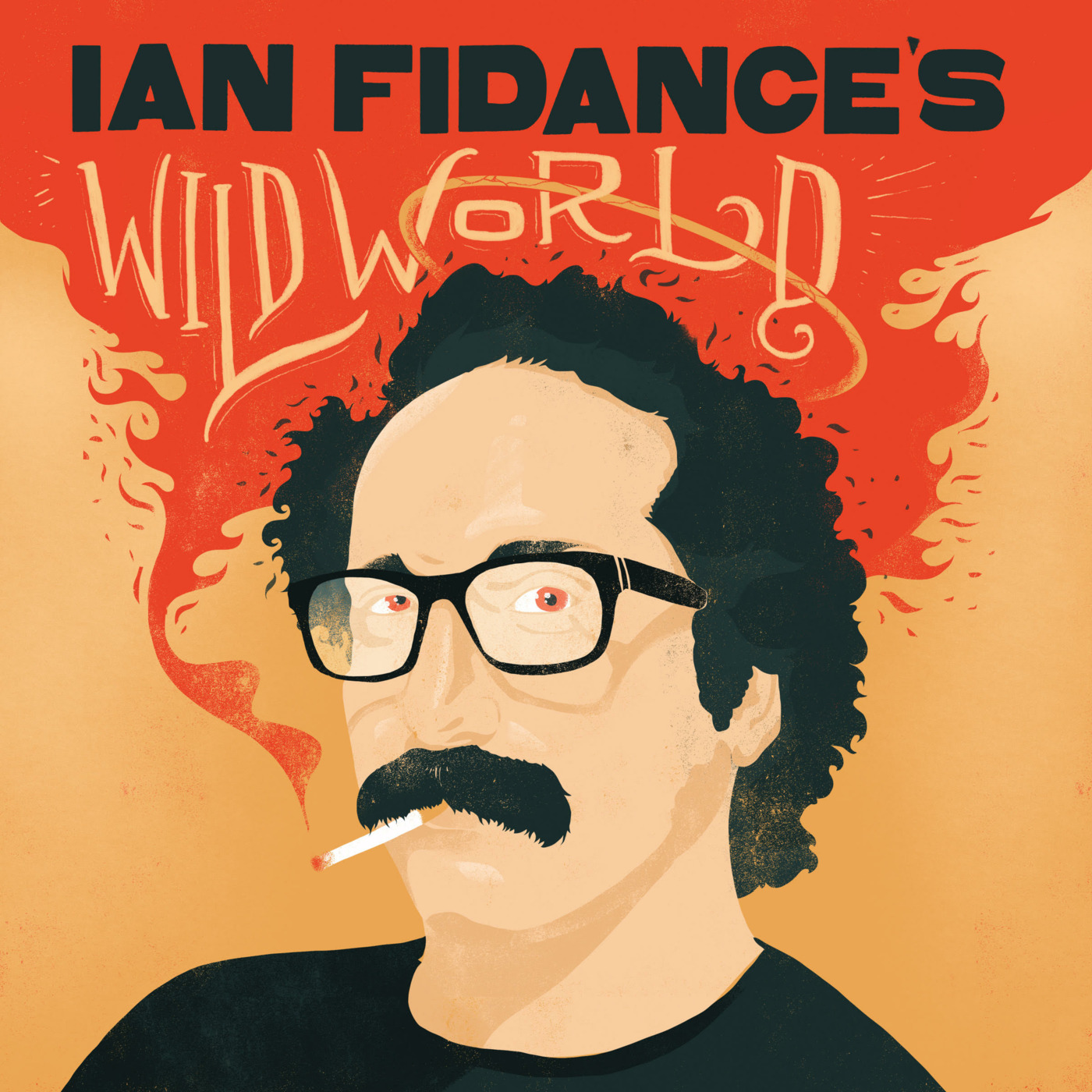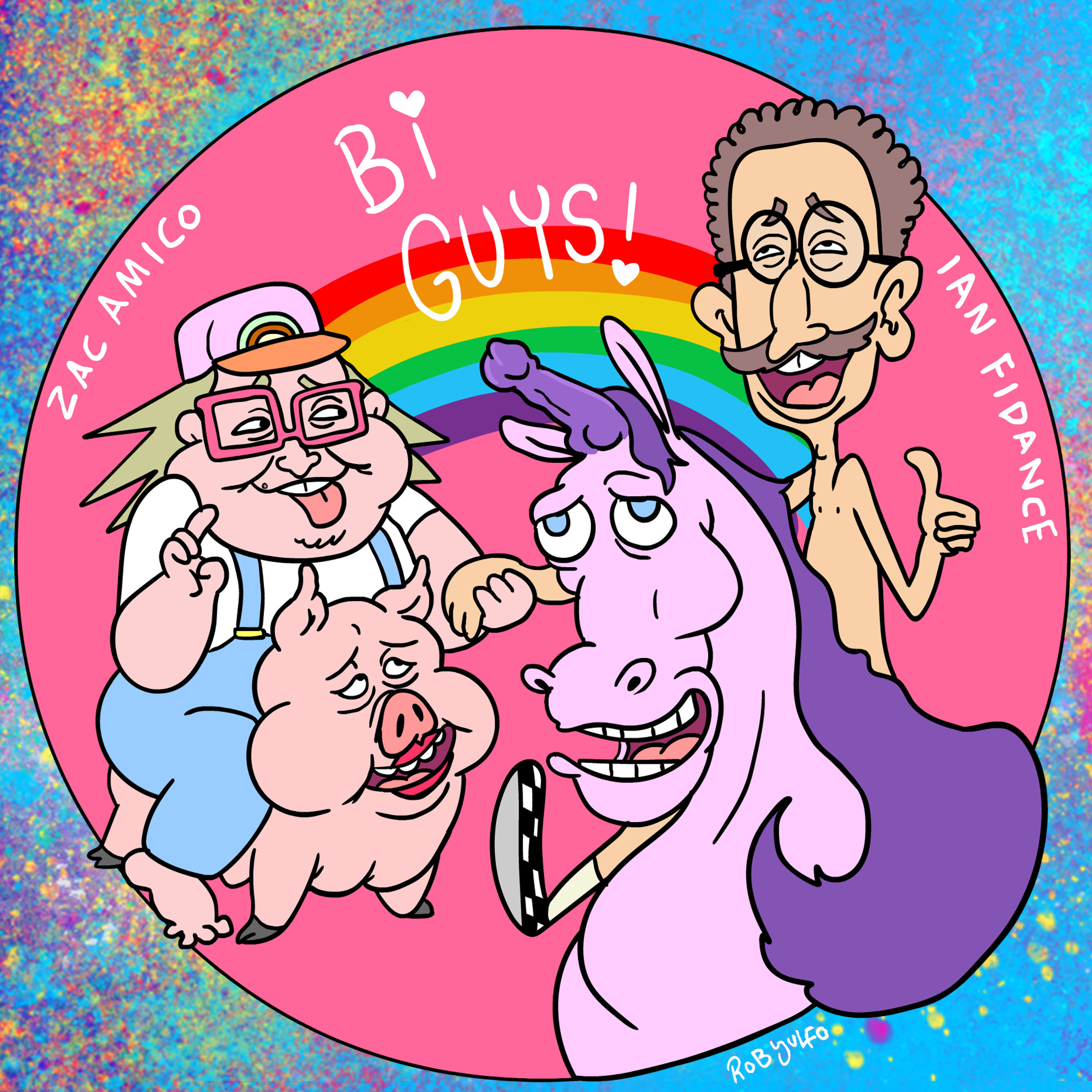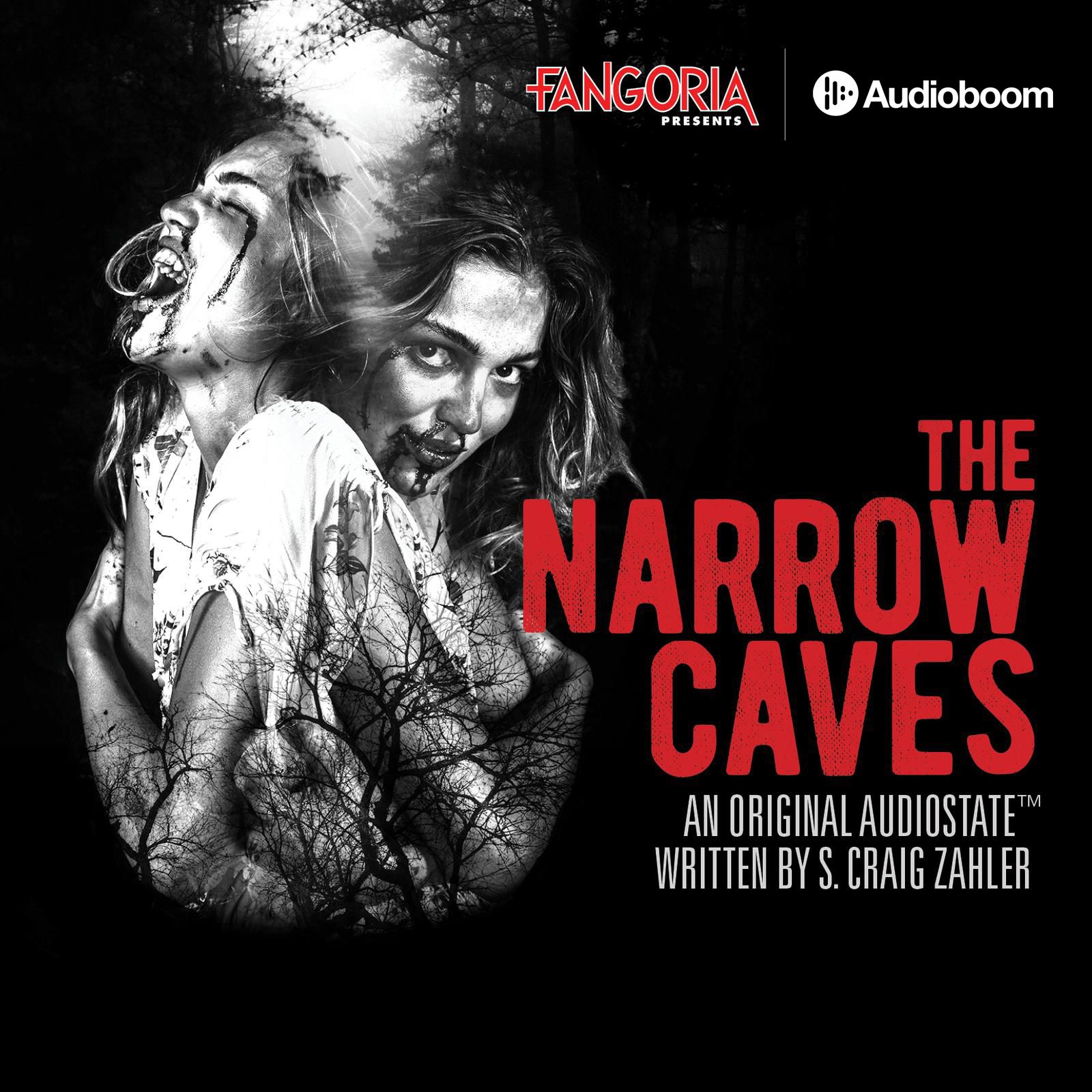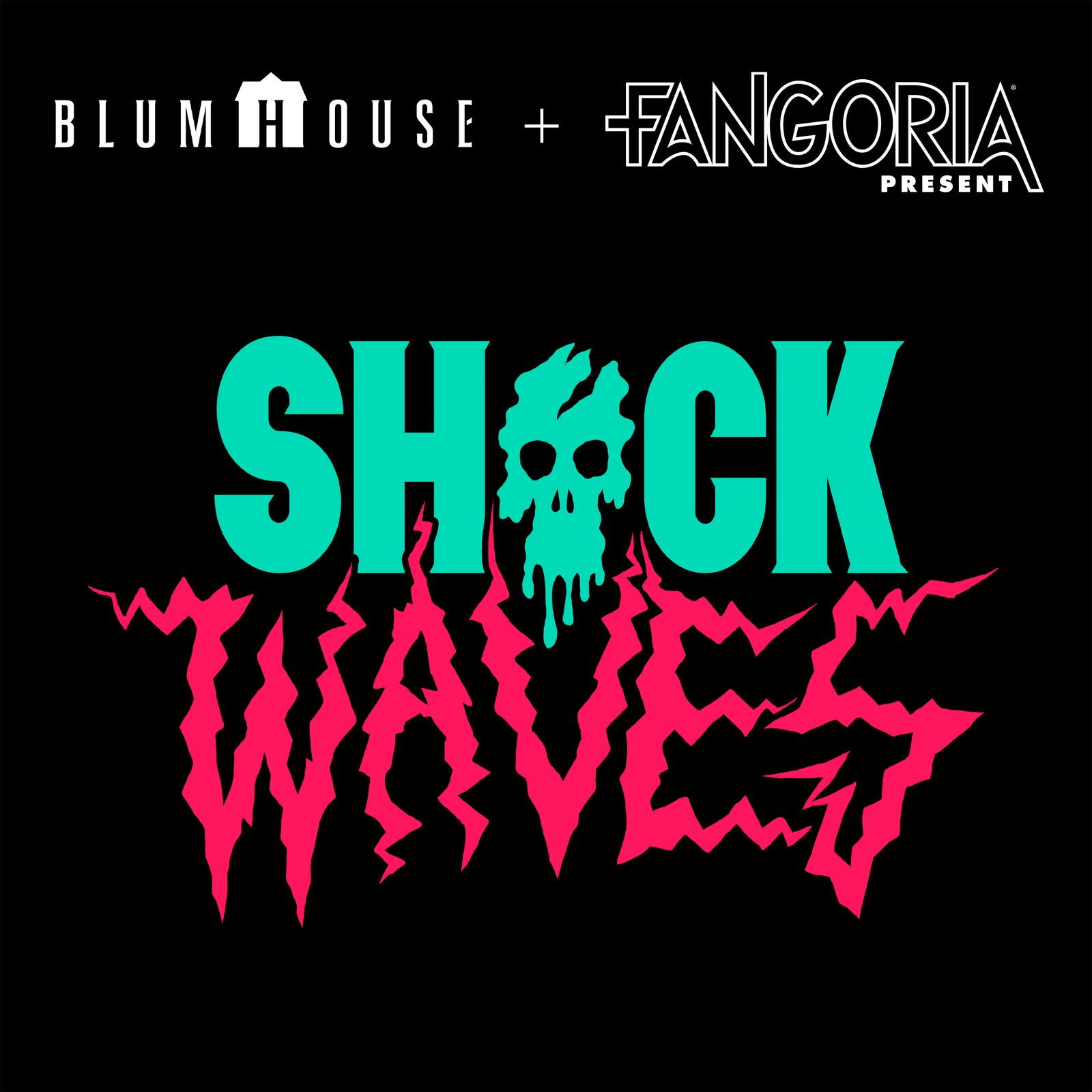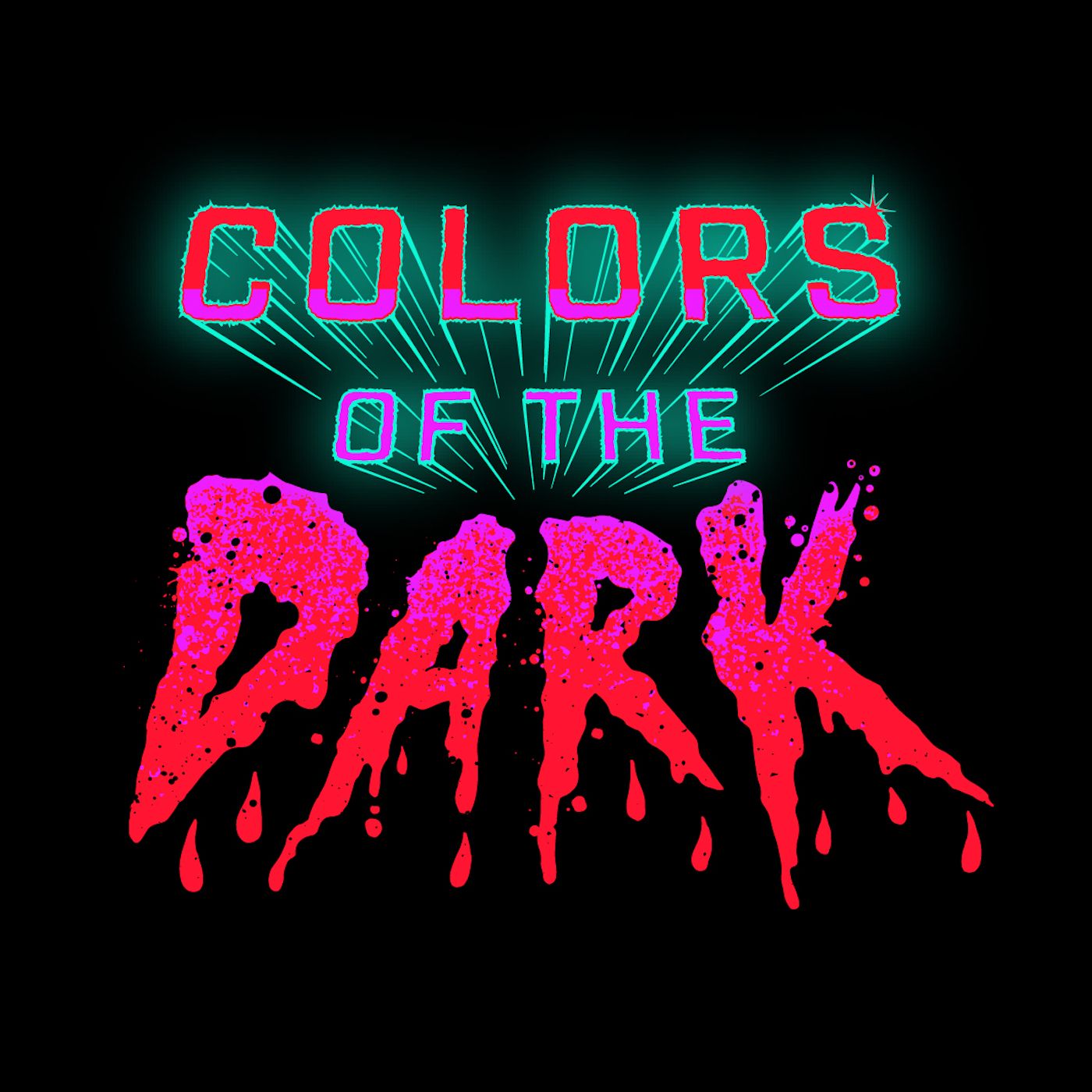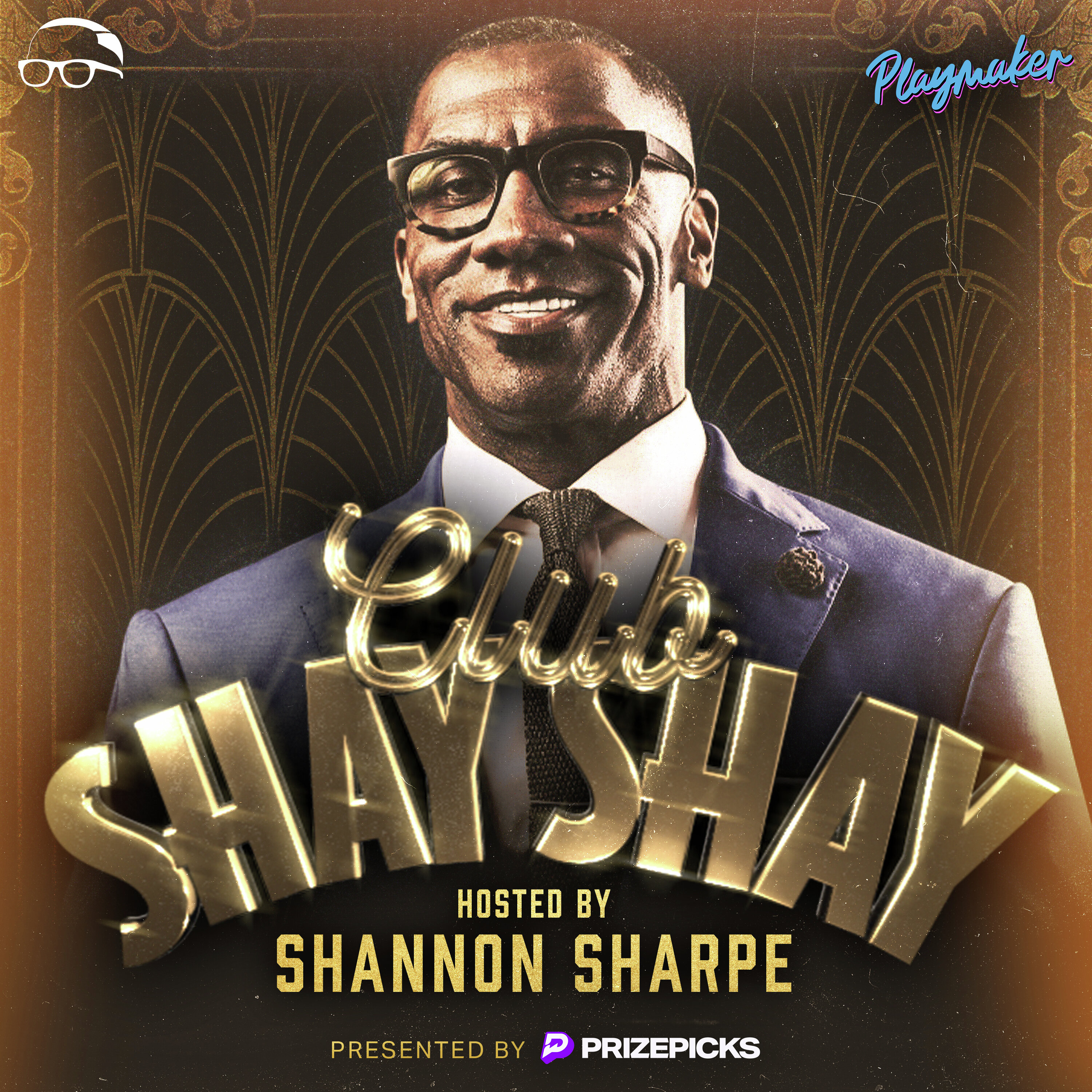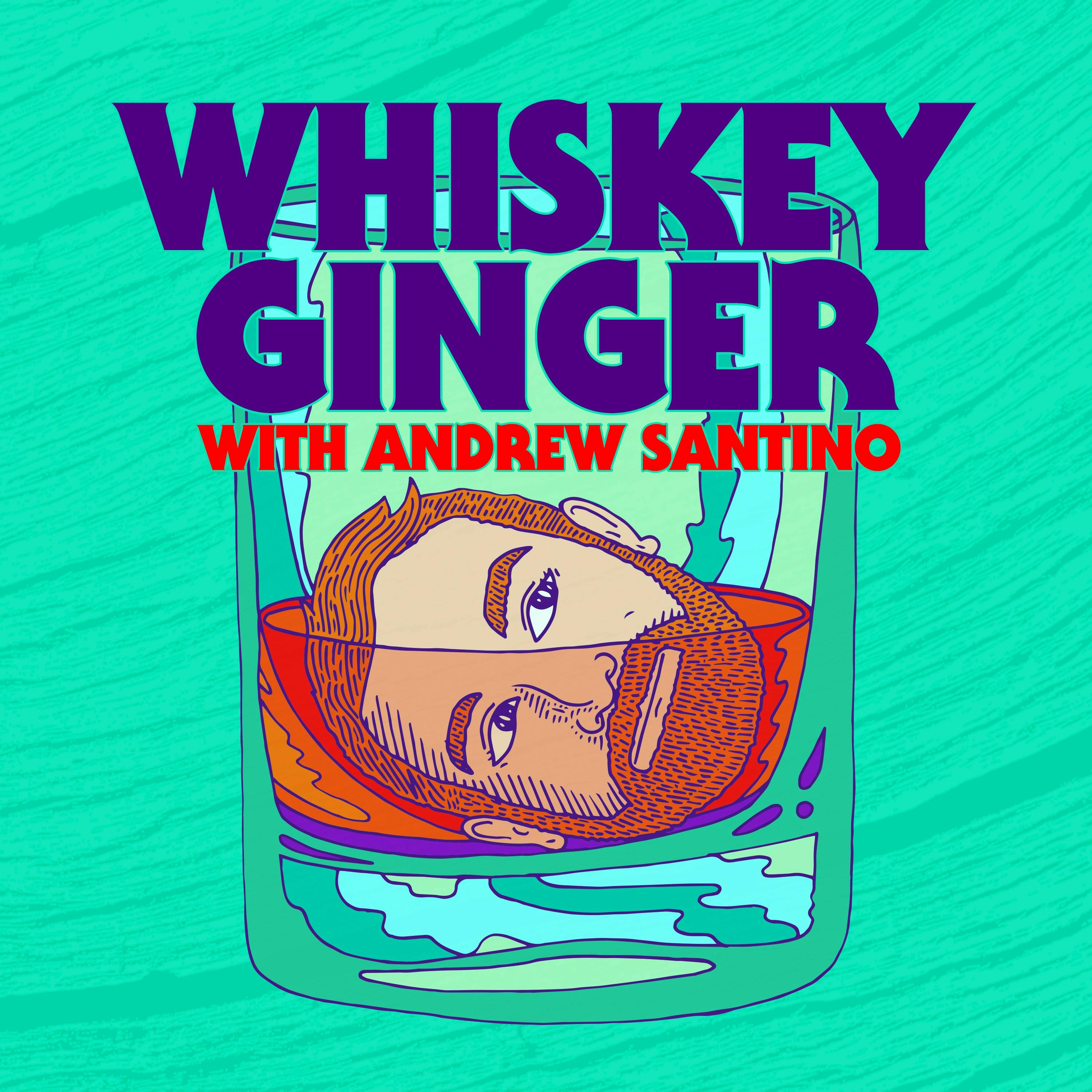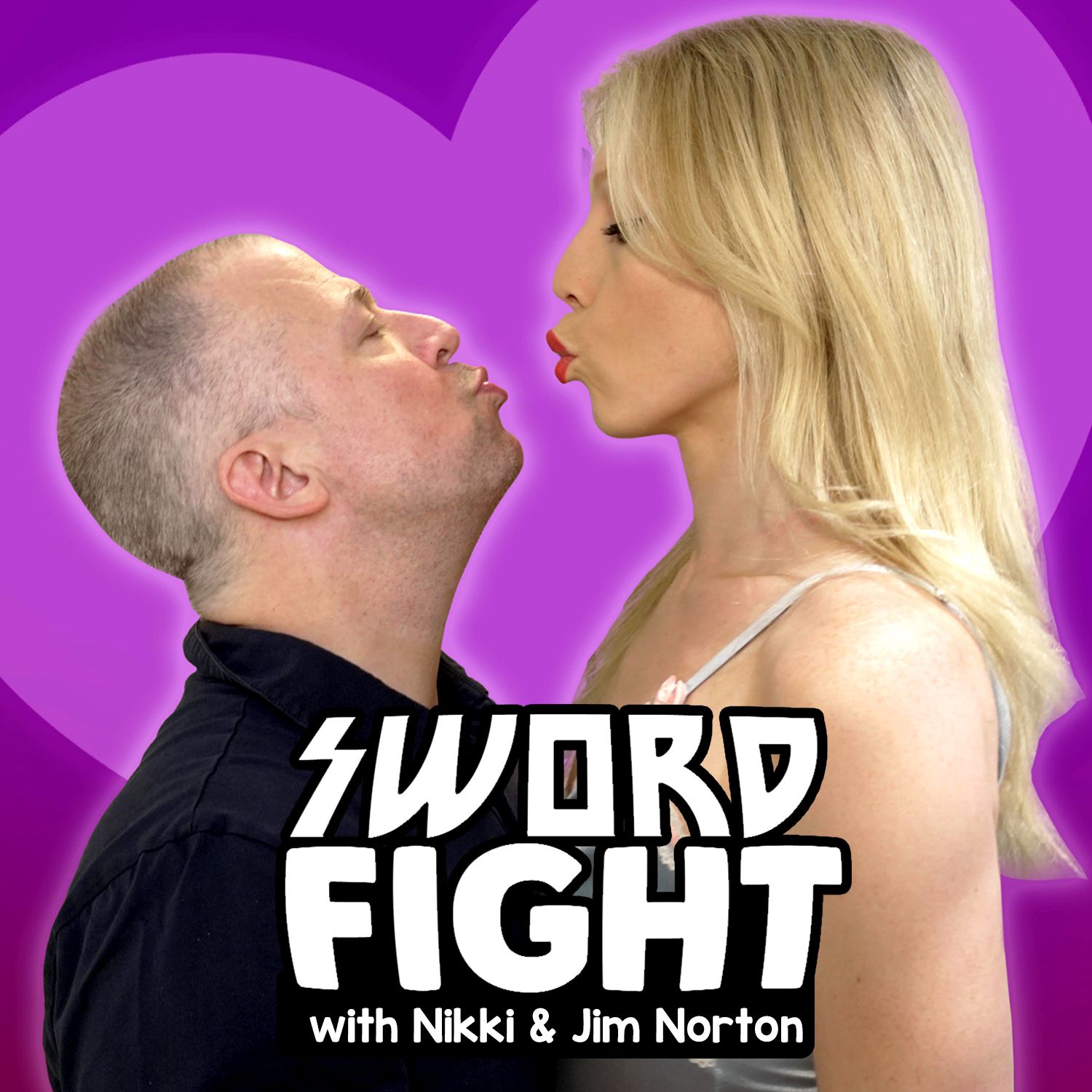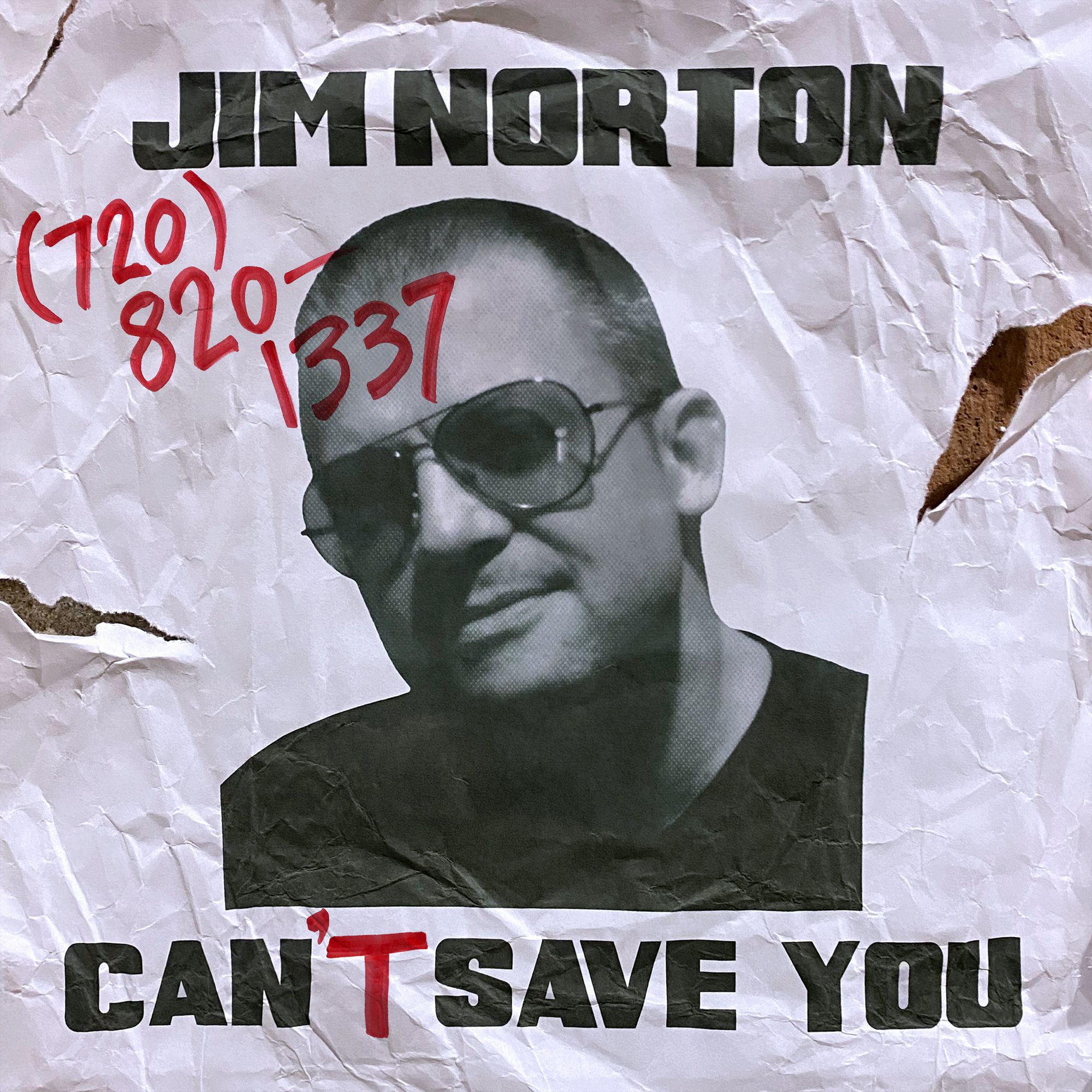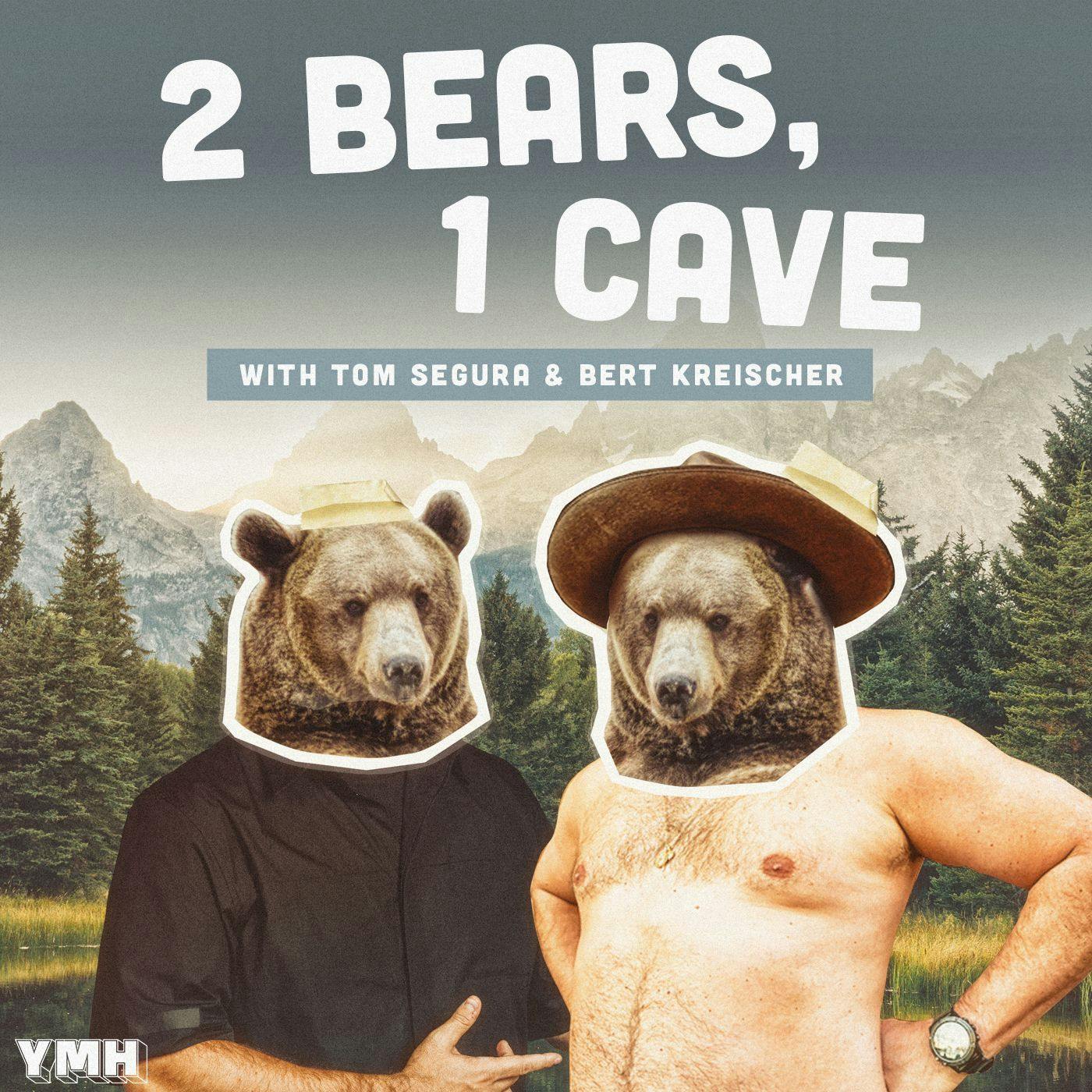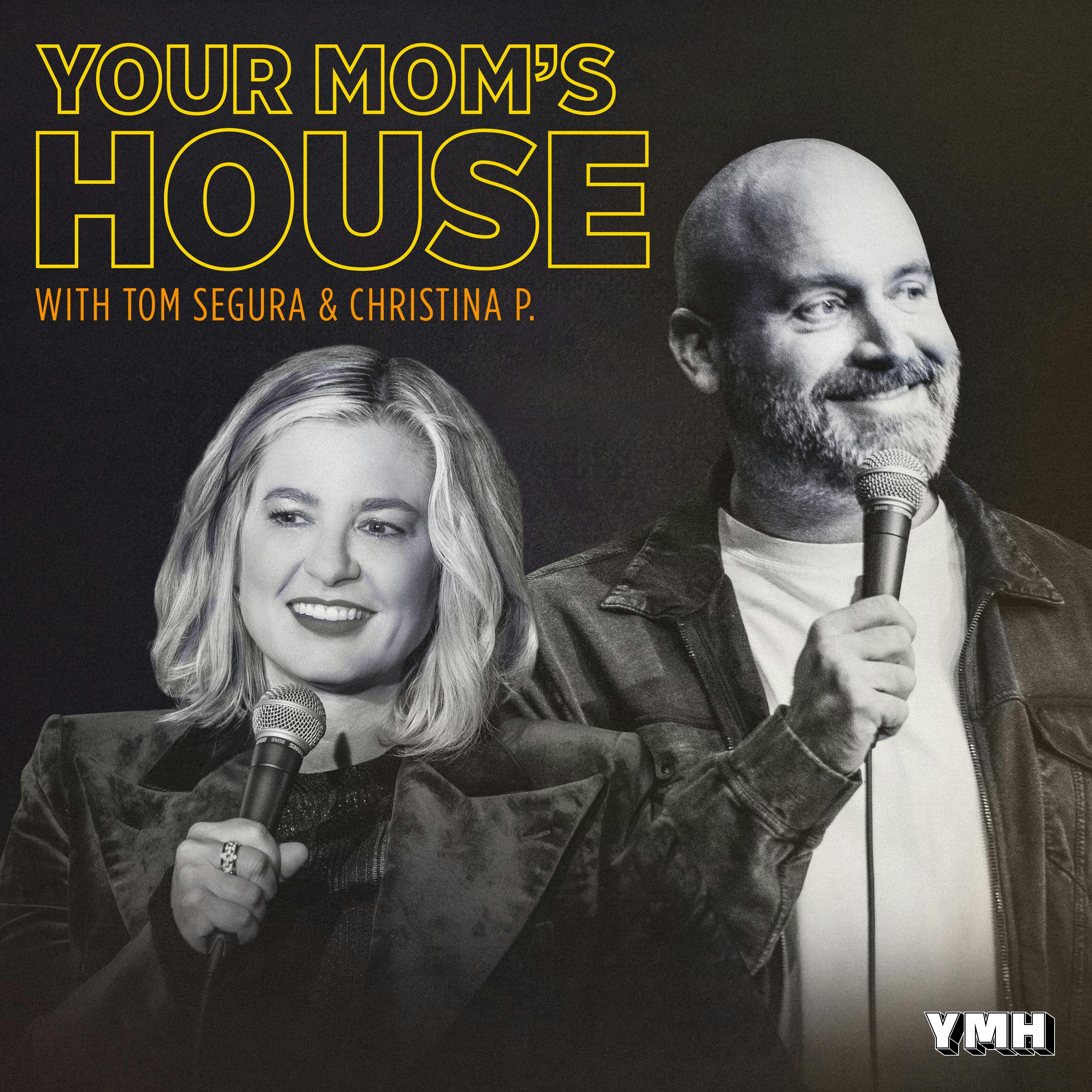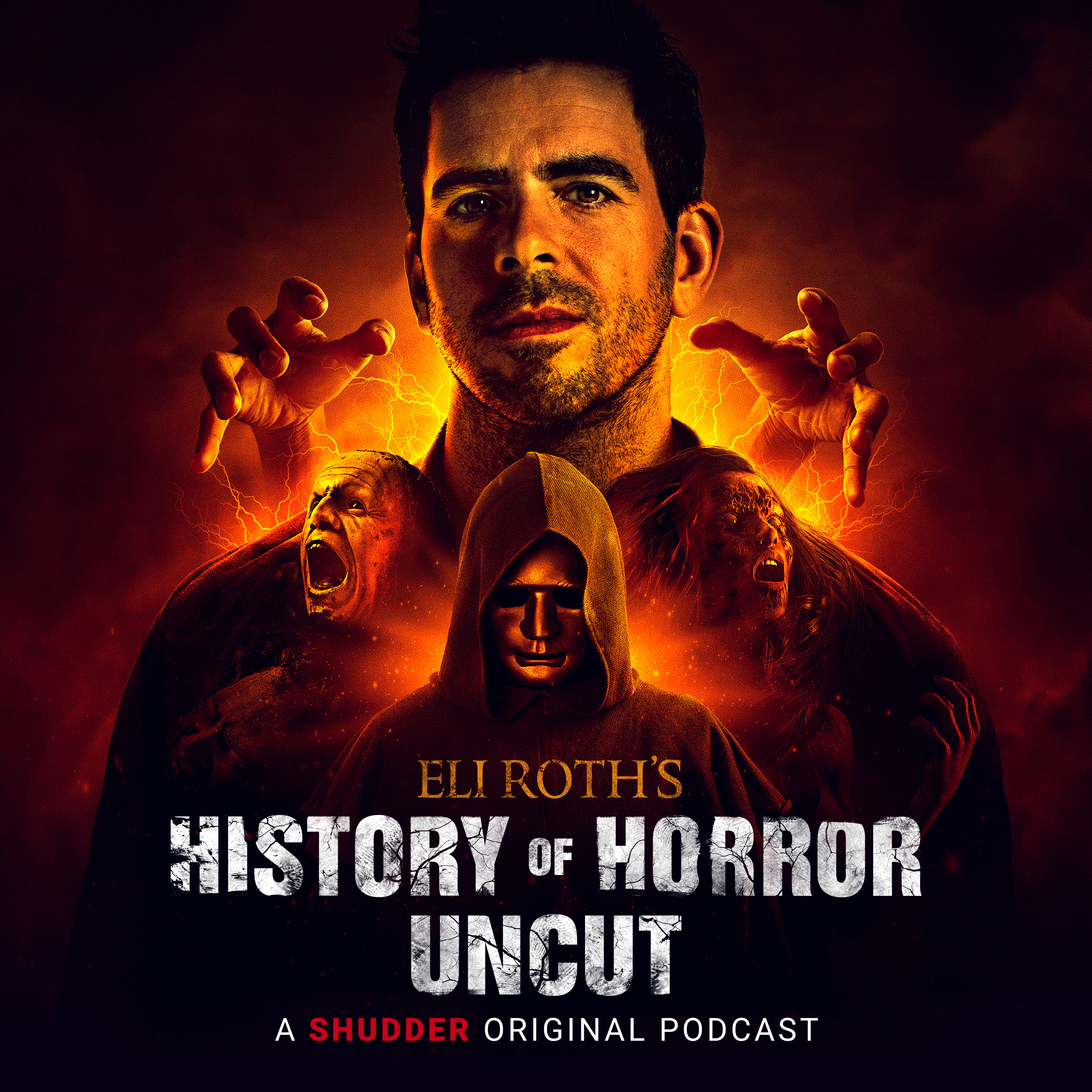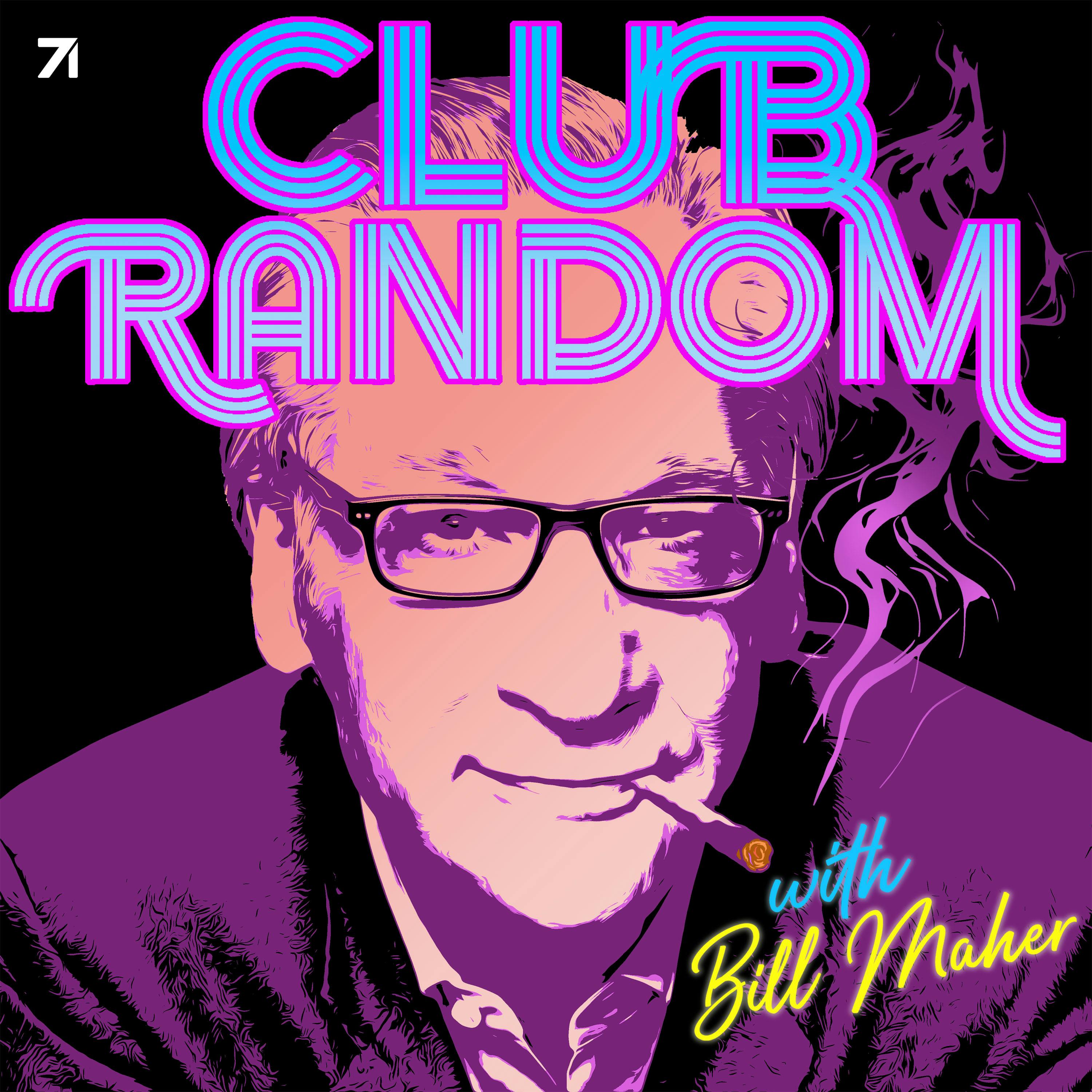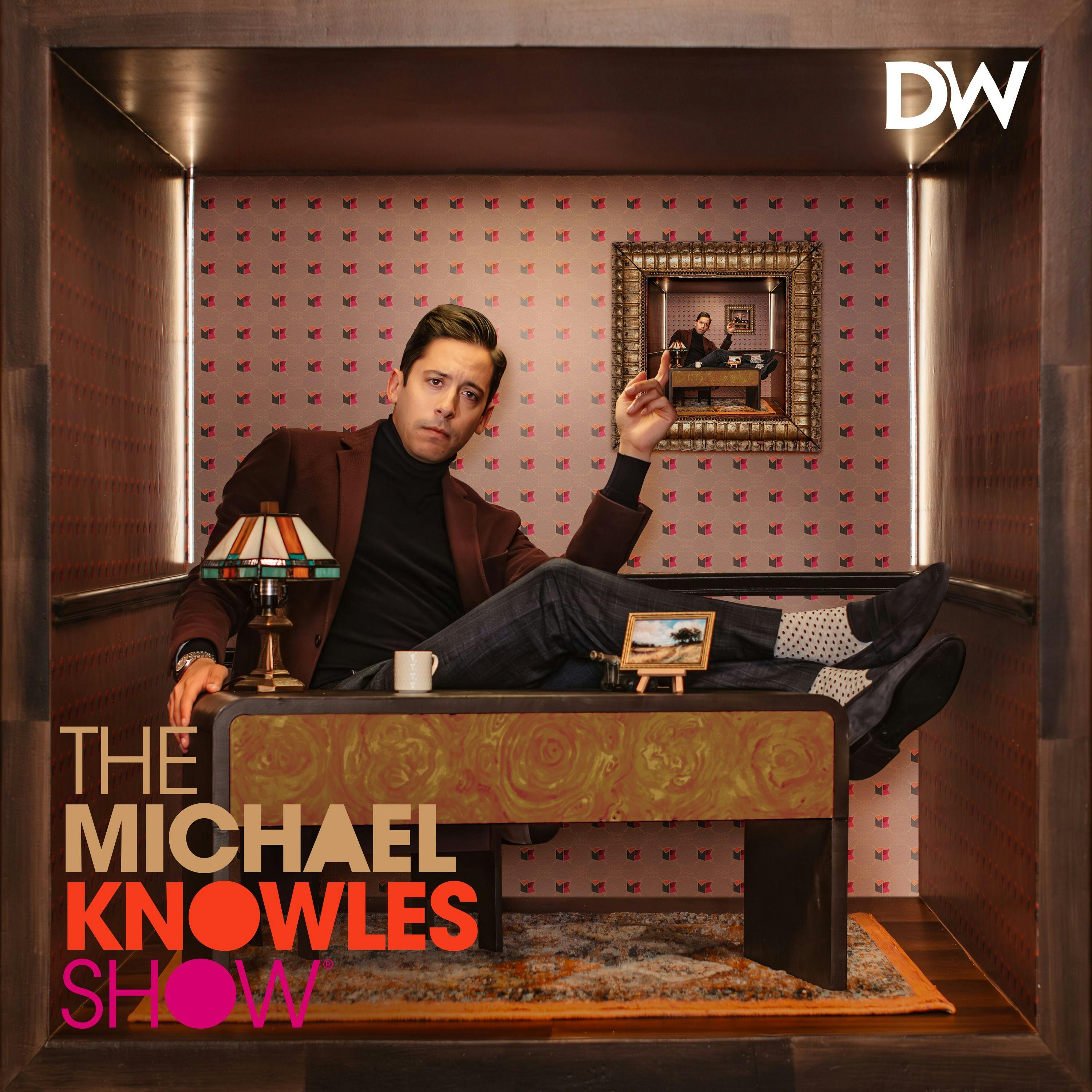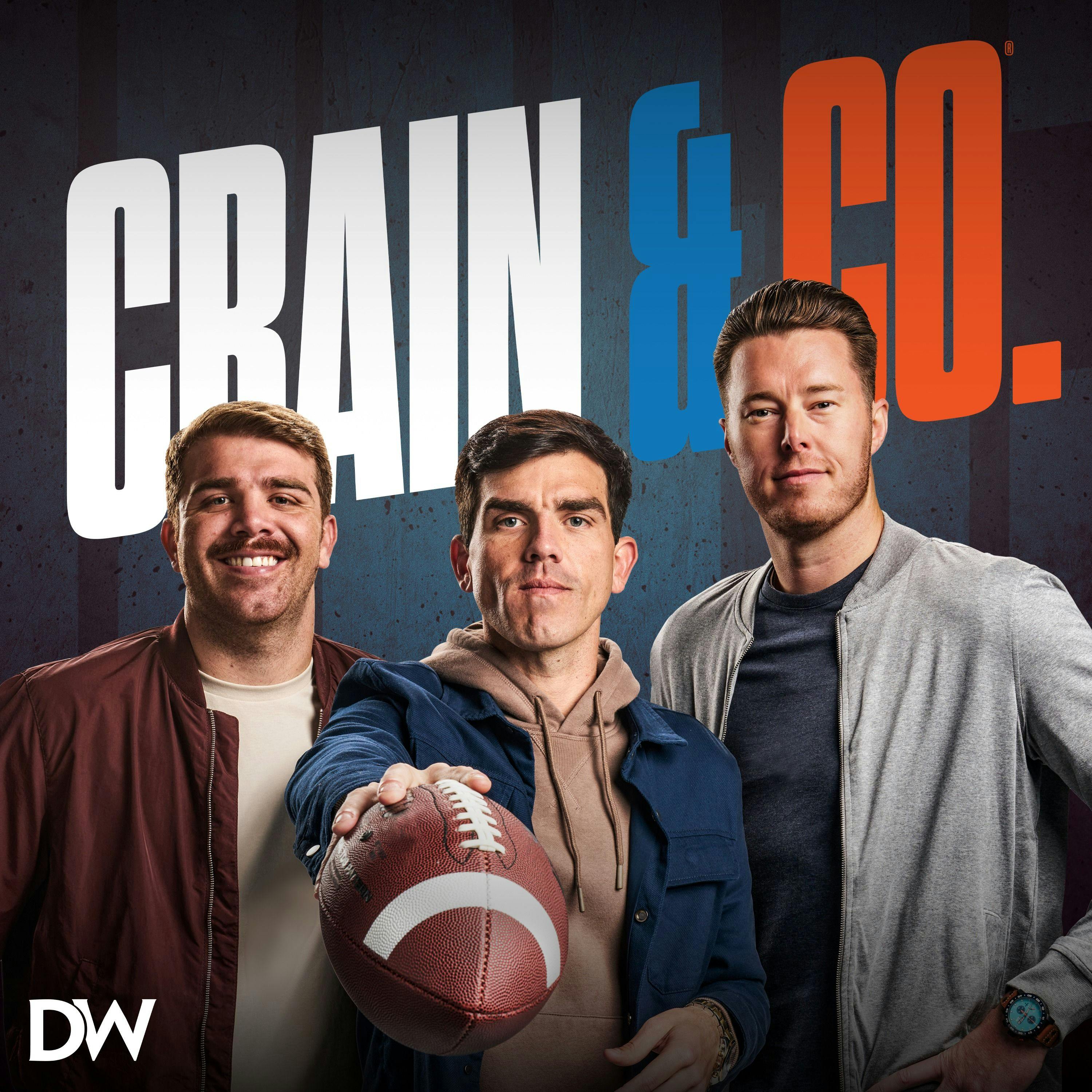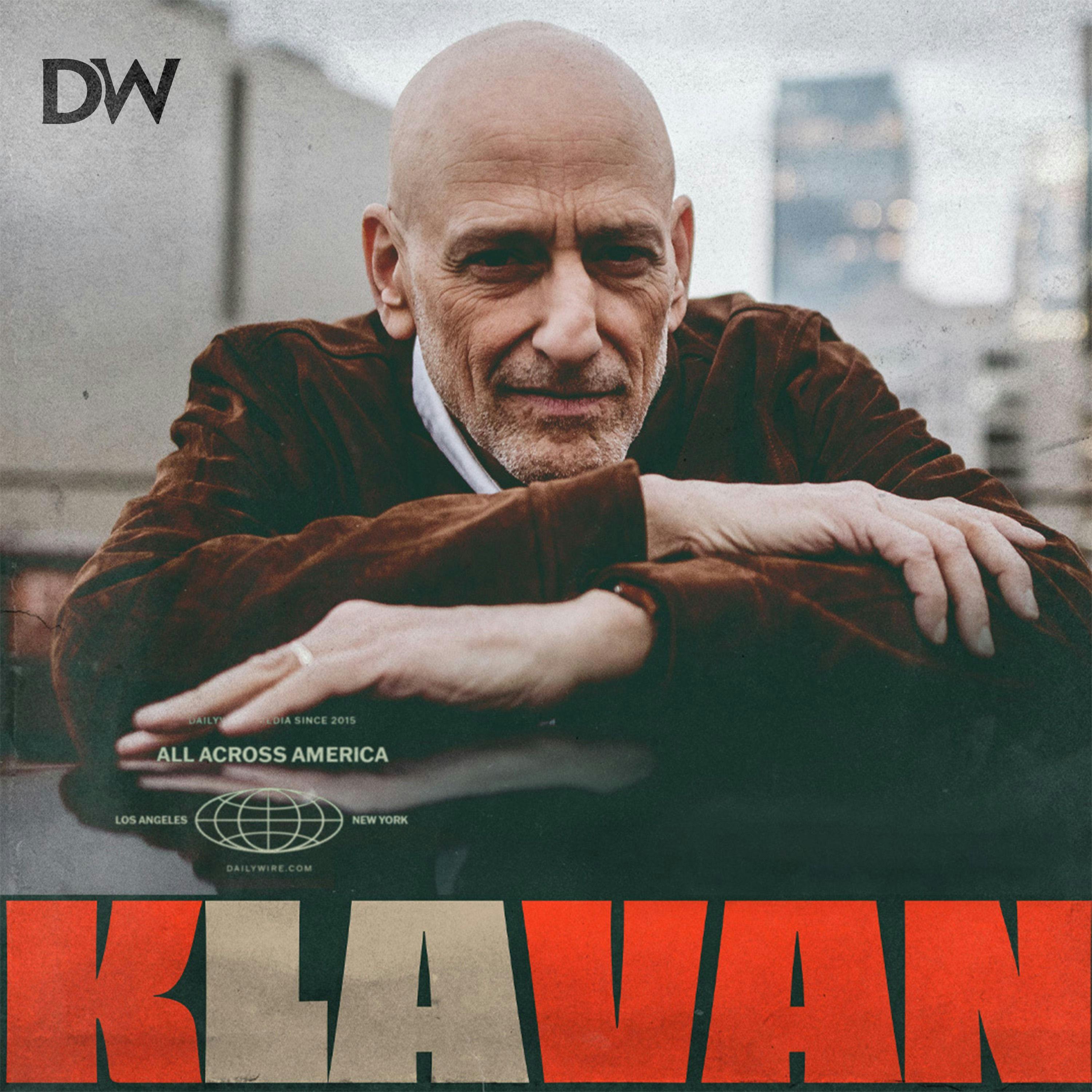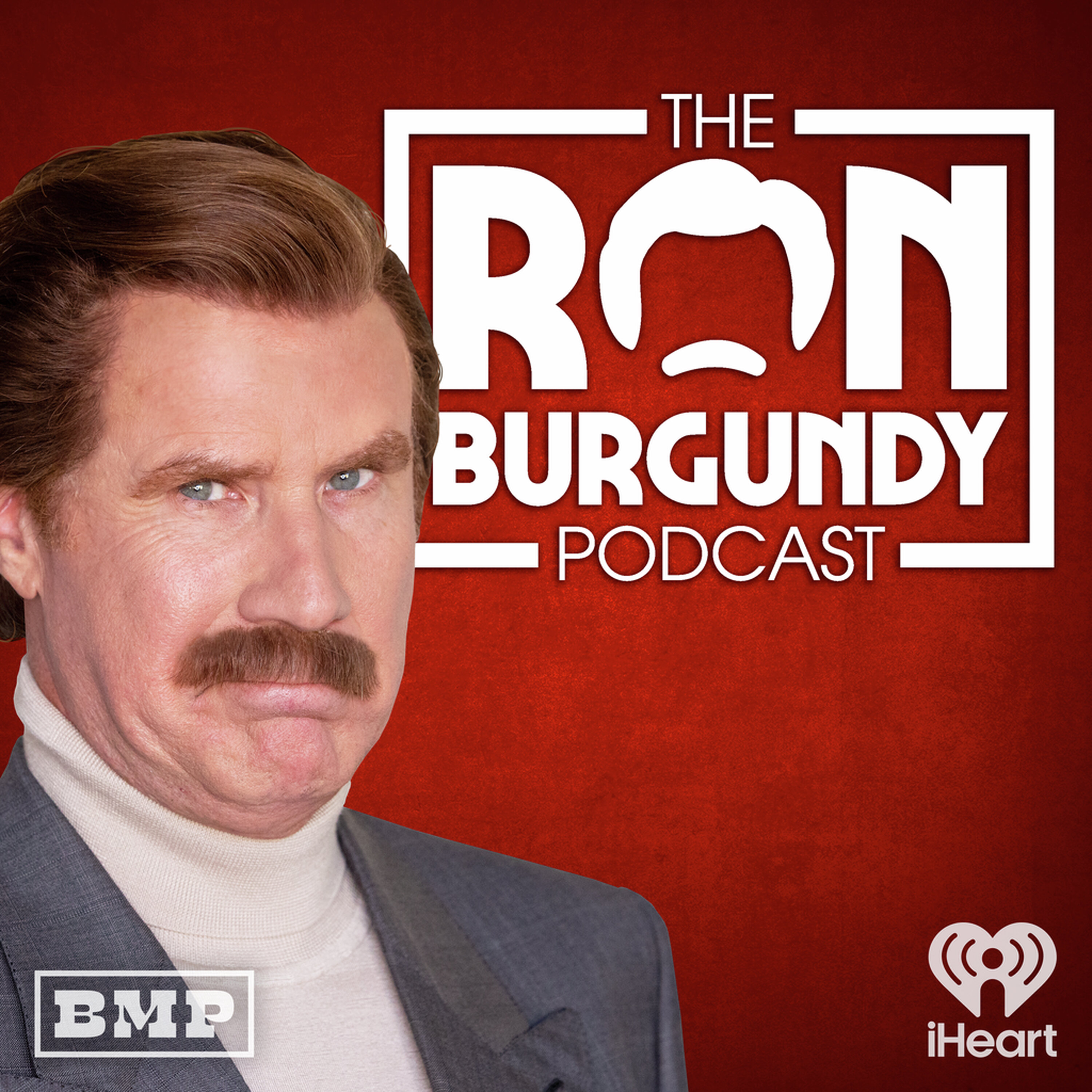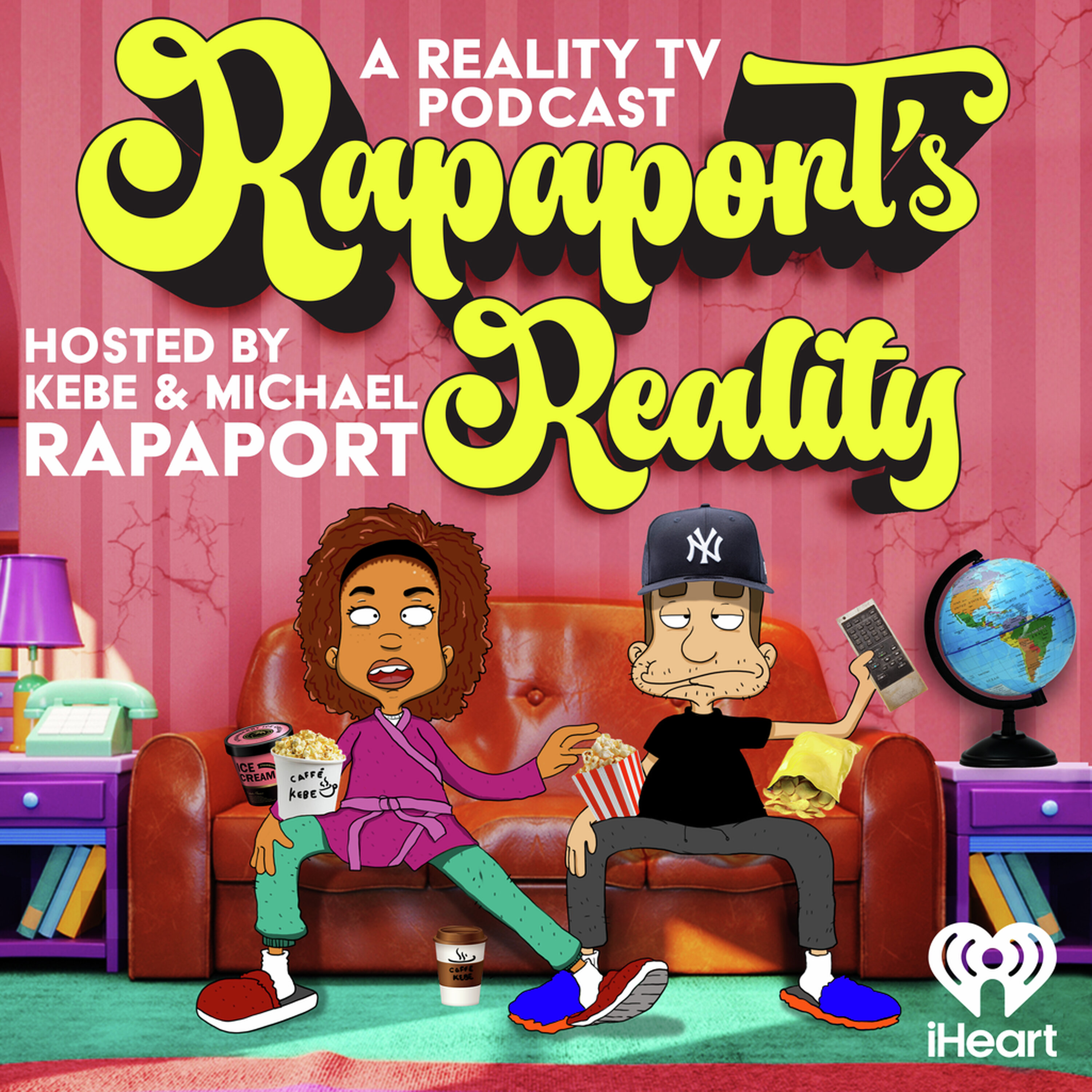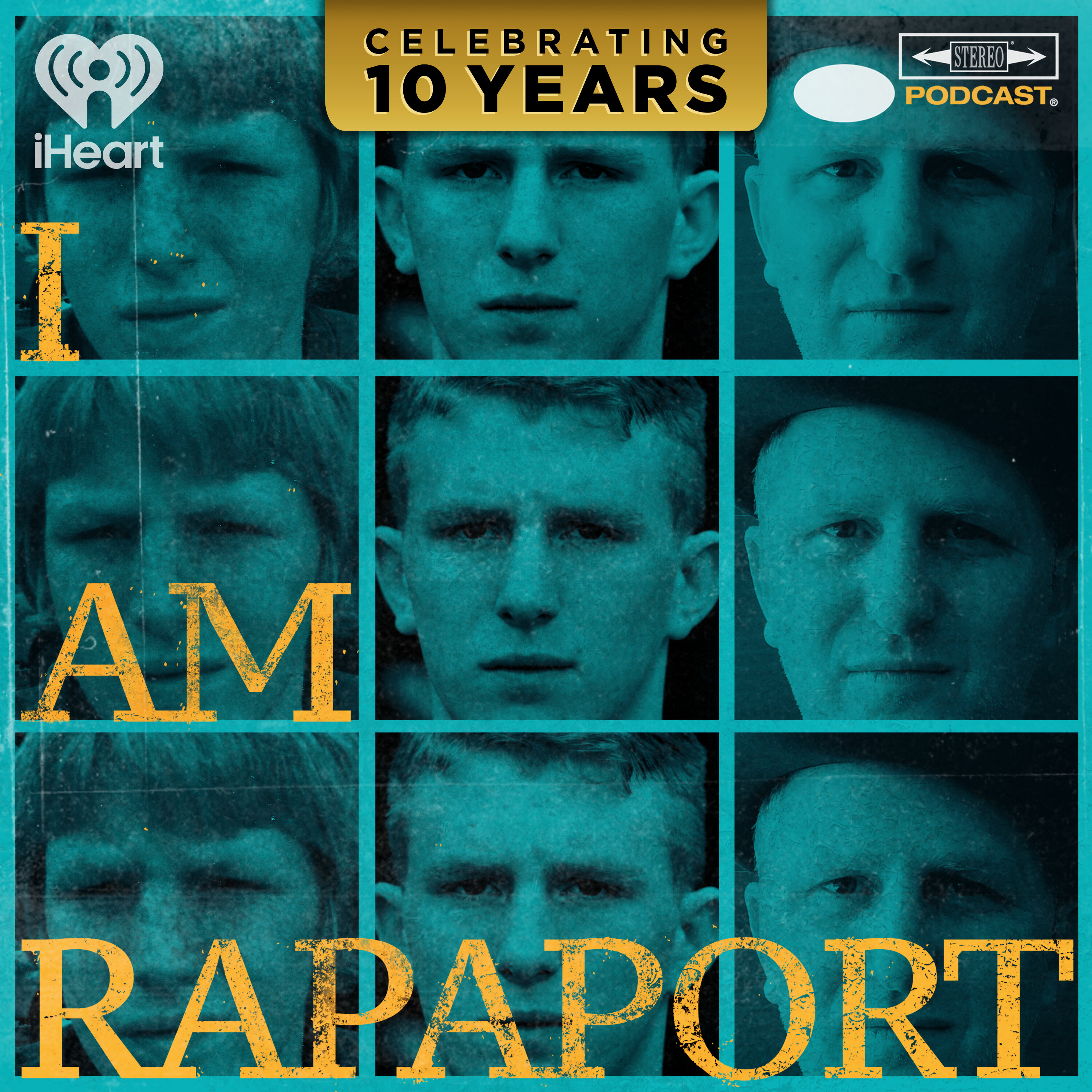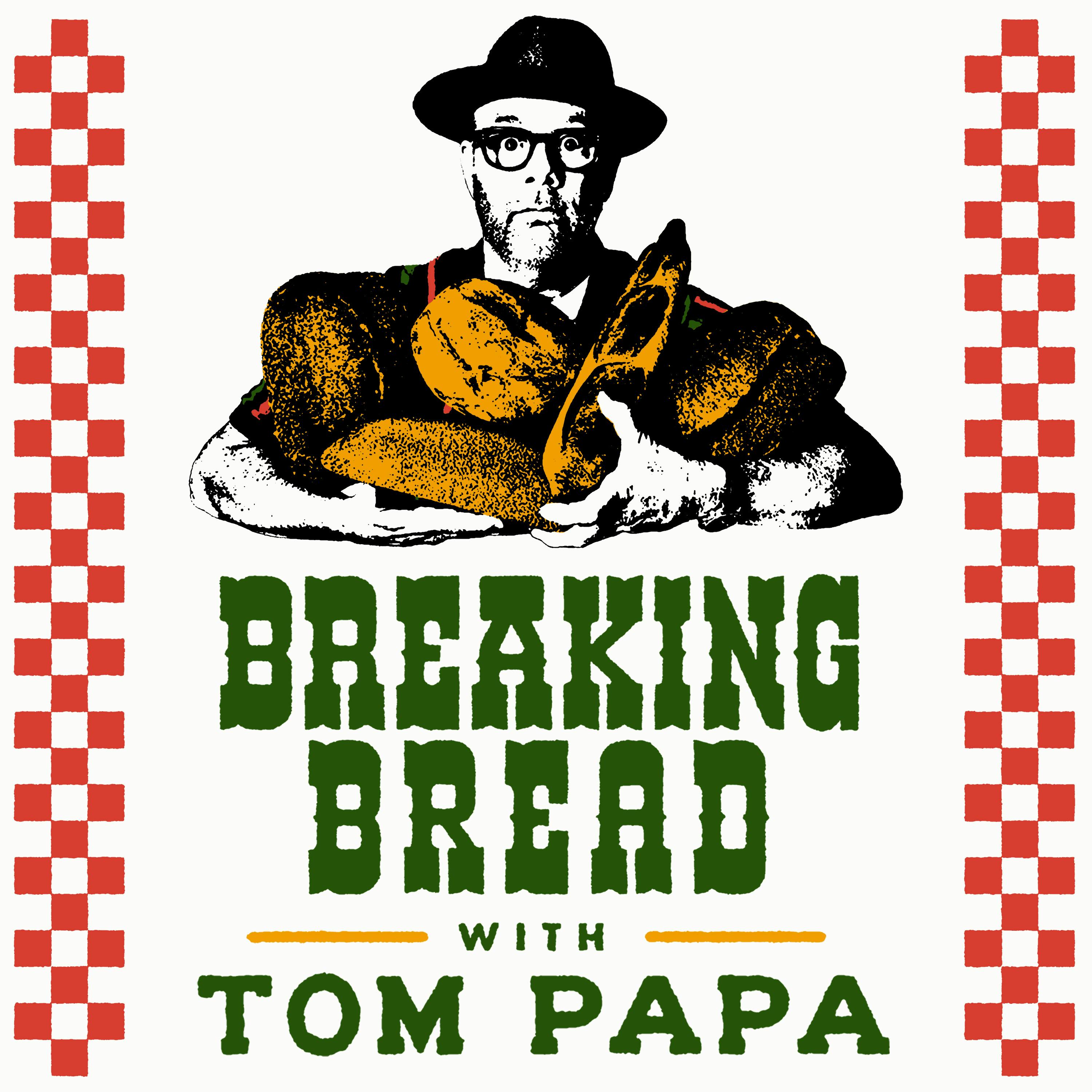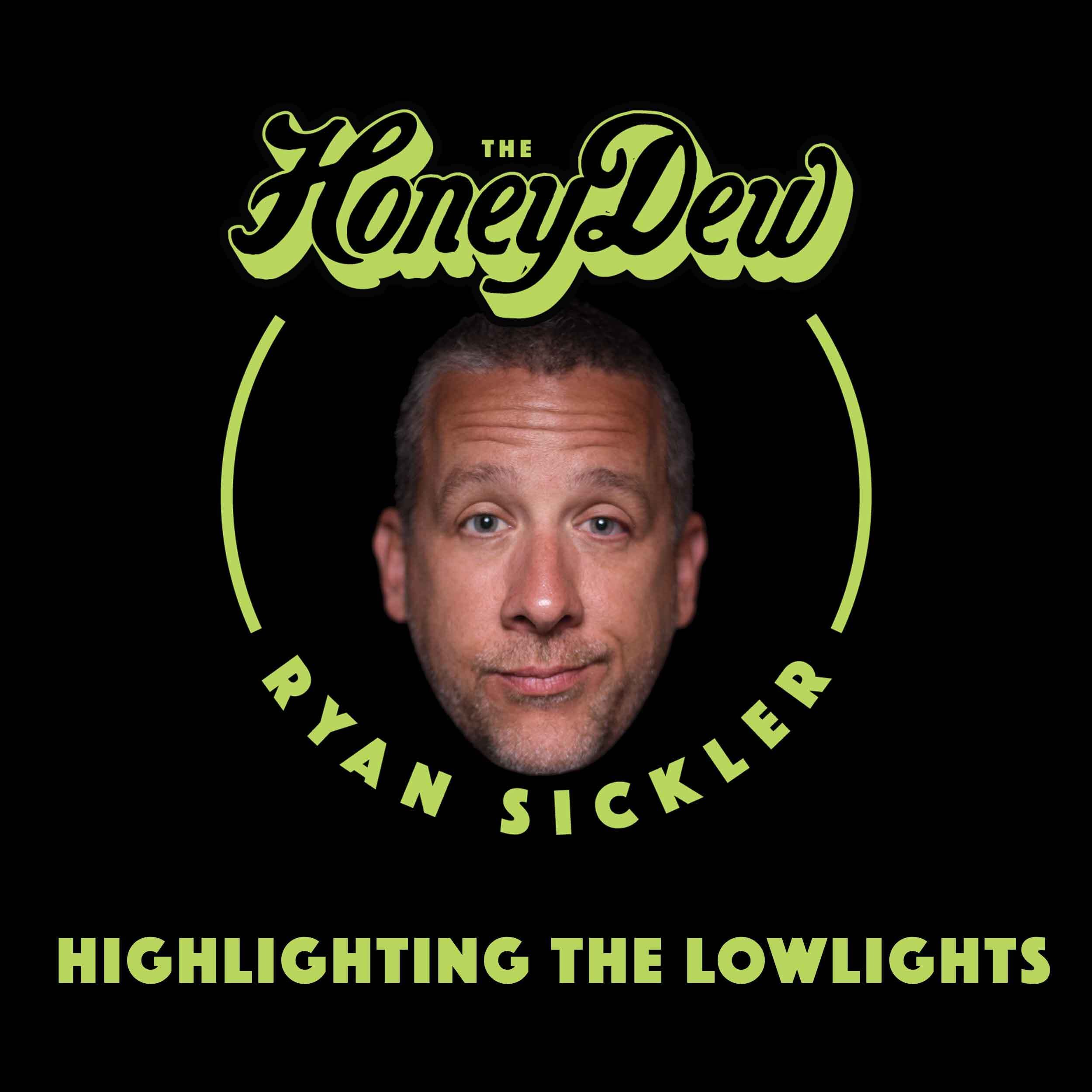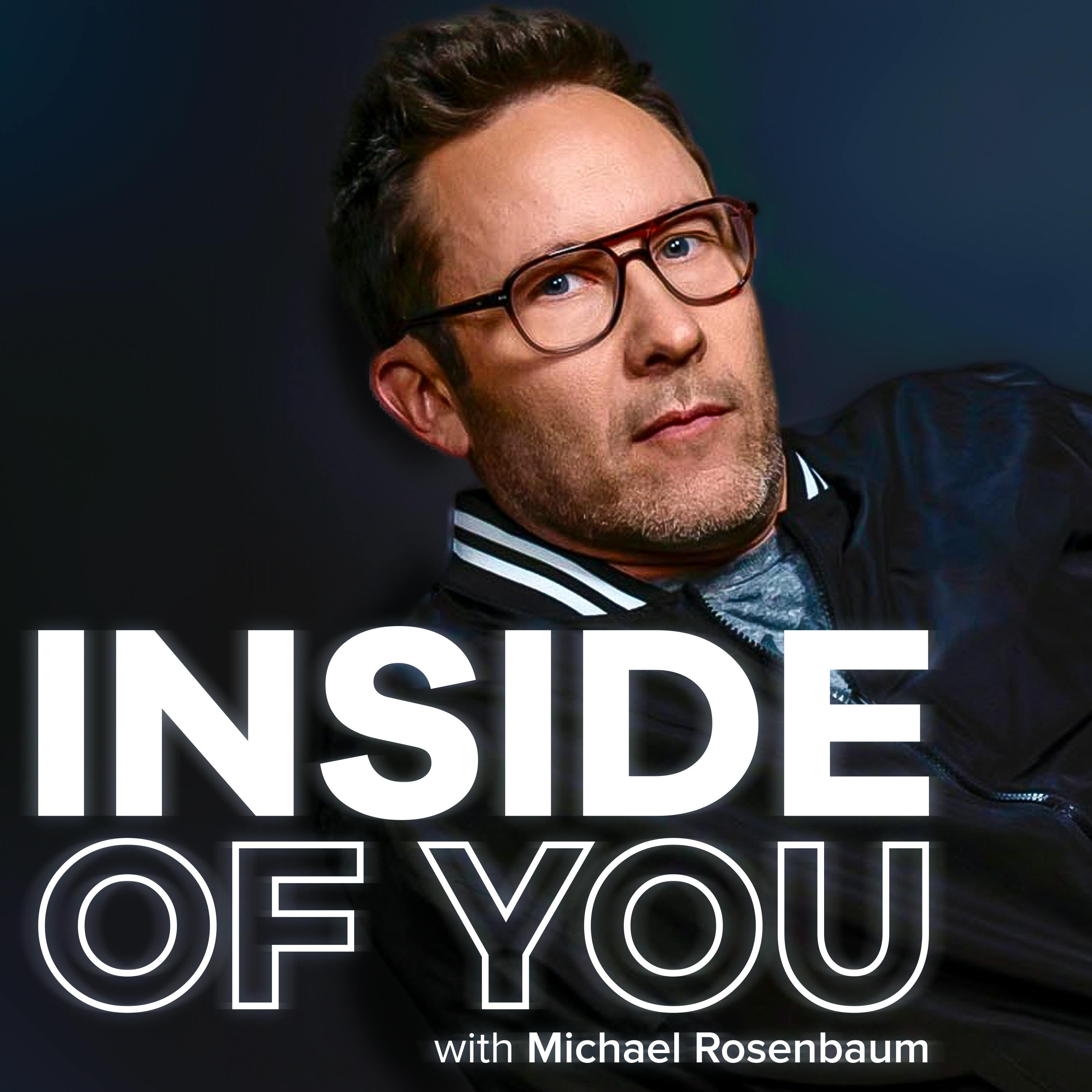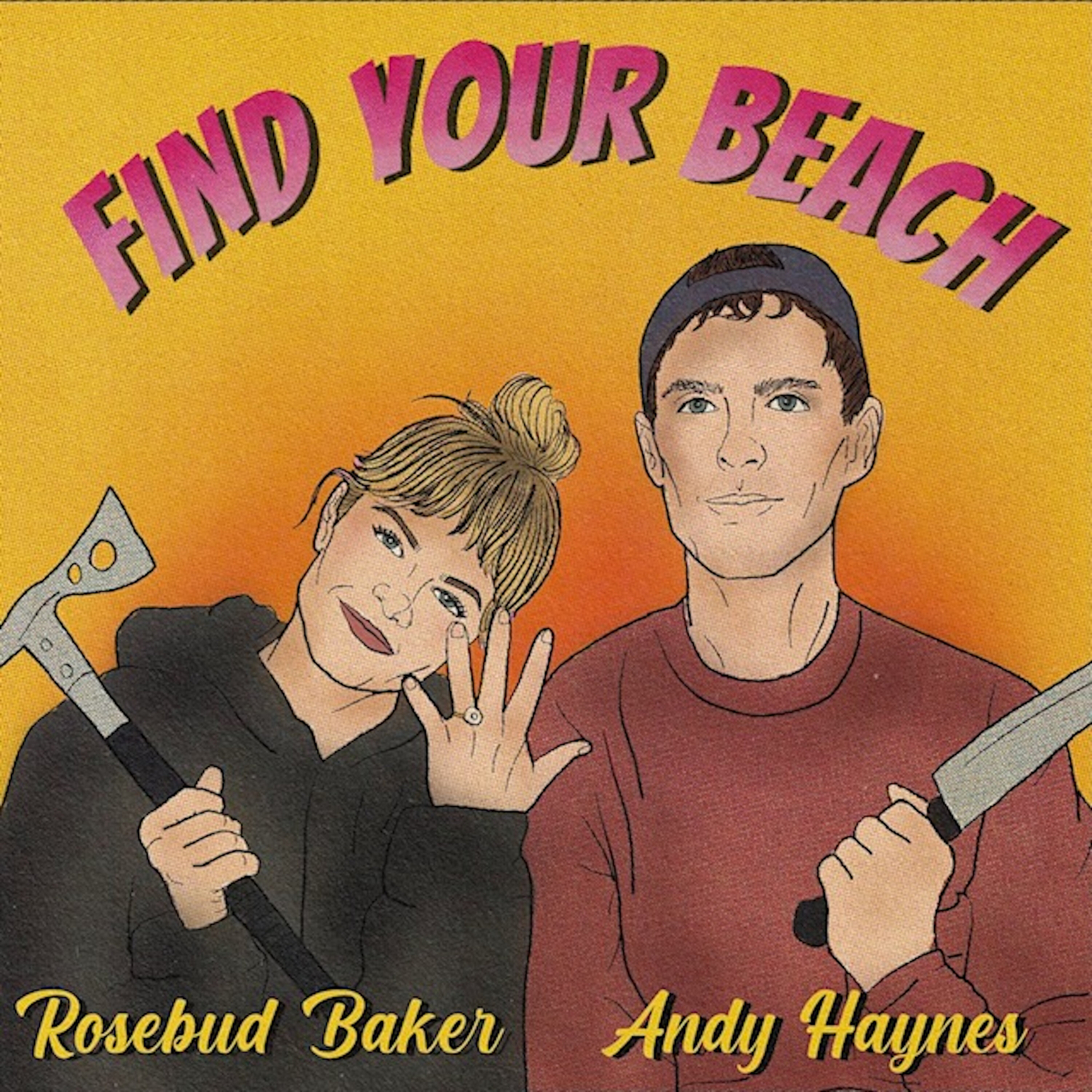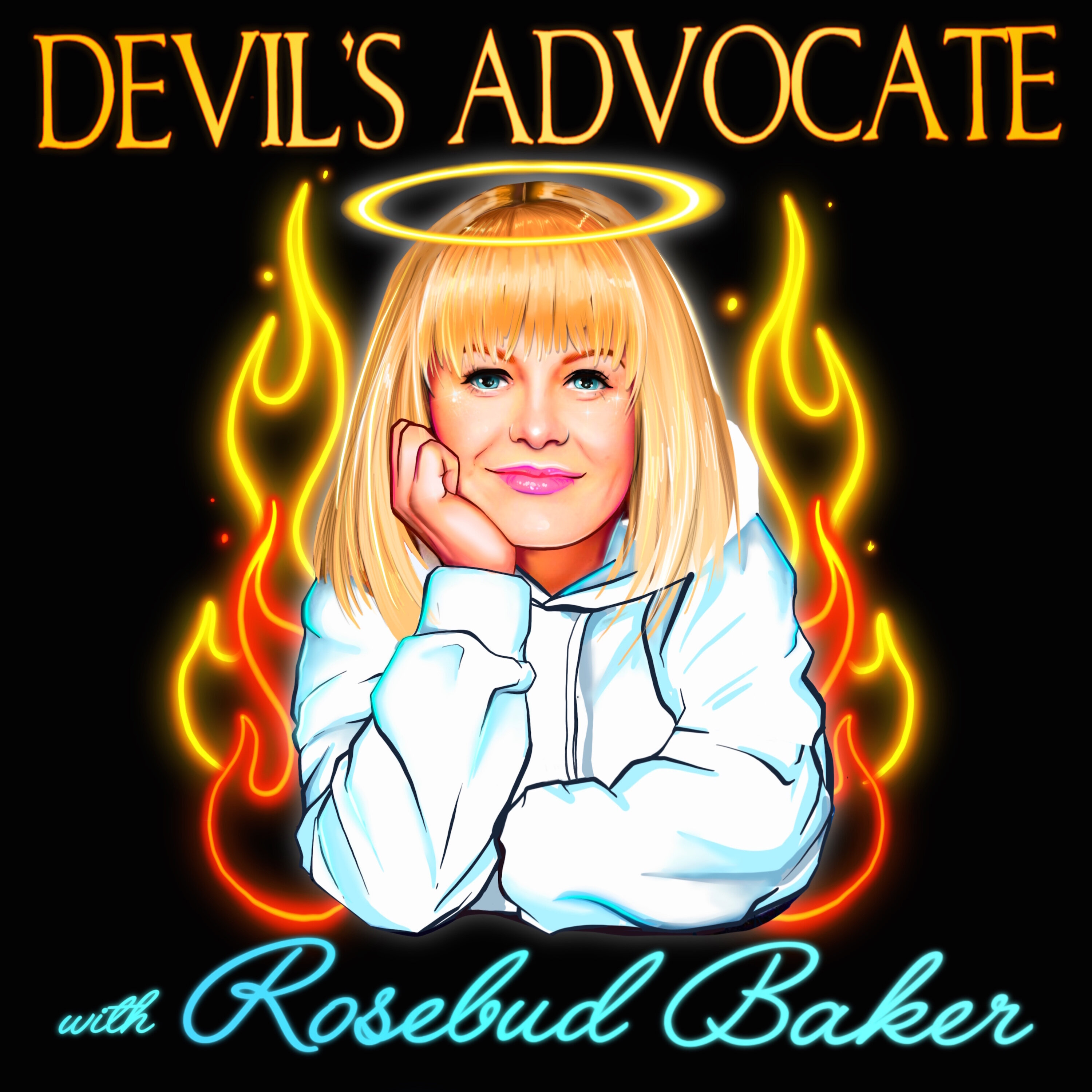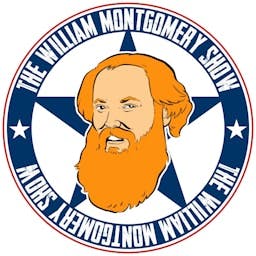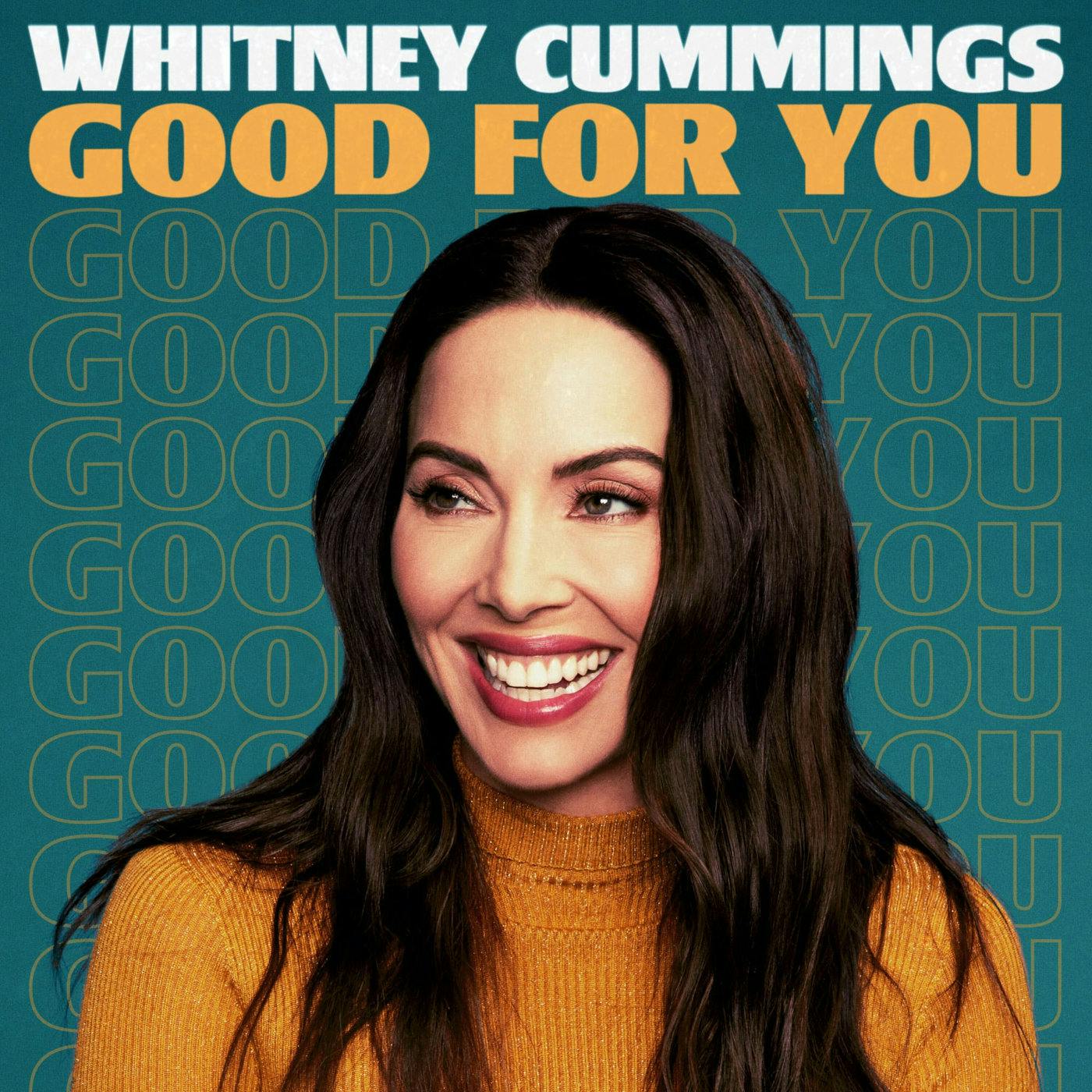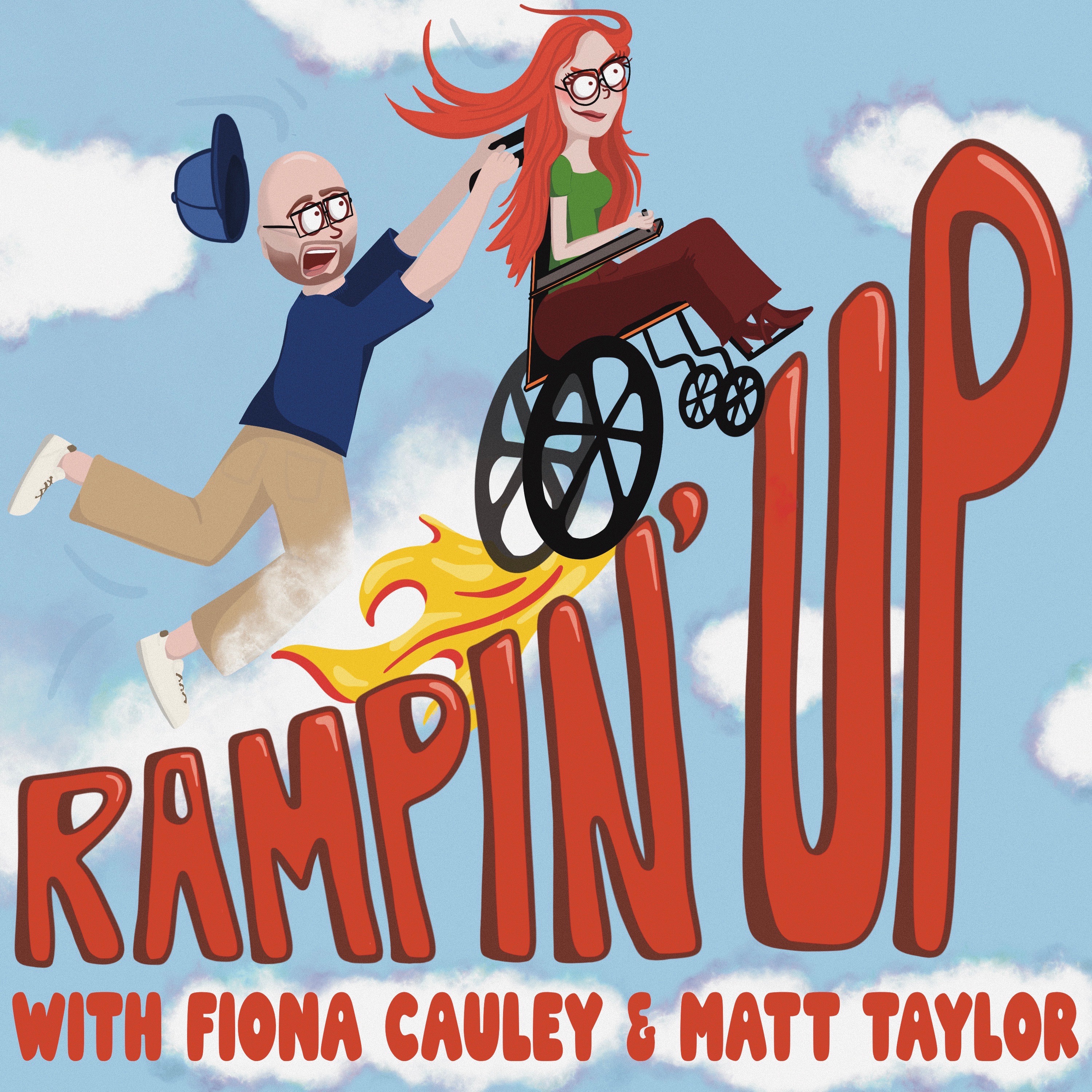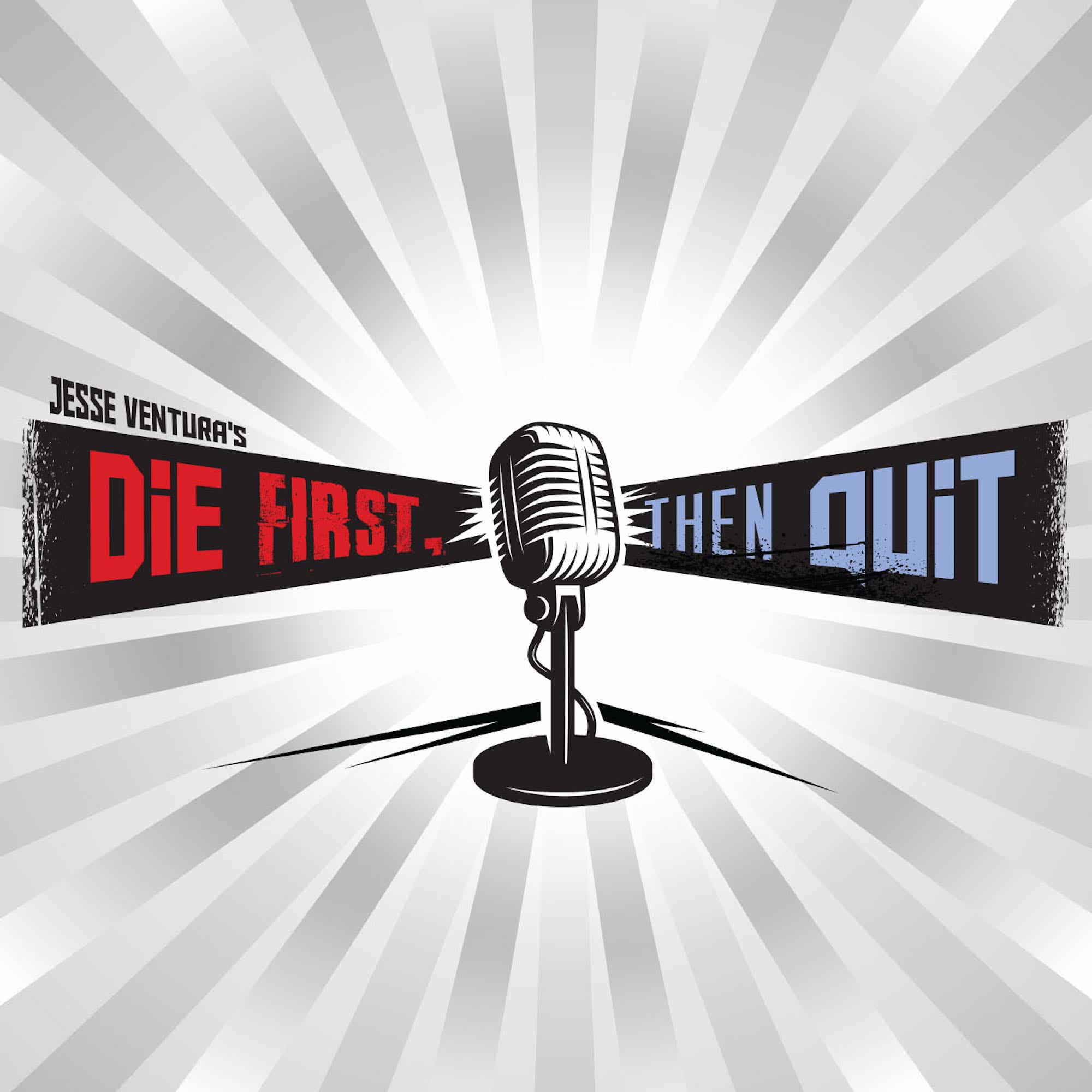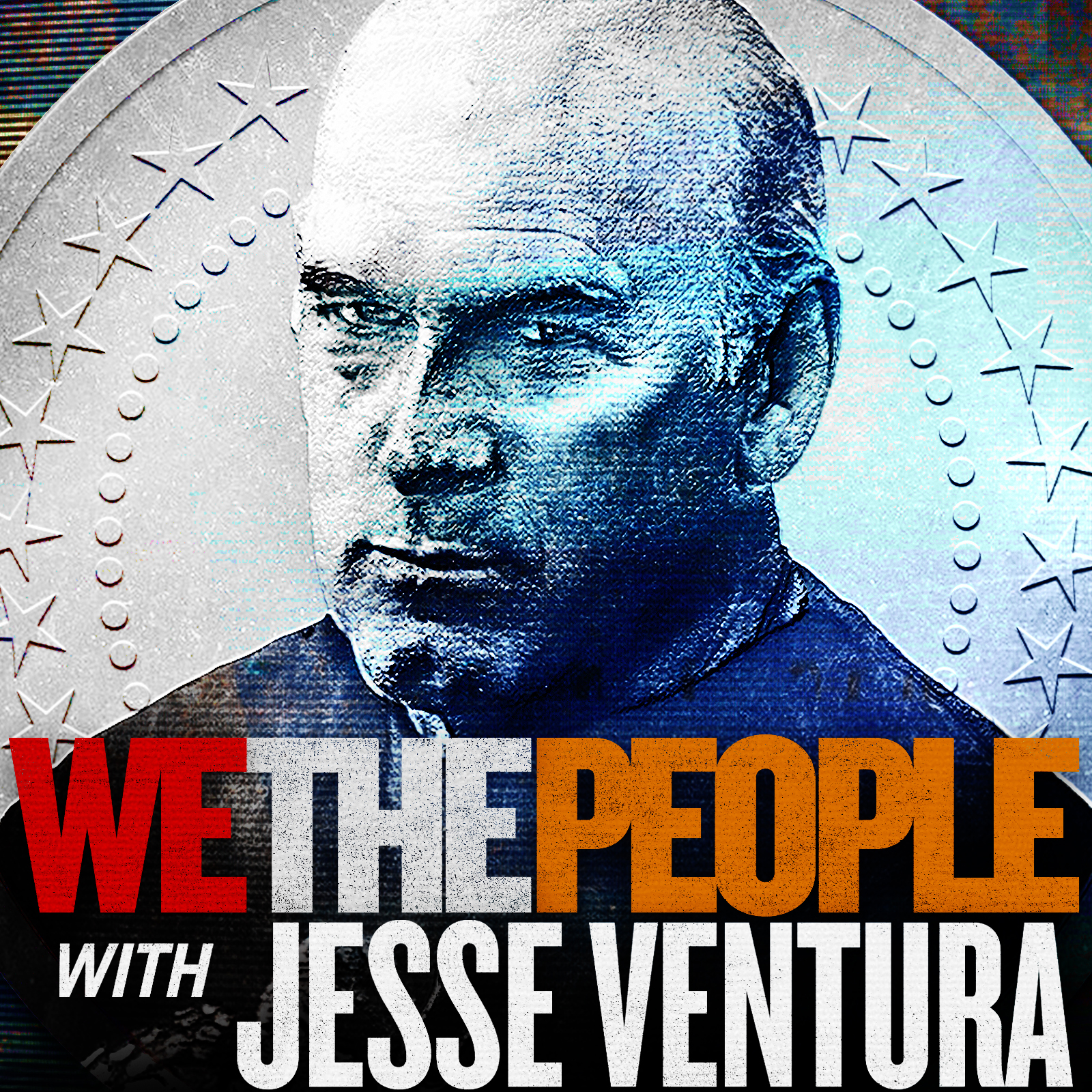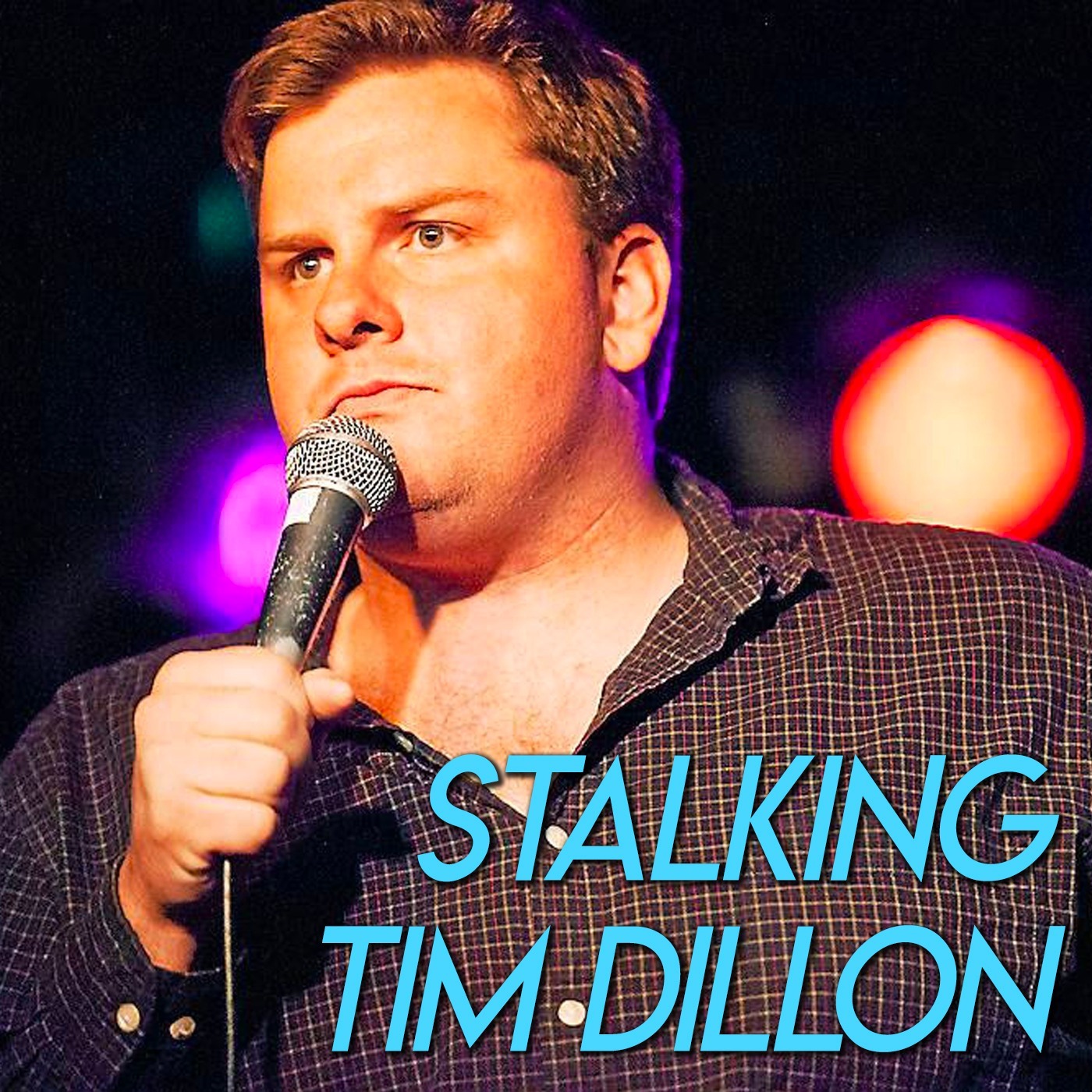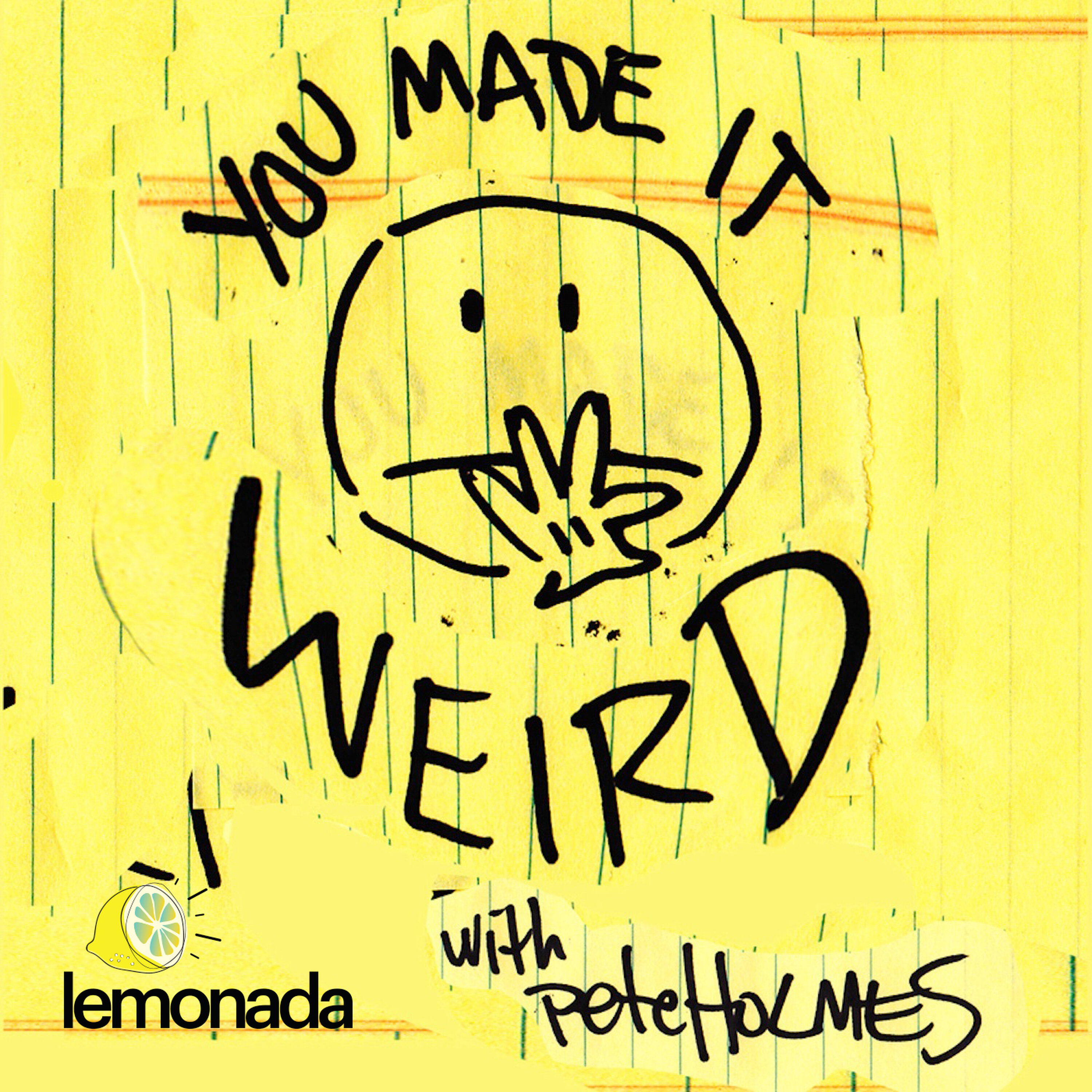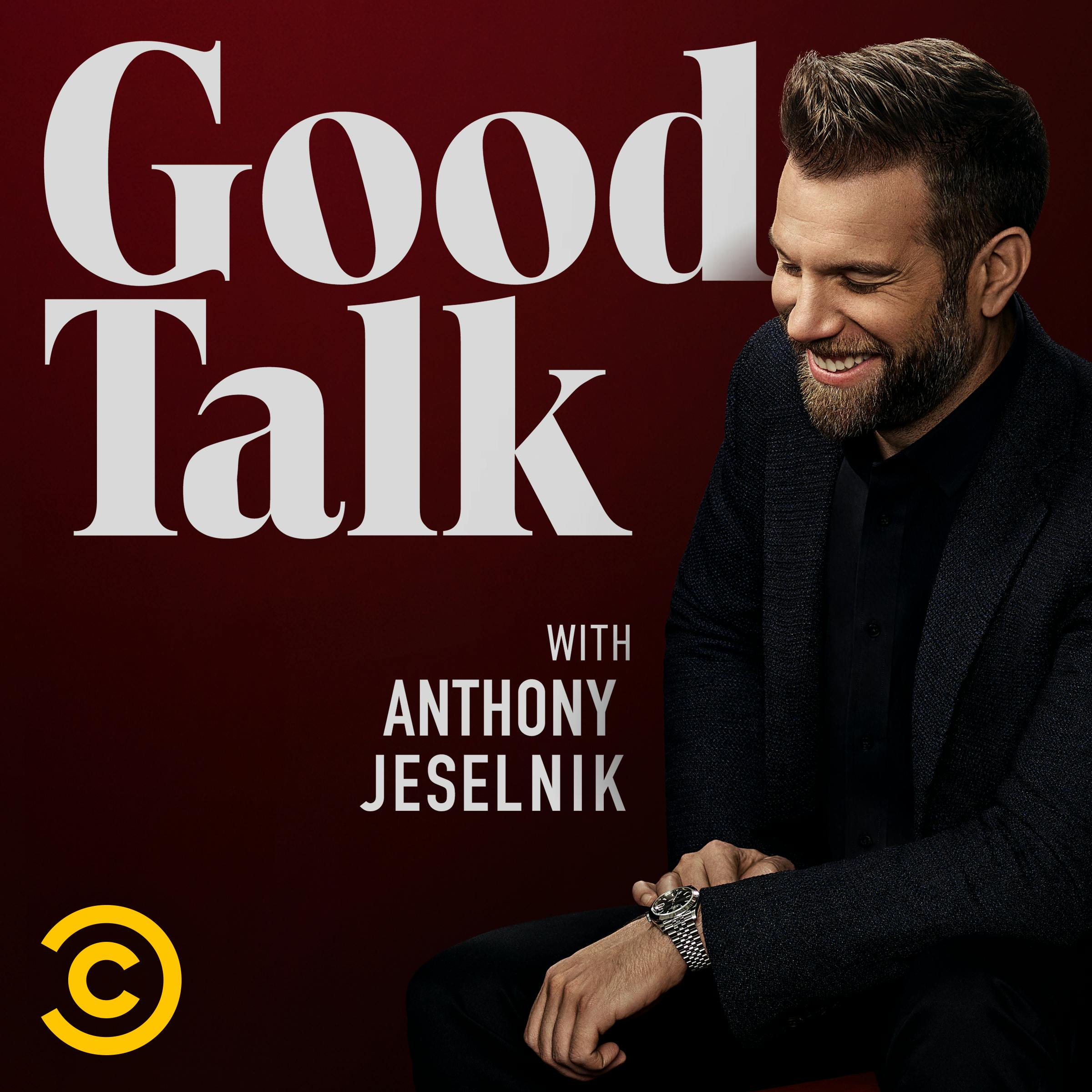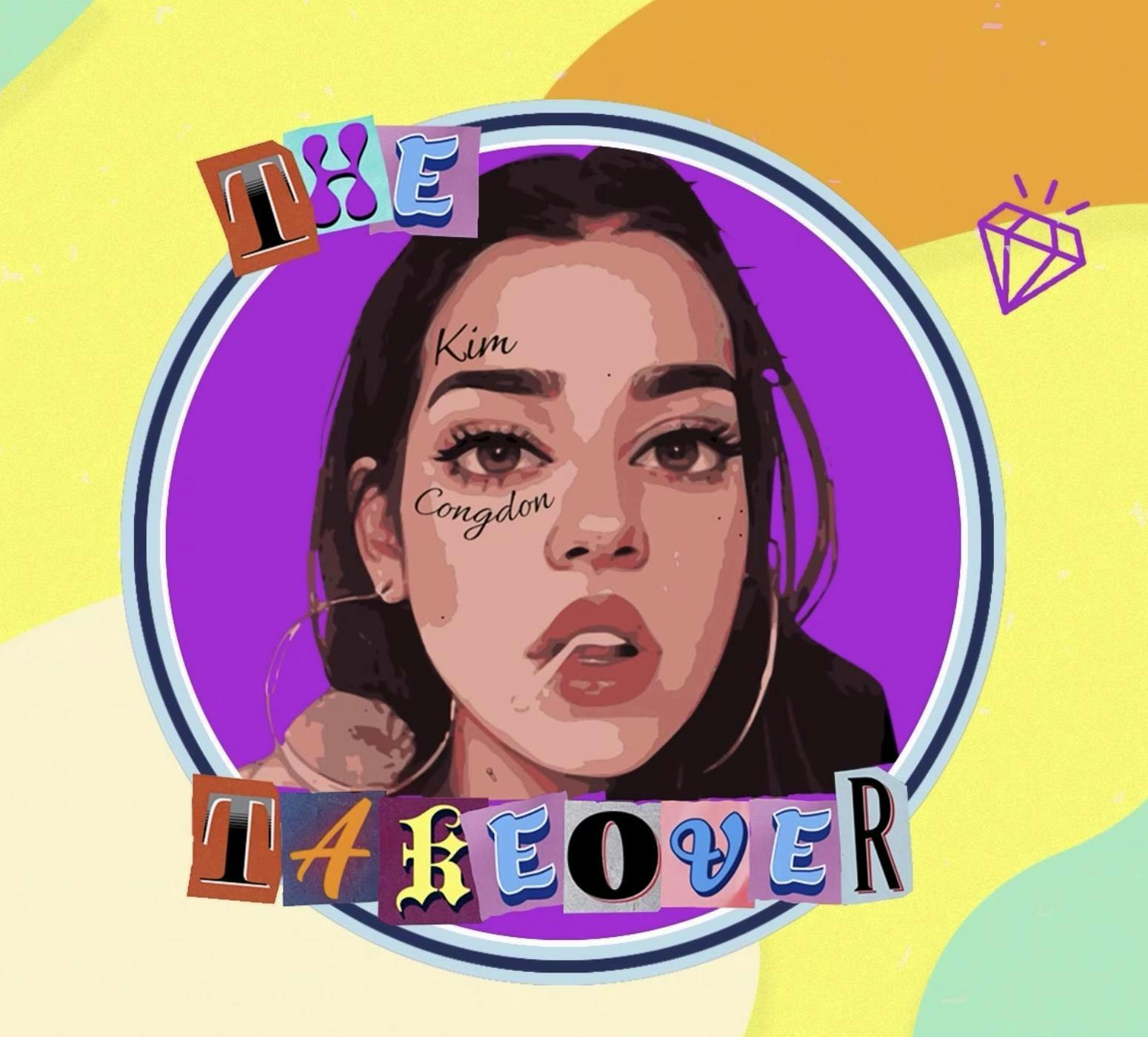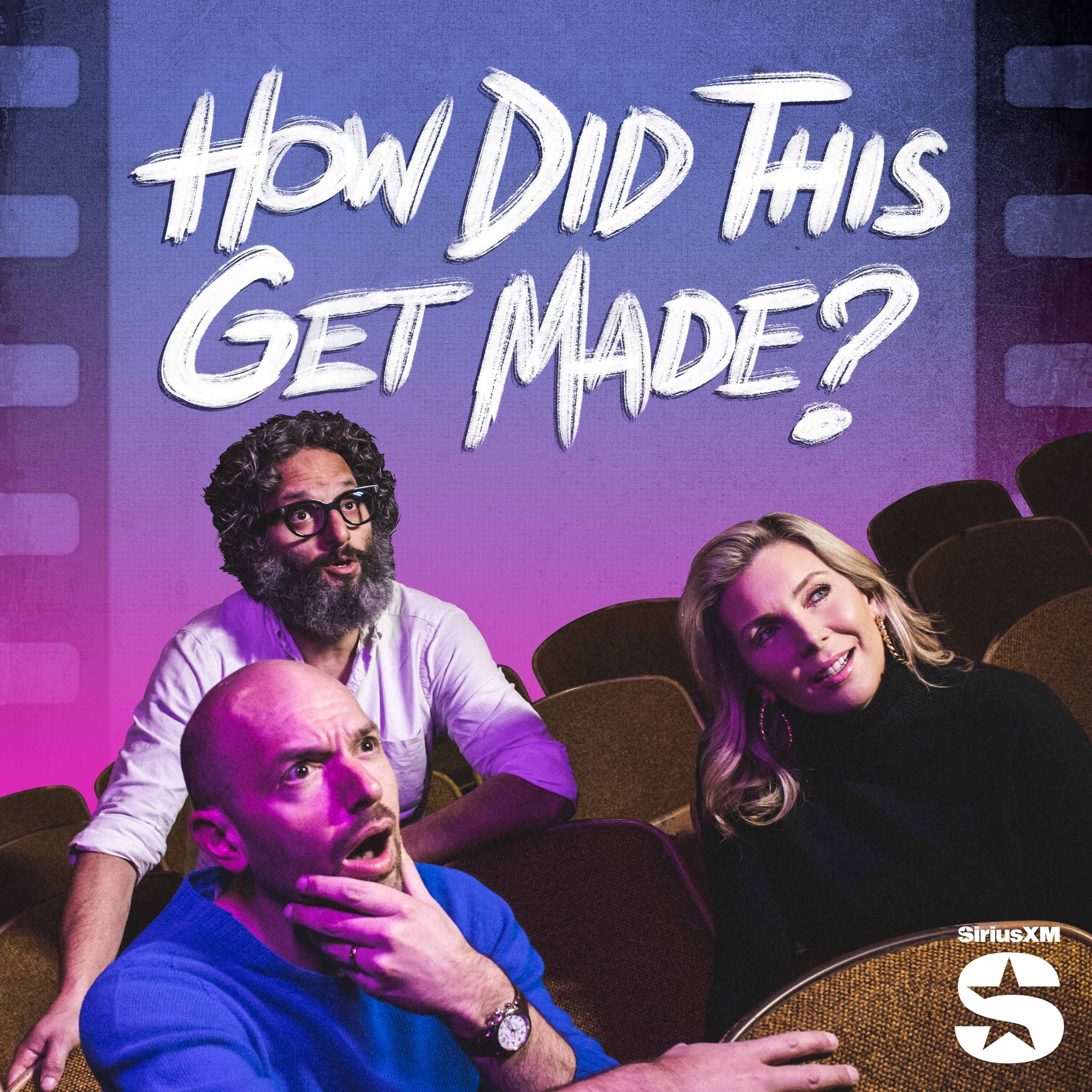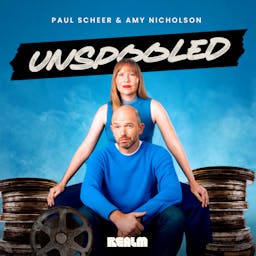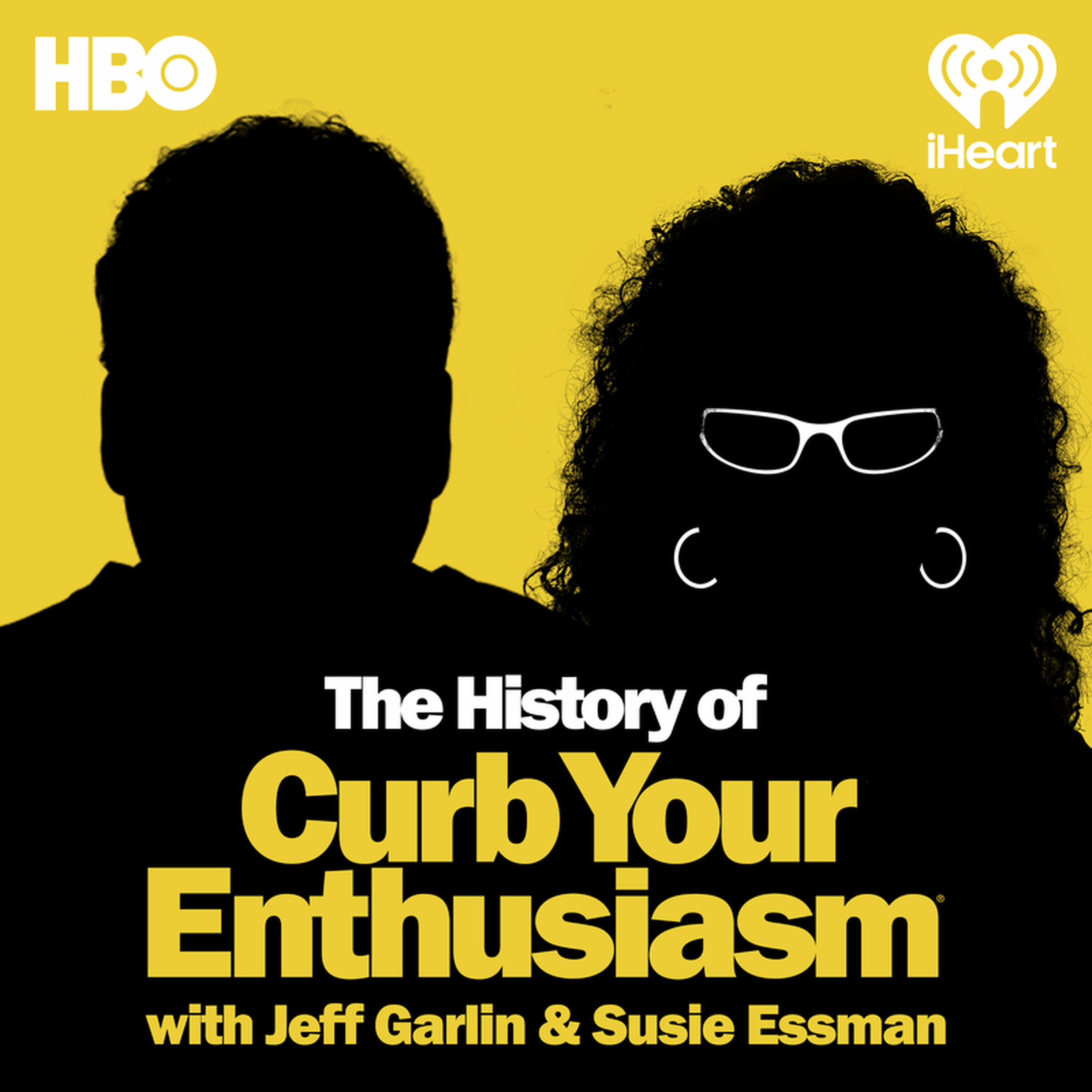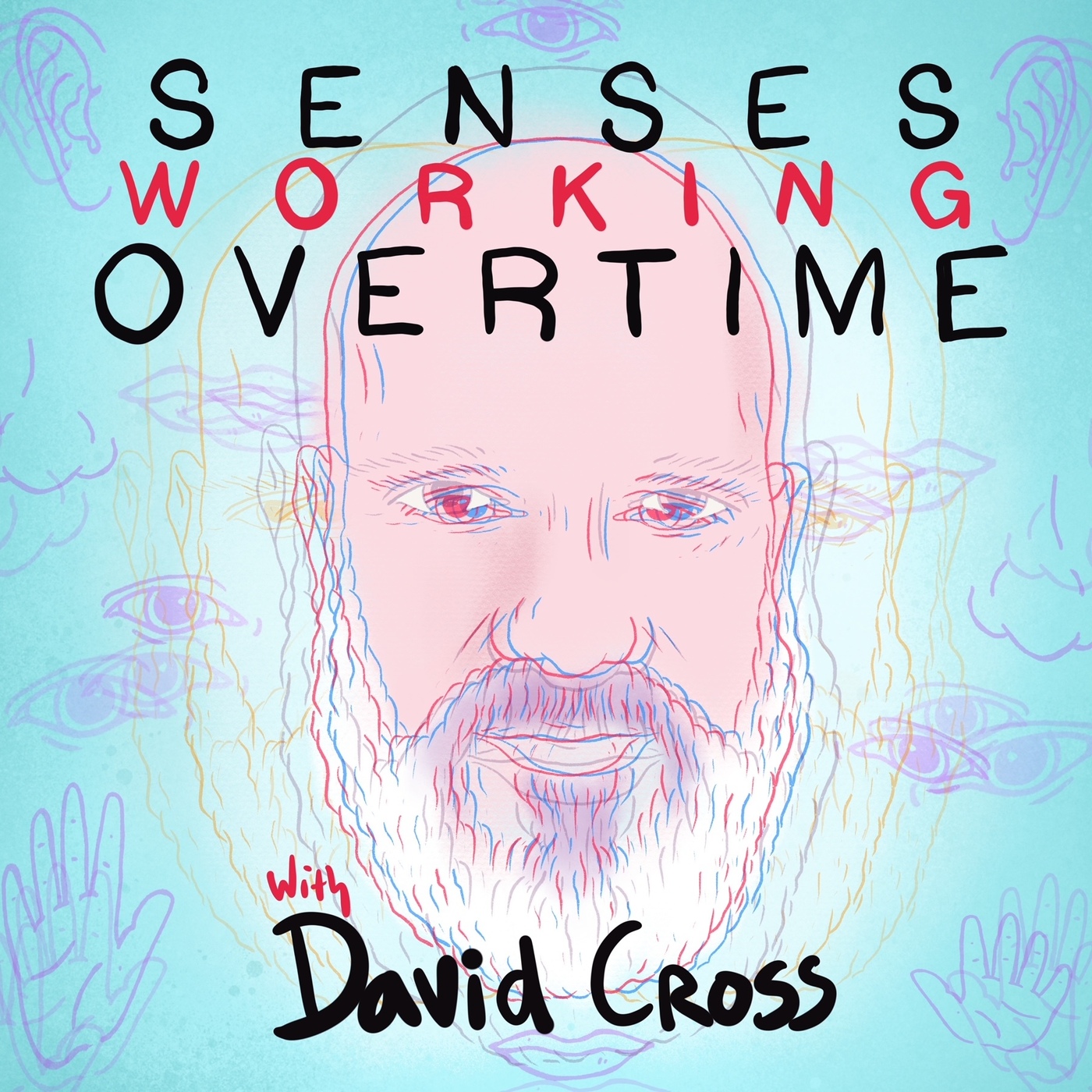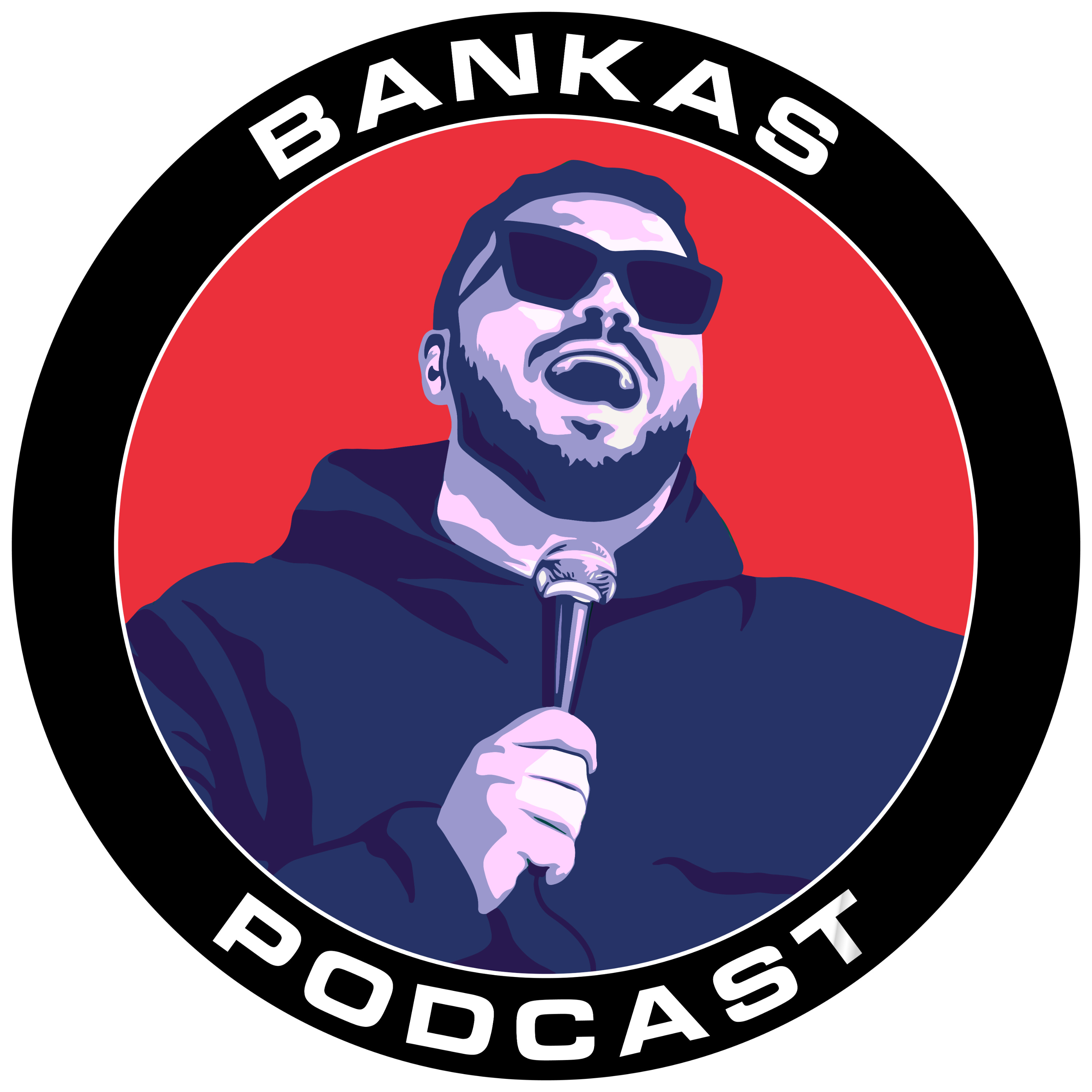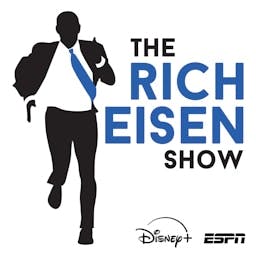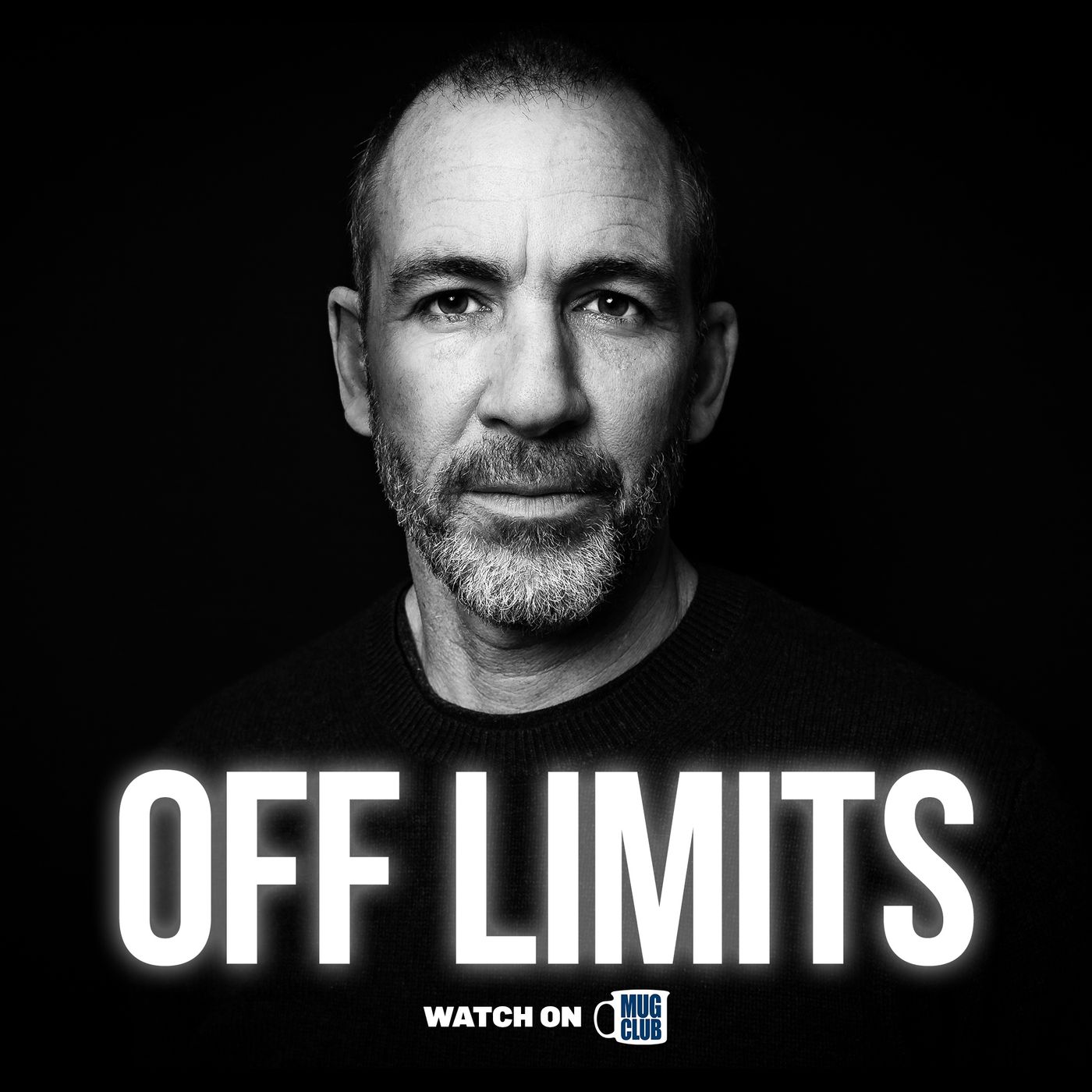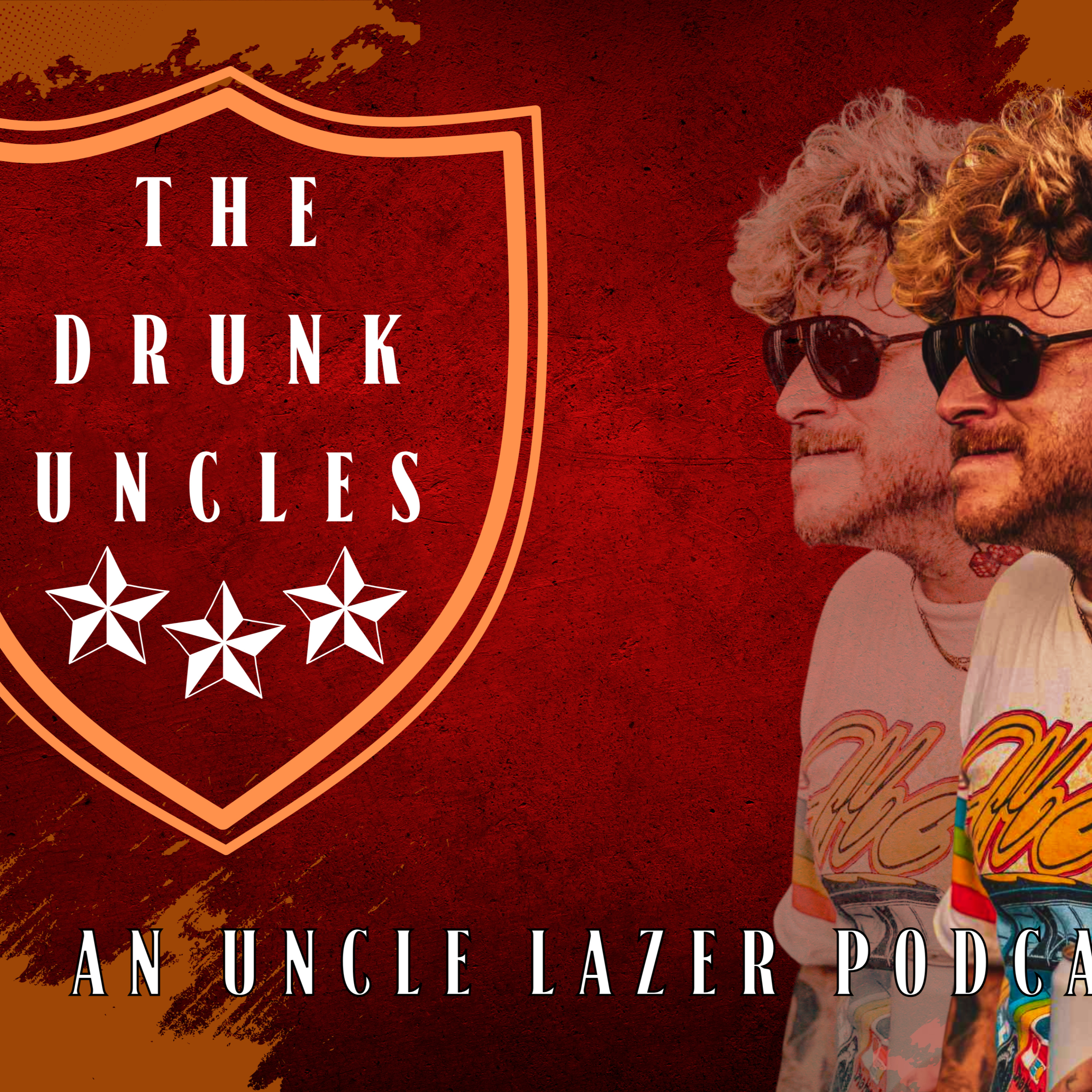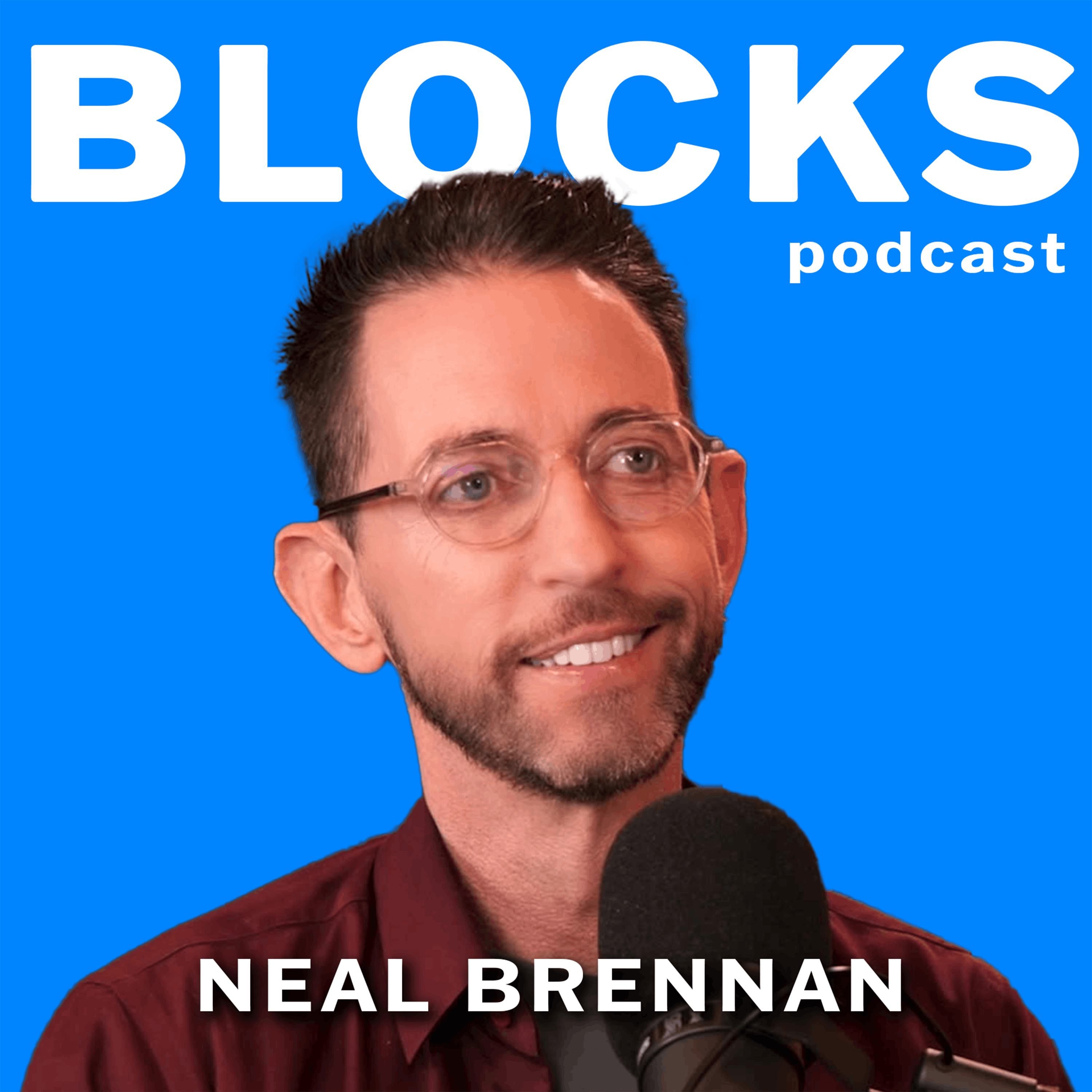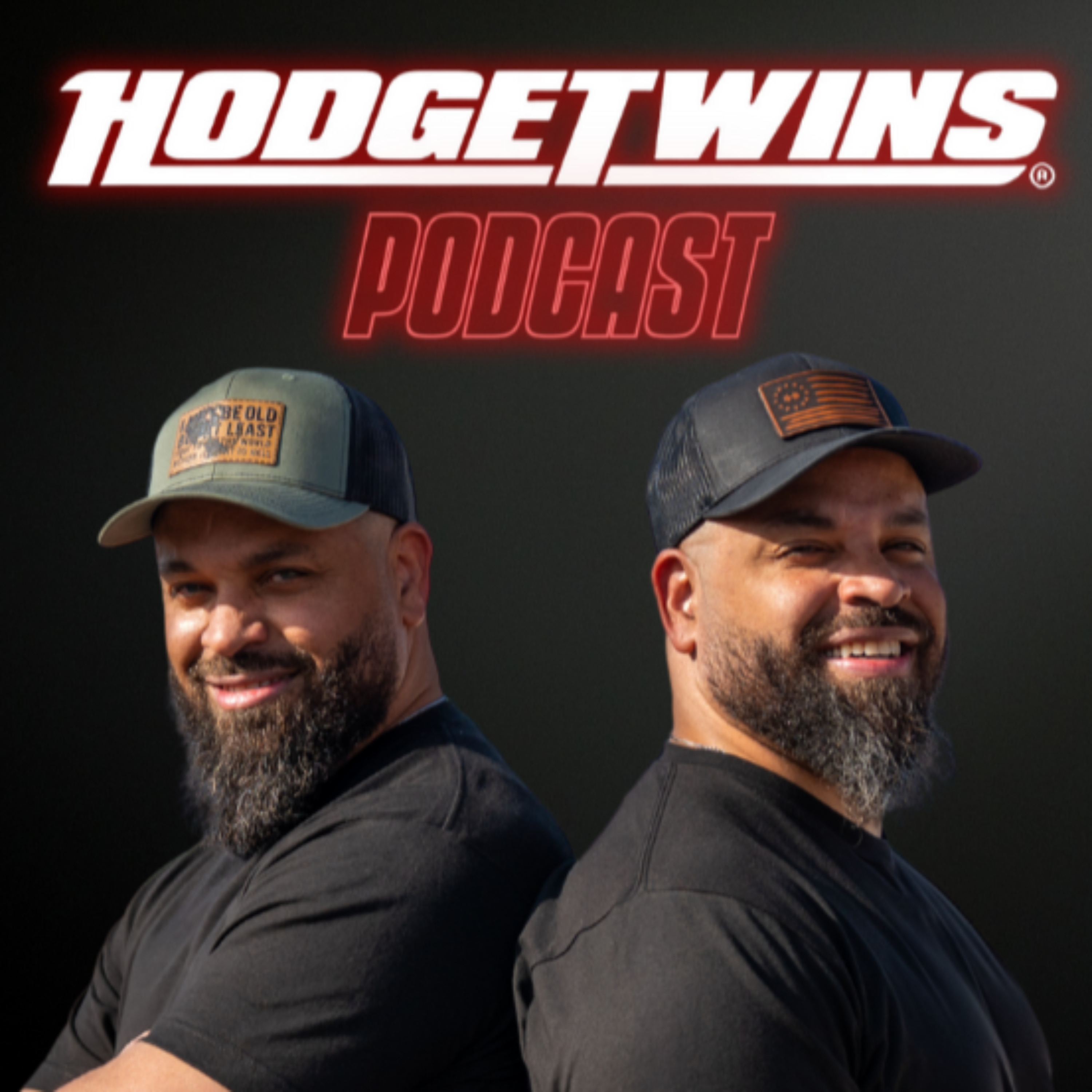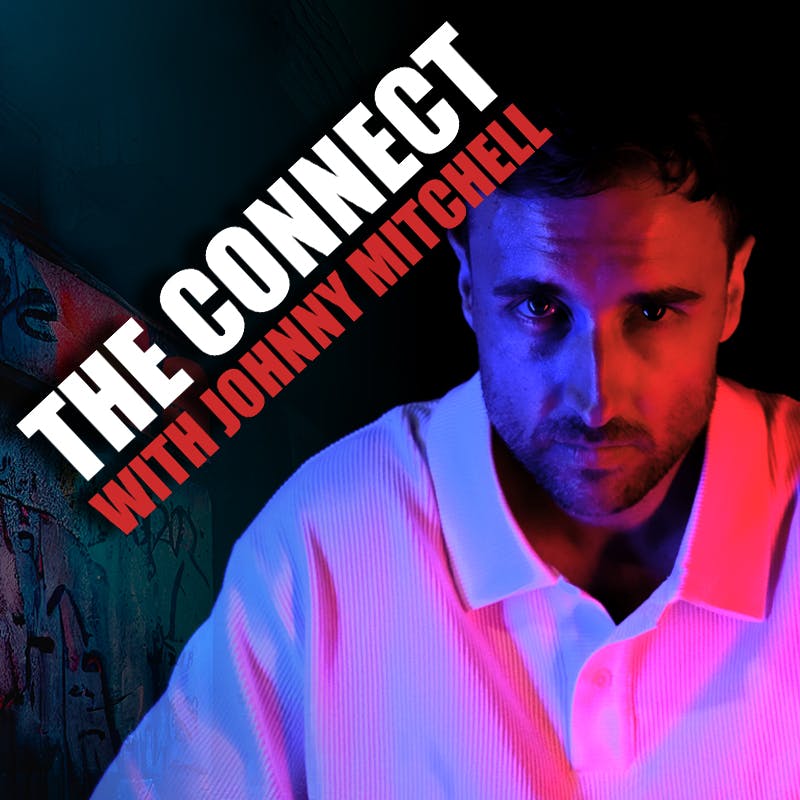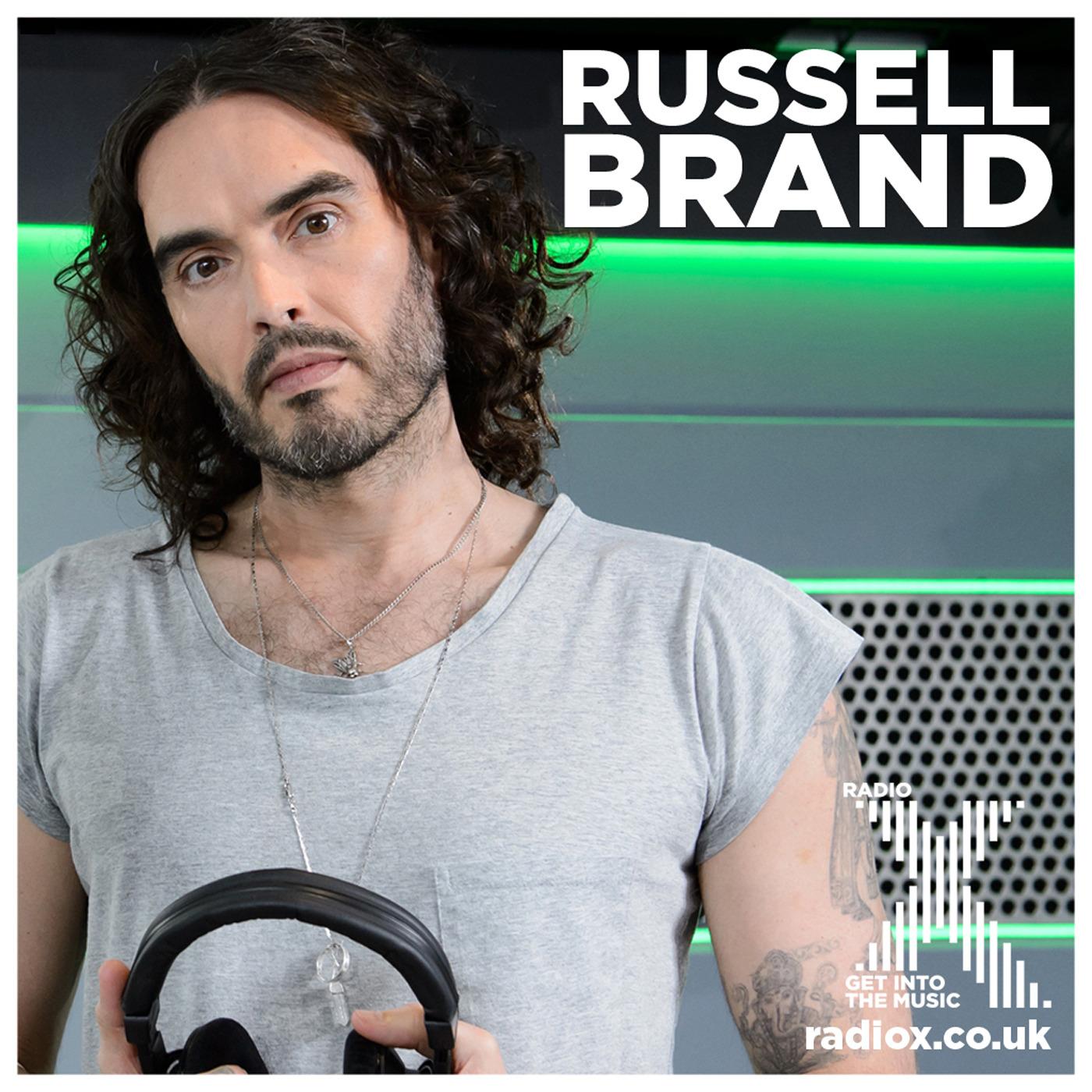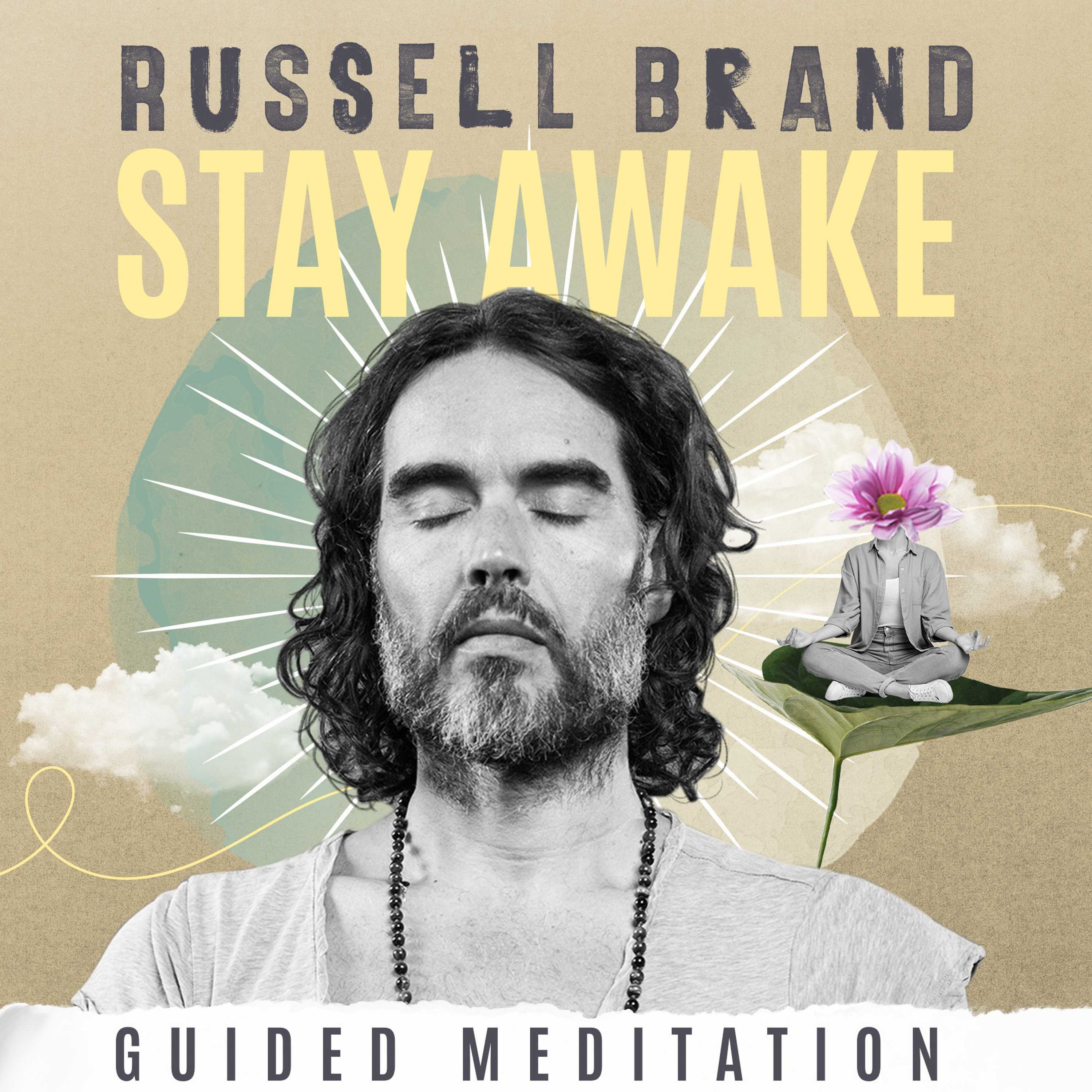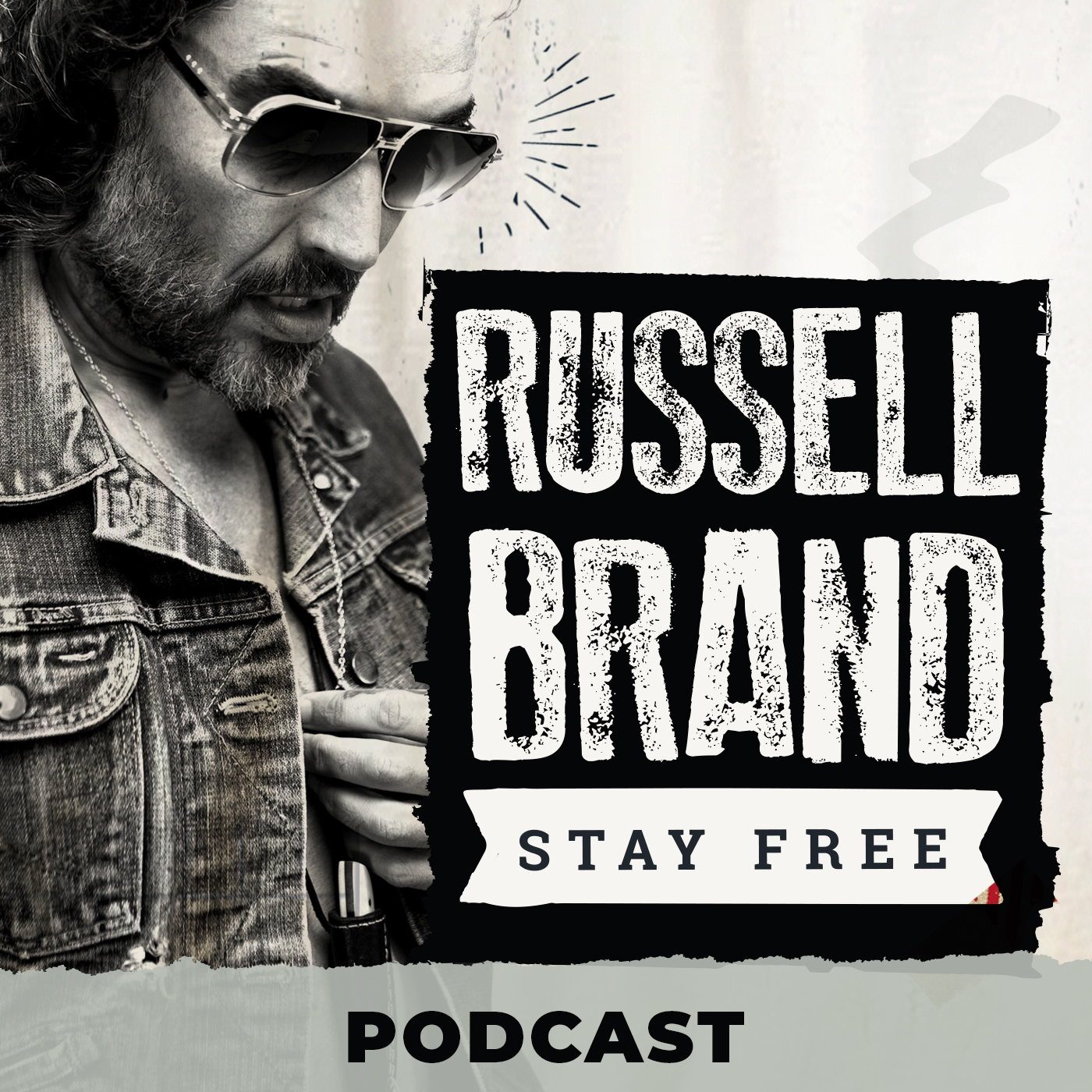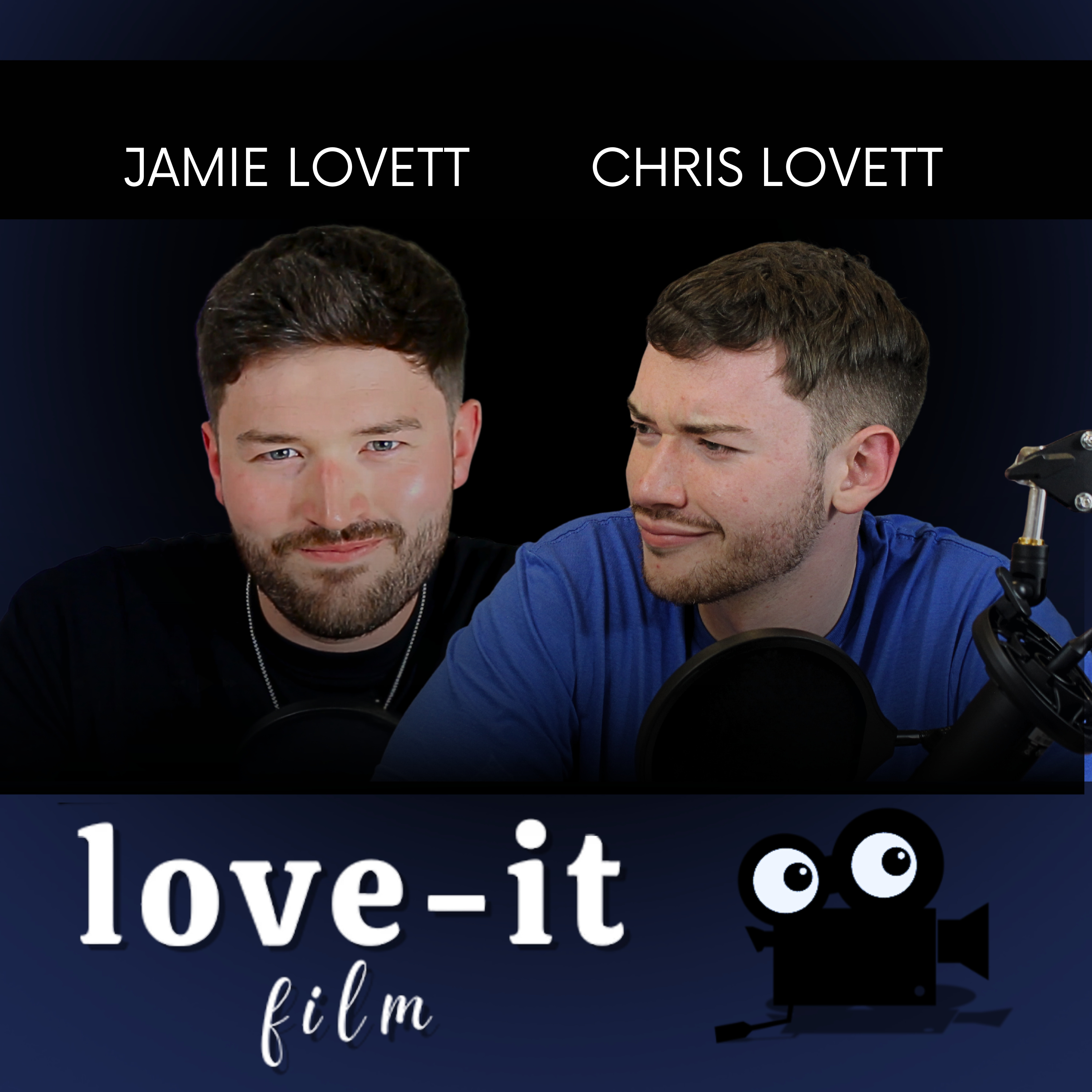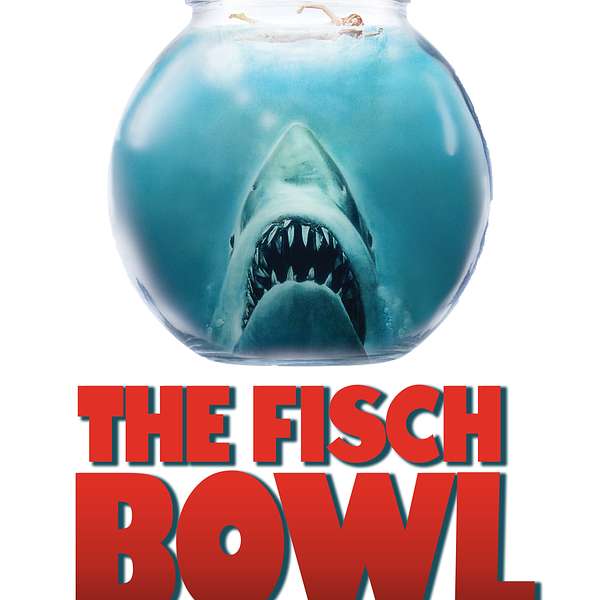
The Fisch Bowl
Are you a fan of all things Film, Music, Horror, Sci-Fi, Theater, and the Arts, then you are going to want to swim down to the deepest depths of the sea and join Sam Fisch in the Fisch Bowl; where all your favorite aspects of the horror, music, entertainment, and arts industrie are covered.
The Fisch Bowl
Michael Ciravolo: The Man Behind Beauty and Chaos
Michael Ciravolo, President of Schecter Guitars and the creative force behind Beauty and Chaos, pulls back the curtain on his musical journey in this candid, free-flowing conversation about artistic integrity in the digital age.
Beginning with his formative musical awakening—watching Mark Bolan of T-Rex perform on late-night television—Ciravolo reveals how his approach to guitar playing has always prioritized emotion and expression over technical showmanship. This philosophy carries through to his work with Beauty and Chaos, a revolutionary musical collective that has featured over 25 singers and 60+ musicians across four studio albums. Rather than functioning as a traditional band, the project allows Ciravolo to collaborate with artists from legendary groups like The Cure, Ministry, and Body Count while maintaining complete creative freedom.
Throughout our discussion, Ciravolo delivers passionate insights on the diminishing value placed on music in the streaming era. "I always say if you like an artist or a band and you want them to make another record, buy their stuff," he urges, highlighting how physical media creates a deeper connection between listeners and music. His commitment to creating complete albums rather than singles stands as a deliberate rebellion against disposable consumption habits. "I try to always look at it going: we're coming in to make an album... from the title, the cover, it makes it a package, something complete and not just one song."
The conversation weaves through discussions of influential guitarists, the evolution of rock through the decades, and memorable collaborations, including working with Ice-T on the Beauty and Chaos track "A Natural Disaster." Ciravolo also shares exciting news about upcoming projects, including a stripped-down, almost acoustic version of "Made of Rain" featuring a duet between vocalists Ashton Knight and Whitney Tai.
Discover why Michael Ciravolo continues to push creative boundaries while honoring musical traditions in this revealing glimpse into the mind of a true artist. Check out Beauty and Chaos on vinyl, digital platforms, and look for their newest video coming June 18th.
Attention all you fishes in the sea. You know him as president of Schecter Guitars. You know him from Beauty and Chaos. You know him from a magnitude of other awesome well-known bands. Welcome, michael Ceravello, to Swim in the Fishbowl. It's raining here in Pittsburgh, pa, which is the perfect segue for my catchphrase. Thank you for taking the time to swim in the bowl with me.
Speaker 2:Yeah, ready to dive in.
Speaker 1:Right, let's hope the temperature is just right.
Speaker 2:All good, I heard cold plunges are the thing nowadays.
Speaker 1:Oh yeah, oh yeah. Joe Rogan and Bert Kreischericher, all those guys, yeah, uh, yeah, they're all doing the uh, the, the ice, the ice bath plunges and all that. I'll take a hot bath any day. Yeah, same here, same here. But hopefully, you know, uh, you know, uh, I'd be like a poached fish, awesome, awesome, um. Well, let's's get right down into it. My first question for you, first of all, I'm a huge fan, love the band, love everything about Shredder Guitars. I am a big. I don't play myself, but I'm a big, you know, love guitar, love shredding love. Just, you know, from everything I heard, from kind of like the dawn of psychedelic rock with Jimi Hendrix and on, and even Chuck Berry and going down to, you know the guy who you know was, I guess, critically acclaimed for being the founder of blues, robert Johnson. You know I'm a big, big guitar guy. But before we kind of get into that, my first two questions that kind of coincide together are what got you interested in music and who are some of your musical influences?
Speaker 2:You know, at 13 or 14, I thought I wanted to be a football player. I'm a big New Orleans Saints fan, as you're probably a Steelers fan. Just in those kind of mid-sized towns, you know, teams mean more. Right right.
Speaker 2:I didn't kind of get you know 6'2 or run a 4'3, 40. So it was actually sitting in my parents' little kitchen growing up and seeing T-Rex and Mark Bolan on I think it was in concert, or maybe the Midnight Special, one of those late night TV shows, and just seeing Mark Bolan, the guitarist, thelon Lowe and the girl screaming in the front and the dolls, seeing Johnny Thunders and Bowie with Mick Ronson, and kind of worked that summer and bought an electric guitar, excuse me. And then, you know, as juvenile as it sounds, realized that girls kind of like guys in bands more than they like girls. So I went with the adolescent libido method and just went. I think I want to do that and I don't remember much since then that music and guitar hasn't been a big part of just what I do.
Speaker 2:I was never. I know you mentioned a lot of shredder stuff. That was never my forte. It was like, well, the friends in school as I got into high school there's a little group of guys that had guitars and some of them got into Jimmy Page and all this more technical stuff. And I'm sitting there going, hey, did you listen to this new york dolls record and and stuff like that and they're like you know they're playing a million more notes than me, but uh, I don't know something about the kind of sloppiness and just kind of from the heart, as opposed to technique, just is something I gravitated towards.
Speaker 1:Awesome, definitely, definitely. I mean I like all types of guitar playing, everything from acoustic to, you know, electric to you know you can throw a really like the Sintar in there, you know, really, just, I guess, what would it be like string instruments and guitar-esque like instruments in general. Um, I'm a big big fan of, you know, if I can hear a good bass riff, a good, you know, uh, guitar riff or not even a riff, but it's like everything involved with the rhythm. Um, the rhythm is more important to me than you know, actually shredding and, you know, showing off essentially, um, but in a good way, you know, uh, but I'm, I'm, I'm just a big fan of rock music and I was raced to, you know, on on listening to tommy in the car. Uh, who's next?
Speaker 2:uh, cooper, I mean the guitar is a very expressive instrument and I think as I got older and kind of had a little bit more grasp I started to appreciate. Like I was saying, I didn't appreciate Jimmy Page when I first started playing guitar, partially because I couldn't play it, you know, and the Eric Clapton's and all that stuff never was really my wheelhouse. But as I got older, you know, I developed a late fondness for what Page did, especially in the studio and David Gilmour of Pink Floyd.
Speaker 1:Definitely.
Speaker 2:He can say more with a few notes than some of these guitar gymnastic players can say in a thousand, and I think I've kind of grown into a later in life appreciation of the subtle stuff and sounds. I think that's one thing that I think stands out on the Beauty and Chaos records. There's a lot of textures and a lot of things that on the surface are probably thought to be synthesizer or something else, is a way that we manipulate the electric guitar and that's sort of the foundation of what we do.
Speaker 1:Absolutely. And speaking of Beauty and Chaos and you brought up Mark Bolan and T-Rex just a moment ago I love your cover of 20th Century Boy and Children of the Revolution. I am a big, big T-Rex fan. I'm not sure if you're familiar with this newer artist. His name, he just goes. The band is called Jossie and the artist's name is Jossie Hughes. He is like a reincarnation of a mixture of T-Rex, bowie and probably Jet are the three bands that um, uh, I could probably sum up kind of like the fusion of uh of of jossie's uh music. But uh, he was playing with alice cooper on the new track and, um, very like you know, uh, old school sound, I think. Okay, kind of froze there. There we go.
Speaker 2:Sorry, I don't know if my weather or your weather are a combination.
Speaker 1:Yeah, it has to be a combination. It's not a pretty day here in Pittsburgh, VA.
Speaker 2:I will definitely look into that artist. Yeah, that's where I caught my teeth and doing those two. Our versions of those two songs were a blast. I thought Al Jorgensen did a great job. I definitely one of those surreal moments and I'm not sure if you've heard the other version that we did. We do a version of 20th Century Boy with Mark's son, roland, and that was pretty surreal. Wayne from the Mission and I both kind of have a similar story when we talk about, you know, being influenced by Mark Bolan and it sort of being the impetus for us picking up guitars and when we both got to play with him and then, after we finished the video, to have Roland just kind of stand there and go. Man, I think my dad would have liked this that's awesome that's a pretty, it's a good gut punch.
Speaker 2:You know, it's like wow, uh, that, that's, that's a, that's a great feeling absolutely.
Speaker 1:Uh, I mean I can, I can only imagine something like that happen. I mean uh, uh, for me it has. It would have to be the equivalent of uh, I guess arnold schwarzenegger or sylvester stallone telling me that uh, I'm a good, I'm a good interviewer or a good, uh, script writer or something you know. Oh, you do that pretty good. Exactly, you know.
Speaker 2:Stop eating all the cookies yeah, two icons there, for sure. But uh, yeah, I think mark boland stuff you know showed that you can do it kind of unfolded into punk, which is why he had that sort of later in his career comeback like touring with the damned and all. I think you can see what he could say with three chords in a good melody and doing it with, uh, gusto and a smile, you know, right, right well, um, on the topic of guitars and guitarists, um, and being president of shredderder Guitars, who would you say are your top 10 best guitarists of all time?
Speaker 1:You mean with Schecter? That's Schecter.
Speaker 2:Yeah, sorry, sorry, we do have some Shredders. My top 10? God, it's going to be pretty different than I think what people would expect. You know, if I go down the list of guitar players in schecter that are, it's like sinister gates and zach wilde, and I mean great guys and friends. Uh, me personally, you know, I'd go down the list. I would say mick ronson, uh, mark boland, not known as a guitar player, but you know I I tend to put the songwriting element in it.
Speaker 2:I love what, what Johnny Thunders just does with his guitar, with just pure emotion. That's three. We got seven more to go. I'll throw David Gilmour in there because that's something that's as of late I've really tried to listen to him and get. I have nowhere near the vibrato or anything that guy has. That's just pure and natural.
Speaker 2:You know, as a kid I always loved Ace Frehley of Kiss. I thought the guy could bend a note much like Mick Ronson. You know they could just hang on this note. That just leads this emotion. I always thought Joe Perry, you know, again he has that sloppy guitar swung low. You know, thing going on.
Speaker 2:I love Kevin Shields of my Bloody Valentine just for the sheer bizarreness of the tunings and what he does like, the way he affects his guitar, what he does like the way he affects his guitar, I mean most of those guys, nobody would sit down and go. You know, hey, let's have a contest between those guys I mentioned and Yngwie Malmsteen, you know, it's like I think they really approach the instrument differently. I think the edge from U2, you know, does again manipulates theulates, the guitar and actually it's when you listen to him play, it's a guitar and an echo, it's like one one thing. It's not. You know, probably if you took his all his pedals off, he would be. You know people would. It wouldn't sound like the edge, so he would be another person. I know, I know I I'm missing some people, but those are wonderful.
Speaker 1:You probably got to throw Hendrix in there.
Speaker 2:I mean the way that guy just, you know, attacks Machine gun, he definitely changed, especially when you look at when that happened, the way people played guitar very little distortion, the Kinks and the Beatles, you know, if they overdrove a guitar it was almost by mistake, like it hit the preamp or the amp was screwing up. But Hendrix, just the volume and just attacking the guitar, yeah, I mean that certainly changed the course of rock and roll guitar. That was definitely not Chuck Berry or any of that stuff. That was the beginnings of rock and roll. That made the electric guitar kind of a weapon.
Speaker 1:Yes, yes, and his Band of Gypsies machine gun. I was just starting to mention His Band of Gypsies machine gun. I was just starting to mention, you know, talk about like literally performing a battle on the guitar and it also became a performance.
Speaker 2:You know the guitar became a prop is the wrong word, but it became this thing on stage. You know it wasn't just somebody with their guitar, you know up high, you know, doing the, the buddy holly thing it was.
Speaker 1:you know it was a a form of uh, sonic aggression, for sure absolutely um, what, what would be like your favorite, um, I guess, decade iteration of, like of rock, um, you know, there there's obviously been talking a lot about classic rock, but you know there's in the 80s there was the hair metal, the punk, uh, the beginnings of, um, you know, grunge and alternative, uh, that really came out in the 90s and the 90s you have like grunge and alternative and just a, a plethora of music like in the. You know the 60s and 70s, um, what, what would you say is the most um, either your favorite or most um, like, like most favorite decade that you kind of uh gravitate towards to um for influences and stuff like that?
Speaker 2:certainly, for I was a child of the 80s, you know I, and it wasn't the hair metal stuff, I mean when when the band I was in Human Drama, we moved to Los Angeles from New Orleans in in 80, late 85. And hair metal was big. You know, it's like I was drug into clubs and saw guns and roses at the country club and motley crew at the troubadour, well before they were signed and it just I just well, it was cool. You know I saw elements of the new york dolls and errol smith and stuff in that. That wasn't my. I gravitated far more to the dark at at that point, the darker gothic stuff. The great thing about that time in music here is those scenes coexisted at the same time. But I still go back. You know the Cure, probably one, if not my all-time favorite band. I always loved the Mission Sisters of Mercy, you know, later Depeche Mode and stuff. But when you see that those bands are still able to tour and you know, especially looking at the Cure and Depeche Mode and still draw 30,000, 40,000 people, that certainly puts an exclamation point on that decade of music.
Speaker 2:I mean, I started playing guitar in the late 70s so you know my sister was into the Beatles. She was older than me, god rest her soul so I had a little bit of that. Listening to that. I thought to Stones at that point. I just liked sort of the dirty rock and roll element of it, you know. So to me the 80s was great.
Speaker 2:The 90s I kind of got re, also the punk era. I mean I had my. I loved the Clash Still think Joe Strummer is just one of the best. Just put it all together and said something with his lyrics. The 90s I did really love the kind of the minimalistic but sonic stuff of like the 4AD creation period with my Bloody Valentine, slow Dive, lush. Those kind of bands I thought gave music a bit of a kick in the ass again. The grunge stuff never appealed to me. I think more from being out here and seeing a guy in a club, you know you nod hey, you're in a band, I'm in a band shit that people in Los Angeles do and the guy's got big blonde mane of hair and in spandex. And two weeks later Nirvana comes out and uh, basically you know it's like totally changes the game extinction level event for those hair bands either.
Speaker 2:Got late and he's got a flannel shirt on and dreadlocks and it's like fuck, how do you just I don't know I that that's chasing something. Uh, so I think that's what made you know the grunge stuff never kind of got it. I mean, certainly it changed music and anything that kind of shakes music up a bit and keeps guitar as the the main in the forefront. You know, uh, I think nirvana did for music what the sex pistols and clash did earlier it gave music a kick in the ass. So, long story of your answer. Uh, the 80s, you know, I mean, that's my record collection. Uh, I'm blessed in beauty and chaos that, uh, a lot of the people that have stepped into being being part of our family are part of that record collection.
Speaker 2:You know Simon Gallop from the Cure, I think, one of the underrated yet most iconic as far as you hear it. That's Simon Gallop and I think, as a musician, for somebody to hear you play even simple and identify that that's you, I think that means you've developed a style, whether it's technical, I think you know technique sometimes is overrated. I think sometimes, if you know too much, you don't have a style. You just kind of regurgitate. And there's nothing wrong with you know, knowing, theory and stuff like that. I think sometimes that's a hindrance definitely, definitely.
Speaker 1:I mean, uh, you just mentioned, uh, and also prior to, uh, my last question, we were talking about some great um artists and people you had a chance to work with and friends of yours, um, big, uh, big fan of the cure, uh, big fan of zach wilde. I am a huge, uh pink floyd fan. Um, I I think, like my current like top two favorite genres of music are, uh, like the, the shoegaze, like dream pub, neo psychedelic, psychedelia, delia, however it's pronounced, um you know if you want to pronounce it, you're sure right, uh, the trippy stuff and ironically, in contrast, I'm really into like, uh, the old school, like sabbath sounding metal, like doom metal, stoner metal, stoner rock, um, stuff like that.
Speaker 1:Uh, alice cooper is. I've seen him, uh, eight, eight, nine times live. Uh, big alice cooper fan. Uh, I probably should have.
Speaker 2:I probably should have listed him in the beginning because I did see that was a big moment seeing alice cooper do uh they probably did 18 and stuff off. I love it to death and uh, big fan of special definitely the original alice cooper group, and I'm kind of excited that they are actually doing another record together.
Speaker 2:It's like, I mean, all the guys are in their mid-70s but yeah, that was that alice, that alice cooper band was dangerous and without that you would have not had kiss, you would not have motley crew, you wouldn't have marilyn manson. You know, alice, definitely white zombie, yeah, I mean it was. But yeah, and I, glenn buxton probably should been. I should have listed him as one of my favorite guitar players. I mean he just again, not technically crazy, but played the right part for the song, but yeah, so I didn't mean to interrupt you, I just went.
Speaker 1:No, no, no, you're fine. Actually, it's funny you bring that up because the artist I mentioned to you before, Jossie Hughes, actually helped out, I think on guitar or in some way, with Alice Cooper's most recent track for his next upcoming album with the original lineup.
Speaker 2:What was that called Black Mamba?
Speaker 1:or something yeah. Black Mamba, something like that I Black Mamba, something like that.
Speaker 2:yeah, yeah, um, I'm a, you know, oh, I'm not worthy, I'm not worthy and I've never met Alice Cooper, but the great thing is I've had friends that have played with him and stuff and they just said he's a great guy and that that's really good to hear. You know somebody that's, I mean how what? That first record was 73, so I mean to be doing it that long and to still kind of get that you know you're just a guy and you're you're getting to do what you love and to have like such a good attitude I think is refreshing I totally agree.
Speaker 1:I've actually had the pleasure of meeting once, um, in Pittsburgh we have a Comic-Con, like every other city and country has a Comic-Con. Now he was there. I cannot tell you how much of a nice guy he was, or is guy he was, uh, or is um, uh, alice cooper is just a down-to-earth um really just, I mean to the fans and everything, uh, you know, I I like his music, I like his, his cult status, uh, you know movie actor stuff.
Speaker 1:um, one of uh, my favorite, uh really uh obscure horror films that uh, he did the the soundtrack for part of the soundtrack was a movie called uh monster dog, uh italian, italian werewolf film. Uh, he plays the star, uh, someone dubs his voice uh, and um, he, he plays a rock star that uh, his, uh, his father was uh killed under mysterious lycanthrope, uh circumstances and he returns to his hometown to shoot a music video and uh, ironically, the monster dog is is back. Um, it's a, it's, it's really a good little you know, obscure, yeah, that might have to be a little late night Watch. Yeah, yeah, I I highly recommend it. I also have to say his, his role in Prince of Darkness. You know John Carpenter, big John Carpenter fan and you might actually appreciate this story because you brought up Guns N' Roses earlier, a good few years back. Has to be going on 10 years.
Speaker 1:John Carpenter came to Pittsburgh to perform his scores. Ironically, I think his show was on saturday or a sunday, and then the following, I think tuesday or wednesday, guns and roses was playing uh at one of the the stadiums, uh stadium shows here in pittsburgh. Um, I'm a big horror nut. Uh, I, my show focuses a lot on horror movies and horror, you know theme stuff. And, uh, because I'm a local Pittsburgh or Pittsburgh, however you want to say it Um, I got like uh, uh, you know a special, you know, buy tickets in advance before they go on sale. Uh, long story short, I get to the show. Um, I see slashes there with a like seven-foot-tall, you know muscular Samoan bouncer who's not letting anyone get close to him. But I have better seats than Slash. You're welcome. Slash had to like look at the back of my head because I'm a big guy.
Speaker 2:Maybe the Samoan guy should have put him on his shoulders.
Speaker 1:Right, right, one of the few stories I have where I actually have better seats, have better seats than you know. A famous, you know guitarist musician. You know that that's I always like telling that story. It's a funny story. But, and also, speaking of Eric Clapton and I mentioned the who earlier my very first concert was actually at a venue that they tore down a good couple years ago here in pittsburgh. It was called, uh, the civic arena. Uh, if you're familiar with um old 90s van damme movie, uh, sudden death, um, where it's like with the penguins, um that. That was the venue that they shot it at and Eric Clapton and Roger Daltrey opened for Eric Clapton, and that was my very first concert. I've also seen Roger Waters do the Wall once. As much as I like Waters, I would really prefer and still want, and very much hope to see Gilmore perform.
Speaker 1:Gilmore was always my go-to in that band.
Speaker 2:I think most people other than Roger Waters would agree with that. I just hit the redoing of dark side, the moon. Uh, I I mean that record's classic and I don't know what later in your life that you're trying to prove, like that gilmore and the rest of the guys had didn't have the imprint that they had on that it's. It's insane, I don't. I don't know the band feuds and and shit like that is is which is why we're so blessed at this.
Speaker 2:I can't even say Beauty and Chaos is a band in the typical sense. It's just kind of this revolving, evolving entity and I don't have to deal with egos. Everybody does it for the right reason. It's not about fame or who's featured. It's just a a collective of people doing making songs for the right reasons. Uh, which I am so fortunate that this and I think I've counted we've had 25 or 26 different singers now running Beauty and Chaos and probably, with the remixes and people playing bits here and there, over 60 people as part of this thing. So yeah, we won't be redoing any of the albums or I won't. You know later, go, I would make my stamp known. I don't know, it's such bullshit, I agree.
Speaker 1:I agree, you know, I mean I love known. I don't know it's such bullshit. I agree, I agree, you know, I mean I love music, I love movies, but I hate when musicians and actors and people on both sides of the industry and just entertainment and life in general get egos in general. Uh, get egos. Um, you know, I always, I always find uh, the people who stay humble, you know, are, uh, you know, are really true, you know they, they don't, they're not affected by whatever the trend or industry standards are I mean, I've been in this I hate to even use the word business, but I've been doing music for a long time and then also the Schecter thing.
Speaker 2:You meet people and I think you learn that everybody starts the same. There is fame doesn't equal talent, talent doesn't equal fame. And I've really seen behind the curtain. It's just, it's really a lot of luck that someone becomes you know, someone, right, you know, and I think if people remembered that, you know, I think things would be much better. It's, you know, we all start in the band. Somebody happened to see somebody I'll pick Guns N' Roses. Somebody walked in, saw them, thought they could package, market them and make money. There was probably another 100 LA bands that similar talent level that they didn't have to see.
Speaker 2:Granted, you know, appetite, big selling record. But there isn't this magic. Like people tend to put stars on a pedestal. It's just people and the, the stars that remember that they're just people, I think are the ones that have the longevity, the ones that start believing their own press, right stuff. For the one that are, you know, I, I could care less, you know, uh, it's just like oz, the wizard of oz, behind the curtain, everybody, you know it's most of that stuff is just is just put on and everything. So I'm glad we do this, for for a different reason is which is why I still do it because it is it. It's creative. I love the aspect of bringing in new singers and finding talented people that aren't famous. I mean, if you look at our first record, which we did in 2018, it had some names on it. You know Simon from the Cure of Wayne, michael from Jean West, jezebel, johnny from Human Drama, robin Zander from Cheap Trick, al from Ministry and I'm not spouting these to go oh, I'm name dropping. Ice Tea was on the record.
Speaker 2:So it was this collective of people that you would never think would be sitting around a table having drinks together. But somehow we made it kind of work and sound cohesive. But I knew that if, if beauty and chaos was just built on trying to one-up the names like, who are we going to get next time? How do we go bigger? You know more who else you know you need a bigger name, it would have died, you know, it just would been.
Speaker 2:So I think, starting on the second record, we started going okay, we have to, kind of there's a lot of talented people and you know one singer would say, hey, I'd like to introduce you to this person. So it kind of just grew organically and I think which is why we're four studio albums in and four remix records that it's just grew that way and you know we're not trying to be something and we can combine those elements that you know I grew up with. Like it's still the common thread is me playing guitar and what Michael Rose on and I create together. So it's almost like whatever singer we put on top certainly brings their lyrics and flavor, but it has this we can keep the dark wave, gothic, shoegaze, dream pop, rock and roll and kind of package. It not pack. Fuck, scratch that word.
Speaker 2:Right, right Just it comes out as something honest. I think at the end.
Speaker 1:I completely agree and I know you said, do you want me to name drop? But I actually am huge, huge fans of all the artists that you mentioned and some don't lie. Yeah, it's a beautiful thing about doing it Exactly.
Speaker 2:Wow, that's the beautiful thing about doing it. Wow, I, if I, if I thumb through my record collection, the mission, the awakening, you know, uh, human drama, which I was in, uh, but yeah, it's, it's kind of uh, you know there's a lot it's, there's some surreal moments in doing this for something that was going to be my solo record for about the first five minutes. I'm so blessed and fortunate that it changed. From that it became it's. I'm a fan of each singer, uh, which I think is I. I love that aspect because I've mentioned this before.
Speaker 2:But, like I've done records with human drama and genie was jezebel, uh, and I always listened to that like too much inside, like I would focus on wow, I wish the guitar was louder. I hate that snare, sit down or bob. You know all this like shit, that you're not really listening to it as a song like you would if something just came on the radio with beauty and chaos. I, I, I can some reason and I don't know why, but I don't question it. I can just have this above view of it and listen to it just like a listener. I step back, I forget the technical things. Oh, we did that guitar. That was with this.
Speaker 2:Through this amp, all this bullshit, I just hear it as a song and I'm a true fan of the singer and it is the singer that we bring in that has made this piece of music a song. So I love the fact that I can. I can put on a Beauty and Chaos record and listen to it just like I would a Cure album or something, and sadly I don't. The other stuff that I've been on. I don't listen to it the same way and that that's kind of sad. But I think maybe a lot of people that are just in a strict band format don't listen to their music. I listen to Beauty and Chaos because I don't look at it as being my music. I look at it as a band or a song that I just like.
Speaker 1:Like a collective effort.
Speaker 2:Yeah. You know I always ask people. Like you know, every record has a lot of singers, some people you may not have heard of, but believe me, they're talented. Just go down there their discography. It's a great way of really branching into some new artists you may not have heard of I.
Speaker 1:I think that's great and that's actually one thing I really try to do on my show is promote um more like underground artists as well. As you know, if I people like you and um, you know if I can get my hands on, like the you know the the ace freely and gene simmons and paul stanley, you like the. You know the the ace freely and Gene Simmons and Paul Stanley, you know. You know people Alice Cooper, you know, rob zombie, you know, and that that caliber, I would welcome it with open arms.
Speaker 1:But I really like and I also kind of see that like the, the future of also, I would say the present and future of rock and roll isn't really with, at least in my opinion, the mainstream, the way the music industry has changed from like the 2000s into the 2010s, into the 20s, um, and because of the internet, uh, I've seen on so many music documentaries, especially talking about punk and what is punk.
Speaker 1:You know stuff like that, henry rollins and all that. Um, you know I, I kind of see that like the there's in in my opinion, and what I listen to and what I really like right now there is so many different rock movements going on, you know, with the 90s it was like, you know, like, like we were talking about Kurt Cobain, you know was was the, and Nirvana was the band that you know redefined music for the entire era, the entire decade. And then in the 2000s you basically had post-scrunch, which was Nickelback and Creed and you know all those bands, and it was the music industry trying to, you know, capitalize and, you know, recapture. You know what the prior decade had just nowhere near.
Speaker 2:Well, one thing about that is that not, certainly not. I don't have a Nickelback or a Creed record, but a band you know.
Speaker 2:Yes, now you, it's everything is like oh, I'm band, you know, yes, now you, it's everything. It's like oh, I'm going to go see an artist. You know, it's almost interchangeable. It's just, you know, you'll look at somebody's. You know, my wife and I have two daughters so they'll go to festivals and stuff, and you'll look and it's just like people's names, there's not a. It's like there's not bands anymore, which is, I, I think, really detrimental to you know, which is why people are so going crazy that oasis is back together. There was kind of a a dangerous rock and roll band that was notorious and drinking and didn't give a shit about anything and kind of gave the finger to whatever.
Speaker 1:Rage Against the Machine. I saw them before Zach whatever his last name is had his accident. They came to Pittsburgh and talked about a band. That really stirred things up, yeah.
Speaker 2:I think nobody's giving music a kick in the ass anymore and I don't know if it ever will. I think people's attention span is such crap now that music kind of to most listeners, is background.
Speaker 1:Yeah, I will agree with that 100%.
Speaker 2:No, one listens to something the way we probably did know as a kid I would. I would listen to a record top to bottom. I would dig into the deep cuts. Now people are just like they hit 30 seconds of it. You know you need to do an instagram real or story. It's like bullshit. Uh, you know, we still continue to do our records on vinyl. I mean the record.
Speaker 2:This one, the Dancing with Angels, is 78 minutes, right. Right, we have eight songs and I interjected Michael and I interjected these musical interludes to make it this big listen. And in my head I got this romantic notion oh, somebody's gonna pop that in and sit there. And then the other realism hits and go, who the fuck's gonna sit there? And, and you know, very rarely will someone dedicate five minutes to listening to something uninterrupted, without doing something or scrolling or whatever the hell. They do much less listen to 78 minutes. But I have to do it to please myself and with Michael and I and everybody else. That's part of this. It's just like it is a little bit of rebellion. Part of me wanted to go. You know what? Screw this. Let's make all 78 minutes one track.
Speaker 2:So when somebody if they actually had a cd player put it in. It just said one song, so they couldn't even skip. Uh, but I, I guess I I wised up a little bit there. That would have been shauna would have loved that. She would have thought I was more insane than I am. But uh, yeah, it's like I having someone listen. You know, I sometimes I feel like we do it on vinyl. Someone's gonna put that record. If they go through the trouble and it is now for trouble for someone because they'd rather just scroll or go, oh, I got, you know, 30 000 songs at the tip of my finger. I don't know which one to listen to. If they're going to take a record out, select a side they got to make a decision side one or two, put that on. They will hopefully at least listen to that 18 to 20 minutes uninterrupted. But I don't know.
Speaker 2:I just wanted you to know that I'm one of those people I wish there was a lot more and I keep hearing that there's resurgence, like there's people that are into music on cassettes and I know there are some, and I think Beauty and Chaos and I hate saying fans, because I look at anybody who's part of this as a family. I think we have a listener listener base or that will dive down, we'll read the lyrics and things like that things that I used to do as a kid, like toil I mean, we spend time probably more than most people I know.
Speaker 2:No one even thinks about going what song should go into the next, and that used to be a very big thing. I'm sure Pink Floyd sat there going trying to make a dark side of the moon. And those records Ziggy Stardust, disintegration those records aren't. They're meant to pace and to kind of do this thing. You know, not meant to be skipped or necessarily to be listened to one song, or out of order, or certainly not while you're doing something else. They're meant to experience this record. I don't know if people experience music anymore.
Speaker 1:Well, Floyd especially, was you need to listen to the whole thing in the order that it's. It's you know, um, put in especially dark side, um, and not to diss roger waters again, but uh uh is the only song on dark side that has no business being there and ironically, was what the only song off that album that was on what the top 100 for?
Speaker 2:like a decade. The only radio song it does have a fantastic guitar solo. Gilmore's solo on that is just incredible. That's the only thing I remember in that song.
Speaker 1:I completely agree. But it's like to bring up another Floyd album, a little less less well-known and popular one, metal, one of my favorite albums from them and to talk about what you just were talking about. Like what if you did like a you know whole, like one song? That's like you know 78 minutes or 48 minutes or whatever you know. The last track of the album on Metal Echoes is almost 26 minutes long and it's like like you need to listen to the prior songs on the album that are all shorter to kind of gear up to get to that point and then you basically go on like you know. You know, whatever you do, smoke some weed, take some acid shrooms, well, whatever your fancy. Uh, that is the song. That is basically. You know the, the journey that you go on to, which is like either smoking or tripping. You know part of the, the album, um, but, uh, you know they they have uh tons of stuff, um, even the the sid barrett floyd, uh, what is it? Piper at the gates of dawn? Um, uh, there's a lot of you know nine minute stuff. Well, you know uh stuff in there.
Speaker 1:And me personally, um, I love jam bands and if I see when I'm like researching a new band and I see that the album is because for me personally it has to be at least 37 minutes or longer for me to like be like, okay, this is a band worth checking out. Then, if I see they have long tracks and the album, you know, in beauty and chaos in this case, exceeds, you know, uh, you know, 40 minutes, 50 minutes an hour, um, I'm like this is a band that I not only need to check out, invest time in listening to the whole discography, from album one to the most present album, like. I look at that as almost like a research project of joy because it's listening to a new band, whether it's Beauty and Chaos or you know whoever I'm listening to at the moment and or discovering, and I really, really enjoy the long stuff. I mean, I was, you know, born in 88, grew up in the 90s, grew up in the 90s. So you know, I was kind of like at that point where, yes, I'm a huge, huge, you know, grunge 90s alternative fan. That was like the era I grew up in. But I also had have a dad, you know, who grew up listening to, you know, all the the classic rock stuff and also to talk about. Um, you know the obscure stuff and albums that, and artists that really don't get radio play. Uh, my dad had saw, is a huge fan of and got me into him as well.
Speaker 1:Uh, frank zappa, um, the who. You know, the mozart of rock and roll. I'm a huge Zappa head. He's one of the artists that I really wish. If I could get Doc Brown's DeLorean and rev it up to 88 miles per hour and go back in time and you know, see some some shows hendrix would be one, the doors would be one. Uh, you know, early floyd would be one, um, and zappa, of course, would. Would be, like you know, in the top of the list. Um, especially 70s. You know, 70s, 70s, 60s, zappa.
Speaker 2:Not, definitely not something I didn't. That was kind of before and above my head at that time. But my quick Zappa story is when I moved to Los Angeles, the whole band came out here. We all had to get day jobs and I was, I worked for a carpet cleaning company and we would go every six months to the Zappa house and I think Frank was still alive at that time a carpet cleaning company and we would go every six months to the zapper house and uh, I I think frank was still alive at that time uh, and it used to go and they were very nice people. The house was kind of chaotic. Uh, the the daughter moon, used to always flirt with me, which I thought was cute, but that, the, the guitar, the, uh, the one that hendrix gave him, that got torched I think. Yeah, yeah.
Speaker 2:I think Dweezil has it. I remember in the living room and that guitar was just laying on the couch and I'm sitting there with the carpet cleaning machine looking at that, going, wow, what a piece of history that is. I was a little afraid. I wanted to ask him could I touch it? But I didn't. I just kept working.
Speaker 2:But yeah, that what you said is that music then was a journey. You know, I mean, you go to a cure show now and they'll come out and usually the intro song is like three or four minutes of this building of tension before it's even Robert even sings. You know, we on our second studio album, the storm before the calm, we do I think we've been top echoes. As far as time, I think it's 27 minutes and something we do, this long thing. I always liked the idea of a title track, yeah, when we did it, and I was thinking in the context of an album, so it had to fit in that 44 minutes, 45 minutes to fit on the side and everything. But when it came to us doing the CD of it, I'm like, well, hell, there's still 30 minutes of usable space on this. We don't have a title track. So Michael and I did this big long piece that was broken into three movements, the title track, the storm before the calm.
Speaker 2:I think there was the gathering, the storm and the calm, but it goes through this big long journey, strange sounds. That's meant to be heard in headphones and I'm really proud of that. It's very, it's, you know, obscure and most people maybe that haven't even heard that, but it was. It was meant like in that that head space of listen to it, turn the lights down and hear it that way. And I mean I don't even know. Now it's like I see people, you know, listening to music on an iPhone just sitting there. It's like how does that? Has no space, it has no back, it has no left and right, it's just this mono sound. That's just sad.
Speaker 2:I'm sure everybody bitches about you know that their generation was better, but I truly know I grew up in the best generation or the time frame of music. Like most people won't experience going into a record store. Yeah. Oh that, that whole thing of going into the site to smell. It smelled like patchouli.
Speaker 2:The head shops right posters but you know, for me, I used to have to work, do it, you know, as a kid cutting, cutting grass or cleaning cars, whatever the hell to make my six dollars, and it was a big deal to to make that purchase of music. You know, if you bought it you you kind of listened to it, you really went down into it. It's like I'm going to try to make myself love this record. I I worked all weekend and I made this. People don't have that anymore. Music is is free and I think they just listen to it. It's it's background noise and that that really that really sucks.
Speaker 1:I agree and I'll go. I'll go one step further. Um, there is a movie and I talked about this uh earlier podcast interview with another uh, uh lead singer, founder of a band, a British band called, or actually a Scottish band called uh, helicon. Um, they're from uh Glasgow. Um, great uh, shoegaze, psychedelic, neo psychedelic rock band. Um, uh, there was a movie that came out in uh the two thousands when I was in high school. Um, and it was a live action adaptation of, I guess, the 70s cartoon Josie and the Pussycats. Okay, I'm not sure if you've seen this movie.
Speaker 1:Basically, the plot for the film is the music. Like producers or execs, the industry industry, the head execs of the industry, um, are uh, basically have these like this, this boy band, essentially like a backstreet boys instinct, you know, type type band, um, and basically what they're doing is they're signing these bands and actually putting like subliminal messaging in the music to get their listeners to like buy. You know, showing all these kids like the music and they're all, like you know, being brainwashed and everything. And then there's like one person who would essentially be like me and it's like I don't understand why. That's a thing, you know, why is that popular?
Speaker 1:I think the music sucks, you know, and then the producer basically is like, okay, you know, nods to the person, like, okay, you know, nods to the person. They basically put a bag of you know the black sack over the girl's head, throw her in a van and, you know, ship her off to Just pair her Right, right, you know. And then the boy band basically like gets killed and they need a new pop band which becomes Josie and the P? Um, and then, you know, the movie kind of goes on from there. But the point I was kind of trying to make was that the plot line, you know, for the subliminal messaging and brainwashing and everything, um, if you know, not to get like all you know conspiracy theory on you and everything, it's definitely true.
Speaker 2:I mean that was right. Right, that was the whole thing of packaging. I think maybe that time was probably when it started. Music started going downhill when a group of people you know the cabal sits around a table and go we can get these five cute guys or these five you know sexy looking girls and we can make them stars. Right, you know, no one had to make Elvis a star. Elvis was, but when and and granted, you know, I'm sure, justin Timberlake's talented, you know, he's an exception to it. But you just kind of grab these kids and right, I witnessed it later with our, our daughters, with, uh, one direction and the wanted and yeah, yeah, kids, and you know, they got this look, they got the moves, but it's, it's no substance. But I think that was the packaging and, yeah, of course, as subliminal, some, everybody, wants to make money off of it, right, but even more so today.
Speaker 1:I mean it's like they've like mainstream music, mainstream pop music, mainstream rock, just the mainstream in general. Seems like they've most of the big artists have almost taken out like the actual instruments in general. Seems like they've most of the big artists have almost taken out like the actual instruments in general and replaced it with, like you know, some type of computer generated, you know, nonsense that isn't music.
Speaker 2:I think people want now to. It's like when I used to go to a concert. I loved the idea of a live version of the song. I loved going like seeing an artist extend something or recover from a mistake or miss a lyric, kind of laugh it off, Like, okay, we're human. Now I think people want to hear it exactly like the record. Human uh now. I think people want to hear it exactly like the record. I think you can go to a show now and I'll pick a band because I read something katie perry, who I think is just fucking atrocious, just like same hair, same hair play the record and have people dance, and I don't think people would notice or care.
Speaker 2:It's like, you know, I I think it's gotten where bands feel like they go, so they play, and it has to be just like the record. That's where you're getting all it's. Either a band sucks and shouldn't be playing anymore, or they're so worried because everything, the instant they're doing it, is uploaded to youtube. No one wants to look bad. It's like of course we need to have all these backing tracks and you know things like that. In case we have an off night, bands have an off night. I've been in bands forever. Some nights we just I play like total shit and it's like okay, on to the next one. I'm going to be better tomorrow, but it's called being human.
Speaker 2:Yeah, but no one wants that posted. It's like I don't think people realize how distracting and disheartening it is as an artist to be on stage and see you know a thousand or ten thousand iphones facing up. It's like no one's enjoying the show anymore. I don't even get it. Uh, like, what is that person doing? Are you wanting to be the first to post it, or are you going to go home and watch it then? I mean, you were at the concert, you know. Right, right, I don't get that.
Speaker 1:And going back to Hendrix, you know someone who, because of him passing as early as he did, you know he only had what like three actual studio albums, four maybe something like that. Um, and the rest of his, his actual music archive is all live stuff.
Speaker 2:Uh, first of, all it was really bad, you know. I mean, he played that way that it was chance. There are nights that jimmy page is horrible on stage with zeppelin, uh, right, well, I was actually going to say uh, on hendrix.
Speaker 1:Um, there's, there's an album, I think it's, uh, I forget which live album. It's a double, double live album. Um, and you know, there's one point, uh, where he's, he's doing a, a version of red house. I think it's the longest version, I think that I found recorded live, uh, like close to 14 minutes, um, and uh, at the end, like he plays, you know, like, like, like great and everything. But after you know he's done with the song, you can clearly tell he's high off his ass because he makes a comment that you would only make if you're like high on. You know, like tri recorded and you know, you know been gone for you know 50, 50 plus years, but you know it's like, it's there, you know, and who's to say if he was alive and if he was out today, if that would affect him negatively or I have a feeling that he would not want that to come out right.
Speaker 2:I think that's the part of the packaging that you know, the they'll I I know they probably grabbed like studio outtakes of him jamming and built songs around it. It's like when he passed and this happens with a lot of artists like the, the, the record people and sometimes the families just are going to pick on it like a, a carcass with yeah yeah part of my thing with schecter.
Speaker 2:I remember, like I don't know, maybe a decade ago, somebody going, you know, I got the receptionist buzz me. Somebody from the hendrix family wants to talk to you and it's like and this person was, I don't know, a freaking second cousin or something he's just giving feel, and he said he had these drawings that jimmy did, that he wanted us to put on a guitar and we can make them. We could both make a fortune in my head. I'm going. One hendrix had nothing to do with schecter, I would never do that. And two some sketches like you're going to try.
Speaker 2:I mean it's pretty bad. We've seen it a bit with the prince estate because we've built guitars for prince before and you know they're trying to package things, they're they're putting records out that maybe as an artist, that he didn't want out. So again, that's the ugly side of business that everybody feels they can make and once a person's gone they have really no say so in it. Yeah, that's pretty awful. So for us, we just put out everything we do. There's nothing left when I go that anybody's going to put out that I'm not proud of Right, right, awesome.
Speaker 1:I did have a question. I mean, obviously we've been talking about a lot of people who have been in Beauty and Chaos, the various iterations, but one of the people I'm curious about is ice tea. Um, I'm a, I'm a big like I. As much as I love, uh, you know, psychedelic rock, classic rock, grunge rock in general, um, I am a huge uh rap fan, kind of up until I guess it shifted with like, I think the year was like 97 or 98. It kind of shifted into more of what like it is now, at least in my opinion. Um, but I I love early rap. I love, you know, some of the gangster rap. I love nineties rap, um, you know, just, just the whole, uh, just iteration of it. And I'm also a huge um fan of ice.
Speaker 1:I've seen every, every movie I see has ever been, uh, you know, new Jack city being my favorite, um, but uh, I I, you know I'm also, like I said, a horror fan. So of my favorite underrated horror films is actually Leprechaun and the Hood, which Ice-T is in, and, you know, among other films. And it was actually my birthday on the 18th and my aunt uh got me uh, I forget where it's from, but it's basically iced tea doing the, uh, the birthday, like like you pay it. You know he does like. Yeah, so it was. It was like iced tea wishing me a happy birthday, um, but uh, I was wondering what, what is he like? What is like his musical process? Um, what is he like as a person? I?
Speaker 2:I've honestly only met him one time. Uh, we were. We work with body count yes, yes we do.
Speaker 2:I've known vince forever and, uh, ernie and juan, we do signature guitars with them. They're all absolutely great people. So we're doing that the song a natural disaster in the first record. And we we started doing that breakdown part and it was like I went man, it would be great just to have somebody just do a rap or some like spoken thing with some venom over this section. And in my head the two people I thought I had a conduit to would have been Ice-T or Jacoby from Papa Roach. I thought either of those two could spit something out on that. So I reached out to Vince. I went hey, can you, would you ask ice if he would consider this, because I figured he probably knew Doug panic and we had Zach while play a solo on it, who Zach came in and probably played more notes in that solo than I had on the entire album, but it was fantastic. So he asked ice and I said, yeah, send me the track. So it took like a month. But later he uh, he just went in the studio and he kind of asked for the lyrics which doug had wrote the words. But doug and I uh, both being from the south, talked a bit about, you know, I, my family in my hometown of New Orleans, went through Katrina and Doug's from Texas, and they had Harvey, hurricane Harvey, so that's where Doug took those lyrics. So we sent Ice the lyrics and he he spit out that that thing sent it and the way we got him in the video.
Speaker 2:Each year during that time Schechter would do a do a concert at the NAMM convention and we had Body Count playing and I reached out through Vince. I said would you ask Ice if he would do something for this video? And he said yeah. So, ice Kid, we did it at the Grove in Anaheim and a little backstage area there was a small room that had two washing machines and I guess they would do linens for the venue. We hung up a black curtain on the wall. Our video guy Vicente came.
Speaker 2:Ice-t went in there and said let me see those words again. And he had his two big bodyguards there that you could see their weapons were printing. Let's just say that. But he was sweet, his wife and daughter were fantastic and he sat there. He spit out the part twice, he goes, I think you got it and he walked out. So I mean the dude did not have to do it. He's always been very gracious that we take care of his boys in the band, so but yeah, that added. I think that kind of surprised it definitely helped that first record get some you know people like looked at it like wait hold on Robin Zander and Ice-T on the same album and it kind of made people go what.
Speaker 2:But yeah, he was fantastic, was fantastic.
Speaker 1:Uh, could have, couldn't have been nicer awesome and speaking of body count, I've been listening to, uh, their their newest album, um, phenomenal, uh, you know, I like, very like almost two of the same, you know, but very unique and different at the same time, with the sound and the lyrics and overall performance and everything. But I'm a big, big body count fan. Their version of Comfortably Numb. Oh, that was so good. Some people got Gilmore to play the solo in it.
Speaker 2:Yes, so I went. That's my. I've talked to Vince a few times. It's like you know when, man, I would love at some point to send something and have David solo on it. Not that that would ever happen, but at least I have a little bit of a channel, whether it ever got to him or not, right? Right and I always say never, say never yeah, but yeah, to have a song and have somebody like I think they think that Gilmore and I guess Roger Waters too, had to sign off on them doing it.
Speaker 1:I remember reading something about that recently. They did have to sign off on the rights to do that for Body Count to cover that song. Waters didn't kibosh it, I know. Also, speaking of Hendrix again and Body Count, I love their cover of hey Joe. Hey Joe is my favorite studio Hendrix song. I also love it live and I believe it might have been live at Winterland.
Speaker 1:I think Hendrix did a close to seven minute version of hey joe and like the first, how we were just talking about, like how there'd be a few minutes of like you know build up and then like you'd go into the song. Um, on that album he like really is doing more like improv, improvisation of like shredding on the guitar and it sounds nothing like hey joe. And then after like I want to say two, two and a half minutes of like doing the you know showing off skills on you know doing all these like shredding notes, uh, it goes into hey joe and you're like holy shit, shit. I didn't think we were going from being totally loud and shredding and amped up to going into something more mellow and laid back it reminded me of a guy I was in a band with when I was a kid, when bootlegs used to be bootleg yeah, yeah big and he was always buying zeppelin and sabbath bootlegs and we would be going to rehearsal and he, uh, he, he'd buy the records and put them on a cassette and we'd have to.
Speaker 2:I think our rehearsal room was like 40 minutes away and, uh, he always had a new zeppelin thing. It's like, oh, this is from this and and we'd have to listen to the drum solo of moby dick, which he knew was different from the one that he got before. But all those records that just had the little, the white cover with the, the flyer stuck in there. But, yeah, right, he was a big collector of all that and some of them were god awful, like somebody just with a cassette player in the venue. But sometimes people would get them off the board. Yeah, I'm sure there's a million Hendrix ones floating around.
Speaker 2:But again, sometimes it's like I don't always watch. I've rarely watched back anything I've done live. I usually don't even listen to the interviews. I just like to go Okay, it was fun and leave it at that, not go back and dwell, because a lot of times I'll look at something live and go ah, I thought that was better, I thought I played that better, I remember it being, and I just rather enjoy the moment, which I don't know if people Like when I was talking about the cameras at which. I don't know if people like when I was talking about the cameras at shows. I don't know how you go back and look at something on your phone and realize that you missed being in there. And you're at this show. There's stuff going on with four or five people on stage. Be in the moment and it doesn't happen.
Speaker 1:Right, right, you know, uh, be in the moment and it doesn't happen, right, right, and uh, oh, I, I want to comment on that and then actually go back to comment you made about uh, uh, bootlegs and stuff like that, because, uh, and cassettes, because I have a a funny story about that, um, I, I, I definitely agree with you. It's like you know, um, for my 28th birthday going on, uh, nine years ago, um, I, the the dandy Warhols, came to Pittsburgh and I got a VIP tickets. I got to meet the band, um, and uh, have dinner with them and see one of the really most unforgettable shows of of my entire life. And because I had vip tickets, uh, we got to me and a few other lucky sons of bees, uh, you know who got the vip. Um got to go to the sound check for the warhols and, uh, because we were there, we got, they were asking taking requests. Um, I'm a huge dandy warhols fan, a huge brian jones sound massacre fan and, um, my number one favorite uh warhols song is a song called.
Speaker 1:And then I dreamt of, yes, basically part of the smoking part of the album, um, but, uh, I asked if they could do that song and uh, the drummer said, uh, if the courtney usually doesn't do it, uh, because live, because it's hard on his lungs. But let me see, um, they did it. And not only did they do it, they did it as a closer and they did all these more popular songs that they do at most of their shows and they got the audience really enjoying it. They were at a Warhol show expecting what they'd expect. They were at a Warhol show expecting what they'd expect.
Speaker 1:And then it transitions into also like we were talking about a different version of the song when it's live versus when it's studio. And it was like one of those magical moments, like out of a movie, where when they went into the song, the audience went from cheering and being loud and applausing to dead silent. I watched it and took everything in and then, after they finished, like it was the loudest eruption of applause that I have ever heard at any concert I've ever been to, and I've been through a lot.
Speaker 2:Hey, could I get 15 seconds? It sounded like my cat just did not.
Speaker 1:Oh, yeah, yeah sure.
Speaker 2:I will be right back. I don't mean to.
Speaker 1:No, no, no, you're fine, you're fine.
Speaker 2:Sorry, that's all right. It was a guitar that went over in there. She's an old cat and I don't even know how she did that. But yeah, what you were saying, I think that's great. Like that band is probably not playing with backing tracks, it does allow them and I think, as a musician, that keeps it interesting. I mean I can't imagine having to play something so structured every night and then having this stuff behind you that if you stop playing it's still OK. Right, oh, that was again. That that's real, that's like from the heart and you know if you go see him the next, I mean why. If you went two nights to see them and they sounded exactly the same, I mean why go?
Speaker 1:Right, right, right, Exactly, and, um. The other thing I wanted to say uh, I I do collect bootlegs, um, uh, and and, and and uh, I have a cassette collection, uh, both, um, from my very first job, uh, which was working at a gas station, I used to make mixed cds and album play albums and stuff and it all started out being like all the the classic rock stuff. So all these old, like you know, heads that are like my, my dad's age, you know, coming to the gas station, they're like holy shit. How does a kid your age, like you know, listen to to the gas station? They're like holy shit.
Speaker 1:How does a kid your age like you know listen to all this stuff and you know no and one customer. It was a woman who was maybe 10 years older than me. She used to work at a record store and came across this bootleg Hendrix album that was. It had Jim Morrison, buddy Miles and Janis Joplin all guest starring or featuring on the album and the album itself. I mean he did Red House and a few other. Well, actually Red House was like the only known song that was on that. The rest were all like songs he had never done before and in terms of like his sound, compared to every other live album and studio album, this album was like more blues, like actually blues oriented uh, not slight, like acid rock, psychedelic rock, um and uh. All every track was like 10 minutes long or something and there were maybe like four or five, six tracks total.
Speaker 1:Uh, morrison uh gets drunk and uh basically starts going on a rant and saying, baby, I want to fuck you up the ass. Classic morrison, um and uh. And then also a separate customer from that same uh, that same job, who would come in, uh old kind of stoner, hippie painter guy and uh, he would actually recommend uh artists for me to check out. Really obscure people, uh, bands, uh, two of them being atomic rooster and, uh, spooky tooth. Um, I made him, uh, a couple mixed cds, uh, you know. Uh, he came back. A couple weeks went by and he was like he came back and he said, man, I haven't heard those songs since I was, like you know, younger than you at the time. And he said to me you know, you look like to me you'd appreciate this. My son isn't going to do jack shit with this. Basically, it's just going to go in the trash. And you look like you'd appreciate that. I have this like my old cassette collection, if you want that. And I'm like what?
Speaker 1:Like an old cassette collection. You know, I'm like fuck, yeah, I want that. You know, a couple of days went by, he came by and dropped them off and these things, to show you how vintage these, these, these are. Uh, they're actual like suitcases, okay. Like I'm sure you know what I'm talking about. Like, oh, the ones with the little bit, yeah, yeah, but with the slits, and you you know they actually weigh like you know, like 20, 30 pounds or something you know the ones that you would rotate like you put the cassette.
Speaker 1:Yeah yeah, good time. I have two of those packed with everything from like Skinner to Zeppelin to Black Sabbath to Hendrix, like Skinner to Zeppelin to Black Sabbath to Hendrix. You know, like every major, you know like classic rock band, because this guy looked like he's a good couple years older than my dad. But you know, it was like. I just wanted to share that with you because, yes, I do collect bootlegs and I do collect cassettes.
Speaker 2:I think I mean everything that you hear at least the way I look at it is. You absorb something from it and each generation takes it. I really think some of the newer artists should really dive back and listen to where something came from, you know, and kind of go back some, because I think music is losing some of the roots and where things happen Like, a lot of people will think, wow, you know, a band from the 2000s, created like Jet, didn't create that sound, you know they picked it up from you know they picked it up from you.
Speaker 2:Know the faces. They picked it up from the stones and, uh, I don't know it's. It's bizarre with the, the state of stuff today. I don't think you're going to find bands now that have the longevity of those bands from the 80s, 70s, 80s and 90s. I think that's.
Speaker 1:That's kind of sad I, I agree with that. I still, what I was trying to say earlier actually is stuff that I kind of notice right now is that there's a few different actual rock movements going on. There's a revival of grunge, a genre called new wave grunge. It's like all these guys that are in their like, uh, you know, mid late 20s and they basically fused all the the bands from the 90s into like new bands. With you can hear certain elements of, like, you know, sound garden or or, uh, uh, weezer or something, or you know the pixies or stuff like that, like, but it's all like kind of fused together. There's also, um, a huge movement with the shoegaze and dream pop and everything that, in my opinion, is only getting better.
Speaker 1:Um, and then you also have what you were talking about like just now, about wishing that bands would like go back and listen to like you know what the what did like, what the the first, like major, you know, iteration of rock and even, you know, a couple decades after or prior, um, and everything I see in, especially in europe, um, there is a lot of bands that like I don't even know how to describe it as like a, like a retro, uh, 60s, like psych, psych, uh, psychedelia, um sound it like. It sounds like it's from the 60s but it's new, um you know, and there's there's a lot of bands out there like that that are big. There's a band out of Berlin, germany, called Blues Pills and they have like a very like classic rock sound, like they've covered a couple of Bowie songs and stuff like that. A female vocalist, awesome band. And then there's another band out of Sweden called Spiders and they have a very like you can hear Kiss. You can hear like all the like you know hard rock, metal-esque bands that you know came out and you know with with the whole kiss era and uh, you know rock and roll and stuff back then.
Speaker 1:Um, but I do agree with you that, even though there's all those like rock movements out there and it's still like surviving and thriving in a way, um because of, in a lot of ways, the internet and just how the mainstream is right now, I I do agree with you that it's it's either not going to happen or be very, very hard um to get that sound and you know music in general and those genres um to be at be as recognized as bands like everyone we were talking about before. Um, it's just like the. I feel like the music industry has changed the. Internet streaming has, you know, changed that. And, um, like you said, you know the, the, the younger generations audience attention span is getting, you know, weaker and weaker by by the years, and it's the tiktok world of it.
Speaker 2:it's everything in 30 second reels and I think I, I think the cool thing, you seem to know a lot about those bands, which is great. I know there's that shoegaze movement which is great and they certainly will take elements of those bands I mentioned earlier my Bloody Valentine and Lush and Slow Dive and Jesus and Mary Chain and kind of fuse them into something new and utilize technology and stuff like that. It's just whether you know, I think, finding good music I think you always have to work for it. You know like you'd have to dig, like the stuff that's put right in front of your face, right, the shit is is shit, not the shit. You know, back when I was a kid I would count on magazines, rock, rock, rock scene out of New York or circus andcus and like that, and see the reviews going. You know, oh, you know, queen, this new band. I remember going to buy the first Queen record and basing it solely off of that. The difference was there was only a couple of records out that month. Now there's thousands maybe not records, songs, songs. Everything now is based on a single song, which, to me, again, it is sad we I, I never try to look at what we do with beauty and chaos in the thing of one song. I try to always look at it going.
Speaker 2:We're coming in to make an album, so it's from the title, it's from the cover. Like you know, I love our covers. I think they tie, especially the last two with the paintings by my friend Marin. It ties the record together, it makes it a package, it makes it something complete and not just one song. Usually back in the 60s and 70s it was a 45, but that was usually part of something.
Speaker 2:Now people just put out strings of singles. It never feels like we're completing something. To me, it's the title and what's encompassed in that 60, 70 minutes that makes something complete. Then we go on to the next. Now people just think in terms of this three or four minutes of something and upload it, and that's such a foreign step to me. I don't know, guess it's age, but to me I can only work in the idea of creating what I knew of as an album in that format Six, seven, eight songs that have some common thread, that have something to do with the title, have something to do with the cover and that are cohesively, have a beginning and an end.
Speaker 1:I completely agree with that and I actually want to comment on that. I have an equation for how to find great music and great rock music, and it's everything we've kind of just been talking about and even what you just mentioned, and the equation goes awesome album cover plus long tracks equals a great uh and and and someone, a band worth checking out and listening to and following. Um, I, I think those, uh, you know, one plus one equals whatever you know. I think if you thought, at least in my experience Well, you're in the minority and I appreciate that.
Speaker 2:I think sometimes people equate longer stuff with being self-indulgent and yeah, it's okay, I mean we're doing it. And I think some of those bands that do long stuff are doing it to please themselves. And I think after doing this, you either do this for two reasons to please someone else or to please yourself. And I think pleasing yourself always wins, because if you're trying to please someone else, you're trying to create something that you're not, and I think you continue to chase and I don't think that's real.
Speaker 2:When you do it for yourself and you walk out the studio and go, I enjoy that. That is the be all end all. If other people come along, so be it. But yeah, I enjoy making those longer tracks and having things. You know I don't ever look at going. Wow, this song's six and a half minutes Right right.
Speaker 2:That's what the song needed to be. I don't even edit them. When we do the videos, you know I keep it. It's meant to be that and there's some self-indulgence in it. But when you're doing it yourself, you know it's your thing. Paint it the way you want, use all the colors and put on the canvas that you want to put on, and I think you get a more intelligent listener. I like to think anybody that's going to like what we do does have a different taste than the modern. Just hit me with the chorus real quick and then, you know, have it over so I can go on with my life.
Speaker 1:the beauty and chaos isn't for them, and that's okay right right I, I I mean like music, you know, it's like I went to school for screenwriting and I ended up starting my podcast my senior year of uh, college, uh, for screenwriting, and had some awards and stuff and, uh, you know, luck, luck in. In that regard, nothing made or anything but music has always been, uh, a big influence on my mood and actually, like in sequences in my mind that I would, I would write in a script and I actually put together this short that I'm trying to develop into a tv series, or it might just be a short, but, um, it's completely uh, inspired and is actually a rock opera, um, and uh, the official title, uh is space rockers, uh, and it's basically the. The log line is um, an intergalactic, uh warry musician crash lands on earth and turns a wannabe death core metal band into his minions so he can conquer the world with rock. Interesting.
Speaker 2:If you like rock operas, have you seen Phantom of the Paradise?
Speaker 1:Yes, yes.
Speaker 2:I loved that movie as a kid. I think I remember going to this theater and just staying in it and watching it like four times, waiting for the undead to come on. Right, right, I mean music, I think. I like to try to look at it in a visual concept. Like to me, a good record should give you a visual, should give you a feeling of temperature. I always say this like I always felt putting disintegration on changed the room to be a little darker and a little colder and right. I think, as you know, can't speak for robert smith, but I think that he would think that's success, that he created, that the band created something that that that had a feeling to it, that was beyond just the sense of sound, that it was visual and touch and everything. And, uh, you know, I I think that's the earmark of something that's going to stand the test of time.
Speaker 2:You know that's what I strive for every time, like for us to to try to do that. I don't know if we we always hit it, but I think you go into it going. Either I'm going to just write a song or go into it. I'm going to try to create something that's a piece of art, and I don't mean that in a pompous way, it's just music is art, it's sound, it's words. That stuff kind of gets smashed together and come out to something in the end and people different listeners hear different things in it. They hear words differently. The song means something to somebody, maybe different than what the lyricist actually was writing about. But that's okay. I love lyrics that are a little more vague and open-ended to where the listener can put it on and go. They're singing about me, or I felt that, or that's my life. Uh, those are the songs that I think stand test of time. Why some of those great songs from the 70s and 80s still are, you know, still we listen to, you know because right, right and even even in the 90s.
Speaker 1:You know, um, and and I was even going to comment on that how you were saying music is art and it's an art form. Uh, same thing with film. And I think that music and film coincide together because, um, you know, you can just just like with music how you just said, it can trigger an emotion of response. You know, thought, um, when you hear a certain song in a certain scene in a movie, it's like, it's instantly like branded in your head, um, like, you love that song and but you specifically love that movie because you hear that song and because of the, the certain sequence that it's, it's used in, like you know, quinn tarantino, for instance.
Speaker 1:Um, you know pulp fiction, um, you know the, the song, um, uh, you know where you get to marcellus wallace's offer. You know, uh, al green, I believe. Um, uh, you know that that song, um, it's like anytime you hear that on the radio. You, you know, you joke with your friends if they're movie fans and you're like, so I guess we're in Marcellus Wallace's office now, huh, yeah when it's done right, that definitely works.
Speaker 2:Like I thought, like I was a fan of the series Peaky Blinders, I thought PJ Harvey's music and the Nick Cave stuff was perfect in that. Uh, I mean, I I always thought that our stuff would be really good in because I think it adds a visual, and which is why videos are so important to me for what we do. One they're fun to do. Uh, some of them, I think we the one we just put out is number 29, which is which is a little crazy, uh, considering that kind of the outlet nowadays is just youtube for it right I I long for the, the days of mtv.
Speaker 2:I think a couple of our songs, like Diving for Pearls, could have been in heavy rotation on that. They're, they're, they're fun to do and, if you can, some of them are just meant us, just, you know, goofing around and being a band. Some of them, I think we've been able to intertwine some little storyline or make it like, like I thought a version of Bloodletting I'd actually had like a three-page mini script to it. I viewed that as like this little mini movie, but it's, but it's, it's fun to do. I think music and movies has always gone hand in hand and and the, the really successful people that pick the right song, uh, certainly can enhance us absolutely and even, uh, the people who do the scores for um.
Speaker 1:Those people are like the modern day beethovens and mozarts you know of, of our, essentially our generation.
Speaker 2:Yeah, we have a I know you like horror stuff, so a good friend of mine that's actually done several remixes Tyler Bates.
Speaker 1:Yes.
Speaker 2:Tyler's done, like I know he did the Rob Zombie, like House of Thousand Corps or whatever that one was. He's done. Yeah, he kind of got really that genre he did really well. And another friend, paul W, did, yes, did the terrifier. Yeah, yeah, those. And he's actually doing a uh, it's coming out, I think later this year, stiletto, which is going to be a uh kind of a a horror murder thing. I think that the loose storyline is there's a serial killer in los angeles that's killing strippers and keeping their stiletto. I think that's the loose storyline. But I think we actually have the opening sequence, uh, with a song that we did stranger, uh, I think it's actually gonna awesome. But yeah, I I'd love to do more. I'd love to score like the idea that I mean, tyler and Paul are really good at it. I don't know if that's my forte, but I would also say Trent Reznor, yeah he's done.
Speaker 2:He's branched away from doing the horror stuff, but his you know some of his stuff is great. I thought Pop Will Eat eat itself doing uh requiem for a dream. I mean what?
Speaker 1:yes good movie, but that, uh, just a little simple, like haunting guitar stuff that they did just wonderful uh, one of the movies that I actually interviewed the director of the original crow uh from the 90s and um uh he we talked about a lot about uh, the music selection process for the film and how trent uh had a key. Trent and the director, alex perez um had a key hand, working together to handpick each song and from each band that got to have a song played in the movie, as well as some of the bands that did. You know some of the live performances at um?
Speaker 2:you know the the bad guys club uh, rock club, hideout, yeah um dead souls dead souls, yeah yeah, they wrote Burn for that movie, right, that's a good soundtrack, oh yeah, oh yeah, the visuals in the movie kind of working hand in hand.
Speaker 1:Absolutely. And that movie, you know, I mean it's a nostalgia piece, it's, it's a. It's a nostalgia piece, um, and obviously they just tried, you know, re rebooting it or remaking it or whatever, and it it failed miserably. Uh, and I'm proud of that because, uh, you know the, the first crow, and I I've seen all the sequels up to the fourth one. I refuse to watch the Blasphemy remake iteration of it. I can't even really get through it the first five minutes. I'm like this is stupid. But the original Crow and it's not just its mark on as a film and as a movie, but for just the, the, like you said, the soundtrack and all the bands that played on, it's like you can never recapture the essence and purity of of that film, as well as just outright having respect for, uh, the Brandon Lee and the Lee family for respecting that as his final film. And what could have been if he had lived in the accident and it didn't happen. It's such a 90s movie and a movie of the decade that you can't remember. Yeah, never.
Speaker 2:Yeah it makes me wonder, like, what's that say about people's create? Not that they're not creative people now, but I think sometimes it's like let's go, let's just remake this, let's just it one. It says a lot about how impactful something had in the past and now someone's trying to instead of creating something new. It's a little bit it's easier to go well, we'll just remake this. Of course it's going to be successful and it doesn't always work. Uh, I, I think there's something about, uh, the creativity of of those that time frame 70s, 80s, 90s that's missing now. Uh, it might be that a lot of that stuff done was done without the technology and help and ease that it is now. I mean, somebody can make a film with an iphone 16.
Speaker 2:You know, I guess for some, like small indie stuff, that's, that's a great thing, but I I think people worked harder in the past and it had to be from here and here as opposed to technology.
Speaker 2:Uh, oh, we can just do that. You know, I think that's only going to get worse. Uh, as it, as things get easier, I think creativity gets less. You become more dependent on the tools as opposed to figuring out a way of doing something. That's why I always think things on a budget. You know, probably why you like some of the cheesy horror stuff is because they didn't have, you know, a million dollars to shoot a single scene. You know they had to figure out getting their friends and this and that. So you kind of had to really think about it. And I think that's certainly the same in music. I mean, we certainly use technology. So, you know, most of these people, the singers, are not in our studio. They're doing their parts in their home studio. Right right, you can use technology that way, but it's not creating for you. It's not easy. There's a way of something making something easy or something making something possible. But I think that idea of just going back and well, we'll just remake this, I think some of that's done for the wrong reason.
Speaker 1:I agree with that 100%, and I think what you just said is half the problem with both the music and the film industry today.
Speaker 1:The other half is, you know, I know, I think you know, for all intents and purposes, the gatekeepers.
Speaker 1:I, I think, uh, the people, especially with film, and you can even say especially with mainstream music, because we both agree, it's shit, um, it's, it's, the half of it is what what you just said, and the other half at, at least to my belief, is the gatekeepers. It's the producers, it's the people that you have to get through to say, yes, we'll make your movie, or, yes, we'll produce your album and put this label, this label, um, I, I think you know, because, like the, the, the bands that I started to talk about, that I've really listened to and that are all more on the underground, like you can, you can hear the hard work, you can hear the creativity, you can hear the, the artistic elements, you can hear the blood, sweat and tears that went into making their albums, um, the. The issue is, you know, I think, the, like I said, the, the gatekeepers who are saying, um, you know, well, we'll take you, but not you, you know, or I like what you have right, right and elements of luck.
Speaker 2:There's elements of nepotism. There's right I don't know what stupidity like, yeah it's all that stupidest deal just to be famous. It's uh right and even with music.
Speaker 1:Now it's like what was it in the 90s, when you know, we all know what's happening with P Diddy now, but when he was still Puff Daddy back in the 90s? You know there's that famous story where he did the song, you know, in tribute to Biggie and Tupac passing. And you know he did, just took the sample without using Sting's permission from the police and basically Sting said in the interview that the royalties that he got off of Puff Daddy paying him to, basically for not using his permission to sample the song, paid for his like children to go to college or something. And and now there's, and now there's there's some rapper or some, some musician of some sort and it wasn't him, it was the producer who sampled the music for the artist who sang the song. But because again, they didn't use Sting's permission to sample the song and it's the same song, now Sting said, for the royalties he'll be getting from that artist, he'll be able to send his grandkids to college.
Speaker 2:I don't think Sting has any problem sending a thousand kids Right, right.
Speaker 1:I totally agree with you there.
Speaker 2:I'm sure that's the producer doing it and the artist, naive, just going. Well, this guy produced it, so of course he's going to do it the correct way.
Speaker 1:Exactly that's the point I was making. In the 90s it was up that he did it. Now who knowingly did it? And now so much time has gone past. Where it's like and it just goes to show even more my point where it's like the, the artists don't even have like the mainstream artists don't even have control of their own music and you know creativity and all that. Where if you have a producer saying, oh, let's use this, and the artist is like, doesn't even know where the original song came from.
Speaker 2:You know I think people use the term producer pretty loose nowadays. There's not a whole lot of Bob Bezrens or the latest Right right.
Speaker 2:Or those people George Martin, that actually you know, even to an extent Rick Rubin, I think works pretty, pretty good. Daniel Lanois, Brian Eno, those people I think pull out that I think, when you those term producer now is just somebody with a fancy home studio that knows how to make beats, and you know, I know I'm generalizing it, but yeah, I don't know, I don't see the talent, the creativity like that. I think part of the whole thing, some of it does fall back on the listener. Yeah, it does.
Speaker 2:If there's this great shoegaze band that's like, wow, they remind me of my bloody Valentine, this that buy their record, Go to their show, Don't ask to be on the freaking guest list. Go buy their T-shirt, Right, Don't go. Oh yeah, I streamed them on Spotify. That does absolutely jack shit for that band. You know, I always say if you want, if you like an artist or a band I hate the word artist because that seems like a solo person If you like a band or a group and you liked them to do another record after this one, buy their stuff. You know, absolutely, people go into starbucks and have no qualm spending ten dollars for a, a trente vente frappuccino with whip, with blah, fucking blah, you know and spending right right after a tip for it.
Speaker 2:Yet when, when a band goes, hey, our cd is six dollars, people like, yeah, I'll just stream. It makes absolutely fucking zero sense. You know, I think the value of music has decreased. I don't know if it's that people there's so much much of it or if people think because you know, we have a computer that we do it on instead of a tape machine, that you press a button and somehow this Mac computer spits out a song without input is ludicrous. I think Michael and I I think I sketched, I used to keep like a studio log diary thing and I think we spent, conservatively a thousand hours just he and I in the studio writing, recording and mixing, and that's not including what each singer put in themselves. All right, so I mean. So if anybody thinks that because you make music on a computer, that it's easy, that it's cheap, that it shouldn't be bought, is out of their freaking mind.
Speaker 1:I agree 100%. Just like I have been saying throughout this interview, I'm a huge aficionado of music and movies. I believe in for for both collecting physical copies Because, where the world is heading, there might be a day sometime in the very near future where Internet won't be available.
Speaker 1:It'll be like Mad Max and all those like post-apocalyptic films where it's like you know all, once the internet is gone, you know, and you don't have physical copies of. You know this, this media, uh, or like that, that, as much as I you know, this kind of just shows where I am. Uh, I'm not the biggest Will Smith fan, especially after the oscars incident, but, uh, to bring up a will smith movie, uh, I am legend. There was that scene where he used to go into the video store and he could, you know, uh, rehearse line for line all the movies from the video store, because that's how many times he he rented them but why. It was an end of the world type film. But physical media, uh, you know this, the there's, other than other movies where, um, you know, there's been music as symbolizations of, you know the, the lost time before and all that. But guardian galaxy kind of?
Speaker 1:did that exactly?
Speaker 2:exactly go back to the mtv thing. I'd recently watched a tom petty documentary and they had a nice section about the making of that. You got lucky video when they pull up in the kind of kind of road mad max asks right, right bikes, and they go in this thing and and there's equipment sitting there and there's TV screens going and yeah, it is that throwback. I think if you don't hold it you don't own it. Yeah, exactly, I still find joy in again my age going. It used to be. That's where you would find the words, that's what you would see who who did what. I used to look and see who produced a record. I would see who who designed and shot the cover. It's like these names used to mean something. Now I I don't think that's such a lost uh thing that's.
Speaker 1:That's so ironic. You say that because those are like all the questions I I ask uh, you know musicians and different bands I I interview, like, who did the cover art? Who you know who? Who produced it? Who you know? Uh, in fact, um, one of the reasons I'm like really into as as many of the shoegaze uh bands as I am is because, you know, I don't just listen to the band and you know their individual lyrics. I'm like, well, if, if I like this band and I like that band and they're they're on this label. Well, shit, let me see who owns the label. You know, um, let me see who owns the label.
Speaker 2:You know those.
Speaker 2:That used to be a great period of time with, like Creation and 4AD Right, beggar's Banquet. As a kid, as 20s, like I used to like the bands that were on Beggar's Banquet, like they seemed to have a type of bands and I think there was some uh, common thread and, uh, you know, commandership with those bands that it was like that that's. I don't even know what labels are in my head. I can remember seeing arista the label, seeing columbia, seeing warner brothers it's like I still billion dollar babies on the green Warner Brothers record, right, right.
Speaker 2:It's just like that's so so gone. It seems that being a film buff, that the film industry got a better hold on the bootlegging or the proliferation of films being free that the record industry didn't get. I think there started to be this greed when music became digital, when suddenly they realized, hey, we can make these CDs, which kind of beat music down to zeros and ones, a digital format. Now, instead of thinking, well, this would make this makes it really easy for people to just take music and I'm not pulling a Napster Lars shit, even though a lot of what he said was right that there was more greed, that now someone's going to have to buy all the Led Zeppelin and the Pink Floyd, all those records. They're going to buy them in this new format.
Speaker 2:We're going to sell way more now, as opposed to thinking there's always that thing just because you can doesn't mean you should, right right you have to have less control of it and at the end, it's just the artist that suffers because somebody's making money with Spotify when they were doing it and you know, yeah, there is that convenience of being in your car, but I think it goes back to when there used to only be a couple of channels on TV. You would find something and you would watch it. Now you can have 500 channels. And how many times have you sat there and went? I don't know what the fuck I'm going to watch Sometimes voices, or just watching something a part of the way and stopping it and go. I'll watch the rest tomorrow. You never did that in the theater. You sat there and you gave it that hour and a half or two hours, like you were in it and the same thing for TV before it changed with streaming, like my dad, for instance, classic story.
Speaker 1:With streaming. Uh, like like my, my dad, for instance, classic story. Um, he uh was a a nurse, uh, in the later half of the 90s into the 2000s and uh, again, me being a film buff and horror buff, uh, one of my, in his favorite shows of all time, the x-f. You know there was a period of time that he was working nights doing some job and he tells me this story because we used to, when I live with him and everything we used to watch, you know reruns of the X-Files. You know, on SyFy or TNT or you know whatever, whatever channel was on and um, there there was certain episodes that came on during like a marathon that he had never seen before. Uh, why? Because the whole time he was working nights. Um, you know, in the the mid to later half of the 90s when the, the height of the show was on, it was before on demand and streaming and all that.
Speaker 2:It goes back to that.
Speaker 2:It's more important when you have to work for it, you know I used to, as a kid, walking down two blocks to a walgreen and look in, grabbing the tv guide and go thumb through it to see when the midnight special was, if they would list the band that was going to be on it or watching Kiss on the Paul Lynn show, or I forget Alice Cooper, I forget the show that he was on, but going seeing that and it made you be home at that time and it made you sit there for the 30 minutes or an hour and again it to me, it made it more important to me, it makes it that I'm still recalling it. So it was memorable. You know, right as opposed to now, like I could walk into my living room and see whatever movie. Now I want to to go see the Phantom of the Paradise, I could go see it. You know it's there Good and bad, you know.
Speaker 1:Absolutely, Absolutely Well we are. It has been a great conversation. I don't know if anybody's going to dive into this two-hour you know. Plus. I was going to ask your permission to insert a couple songs off the new album into the interview.
Speaker 2:Absolutely so. The newest record, the one that signs into heaven, reality upside down, is a remix record. We've kind of developed this little thing that we do as a studio album and then I give the tracks to various artists, producers, djs, and go here, just like if you shot a film and I went, here's my edit of it here I'm gonna give you right, you can turn the story around, you can make the hero the villain, the villain the hero. It. To me that's a fun, it's a fun process and just to see how something that was our vision, how someone else heard it, and some people take it from the vocal only and rewrite music around it. Sometimes they just they add different beats to it.
Speaker 2:So this, especially this last one, which which went into two CDs, there's a lot of diverse versions of the songs. I mean there's a Julian did a sort of a bossa nova version of Kiss Me Goodbye, and then there's a really heavy dance floor version by Andy from Combi Christ and it's. I always, for these records, love the versatility or how varied stylistically they are, and in this we decided at the end to add the two cover songs which I thought in today it was probably about as political as Beauty and Chaos. I will ever allow us to get you know. I don't think, just because we're making a song, that I should tell you who you should vote for, who your favorite, who your god should be, or anything. I have my beliefs, you have your beliefs, exactly exactly fine I just took.
Speaker 2:I thought when I named the record signs in the heavens reality upside down. I do think our world's upside down, which is why I took the T-Rex song, which really wasn't Children of the Revolution, isn't a revolution song, but I love the line you won't fool the children of the revolution. I think you got a little bit of conspiracy theory in you, which I respect, going. I do think people get fooled. I think media can twist. People can take sound bites of somebody Like you can take an interview and make me say whatever the hell you want to say, whether I said that or not.
Speaker 2:I think that was an important line because I do think people, hopefully, are wising up and starting to realize that don't believe everything you see or hear anymore. Question it. It goes back to punk, question authority, exactly, and I just think it's absolutely insane that in 2025, we're still talking about nuclear holocaust. Which is why I thought the song Open your Eyes if you read the lyrics to that song, it could have been written yesterday. Instead, it was written in the 80s, probably during the Reagan era stuff and it's kind of insane and I just kind of insane and I just that was my little point of that that uh think, think and maybe let's not fall victim from uh. I think humanity has a habit of uh repeating their past instead of learning from it. I think that's a dangerous thing and that triggers out into ai and stuff like that. Like, have you seen terminator?
Speaker 2:exactly, maybe just because we can doesn't mean we should. I don't know if we should give computers or robots autonomy and and stuff like that. It it's just meant to make people think. That's why I kind of mashed those two songs in video together. Uh, not preaching, just going. I have kids and sometimes I get a little fucking scared about the world that they're they're going inherit. Uh, that was my point on that. But that the new record is remix, uh, you know which I love doing. We just capped it off with two cover songs to kind of tie into the whole title of it. And we're already working on, I think, with three songs, songs, three pieces of music into the next one. To me it doesn't become a song until I give it to find the right singer. They put their words melody, they give it a title and then it's a song awesome.
Speaker 1:Well, I for one cannot wait to get you on the show again for, uh, the next, uh the next upcoming album from beauty and chaos yeah, we can go down that conspiracy rabbit hole.
Speaker 2:Yeah, jump right into that. It's the point is that some of them come true right, right, right, um, definitely uh I.
Speaker 1:I have uh one uh closer question for you, um, and that is uh any upcoming projects. Well, I guess you just announced that uh slash tour dates to announce we don't do this live.
Speaker 2:At some point I will look at doing it. I never jumped into this thinking of it being a live thing. Okay.
Speaker 2:I find myself thinking about it more and more. It's not that I'm afraid of the undertaking it would be an undertaking because I always do it with each singer that I wouldn't do a song and have someone else because I've had people go. Why don't you just do like eight songs and get Ashton Knight? He can sing them all, or get you know, and to me that would be cheapening what we've done. It would have to be the singer and I would love to do it in a place that we can control the look, the sound, the feel of the whole place. So it may happen. I think about it and I think it would be a shame for this, whenever this ends, to not have put it on stage as a production. So I think about it more and more each day.
Speaker 2:What's coming next is that we have, we're editing a video now. That's one of the versions of a song and it's the almost acoustic version of Made of Rain. I love the idea when we, besides the remixes that are heavy, dance floor or really, you know, industrialized, I love when we take a song and kind of strip it back and make it a little more organic, and we did that with Made of Rain. It was Ashton, and then we brought in another Beauty and Chaos artist. She's been involved in a bunch, whitney Tai and they kind of do a beautiful duet on it.
Speaker 2:There's Petal Steel, michael Rosan, my partner in Beauty and Chaos, on it. There's Pedal Steel. Michael Rosan, my partner in Beauty and Chaos, is a great Pedal Steel player, very haunting. And we had a friend, heather, on viola and my wife Tish played acoustic bass so we did a video of that. We've kind of created like a little smoky lounge that we're playing that. So I love that the videos really swing. The pendulum goes like we went from Children of Revolution and Open your Eyes with the full-blown fence, kind of like on each nails. What video was that? I don't. It may have been Wish or Scorpions Rock you Like a Hurricane. Right right.
Speaker 2:You know people shaking and climbing it to the really 90s shoegazy thing of Hollow which just came out a few weeks ago. You know the cool pastel psychedelic colors. Now this is going to swing to this kind of walking into some like speakeasy and seeing us do that song. So I love that each one is crazy different from its predecessor and I think that that's going to come out June 18th, which is my late mom's birthday.
Speaker 1:Sorry. Well, congrats and my condolences at this time.
Speaker 2:My mom's been. I came along late in my parents' life, but I feel them every day and they're a big part of what we do here.
Speaker 1:Fantastic, fantastic, michael, it has been a pleasure talking to you and having you come take the time to swim in the fishbowl.
Speaker 2:It was a nice Olympic-sized journey I'd love to do it again when the next thing happens.
Speaker 1:My friend, awesome, awesome. And the only last thing I have a request for is, please, if you could let Zach Wild and Tyler Bates at least know about me, or the Fishbowl? Oh, absolutely. They're both really good friends. I'm huge fans of both of theirs and a number of other people you've worked with. So many stories that we'll have to save, you know.
Speaker 2:Tyler's out with Manson. He did the new Manson. Yeah, he's doing guitar on that tour Zach is doing. Zach's probably the hardest working guy I've ever met going between pantera black label society uh black label uh zach sabbath he right right tribute. Uh, he's messaged me like three times since we're sitting here. He just sends the craziest shit. But really genuine person, it's what you want your guitar hero to be, that's right.
Speaker 1:I saw Zach a good few years back at a venue here in Pittsburgh Actually my favorite venue here in called Mr Smalls Theater Phenomenal show, one of the best guitar players and guitar shows that I've had a chance to go to, and I would love, love, love to have Zach and Tyler both you know come take a dip in the bowl.
Speaker 2:I will certainly ask him. If Zach comes through with any of those projects, any of the things he's in, please let me know. I'll be happy to make arrangements. And he's, he's anybody, that's a friend of mine, he's gracious too. So if that, if that comes to pass, I'm sure one of those projects will be showing up in in Pittsburgh soon. Please, you got my contact, email me and Zach's a great person.
Speaker 1:I appreciate that so much, michael. God bless, it has been a pleasure and I cannot wait to have you on the show again and keeping in touch and everything from here on out. A lot of stuff to talk about.
Speaker 2:Sounds good, my friend Awesome.
Speaker 1:You too, you too Take care.
Speaker 2:I hope the temperature was just right, it was fantastic, not too cold.
Speaker 1:Excellent, awesome, take care, attention, all you fishes in the sea. Thank you for taking the time to listen to the Fishbowl hosted by me, sam Fish. You can help the Fishbowl by subscribing on all major podcasting platforms and by donating anything that you're able to to help with purchasing mics, different podcasting equipment and things to keep the show running so I can keep creating great content for all my fishes in the bowl. So thank you for taking the time to swim in the bowl with me.


